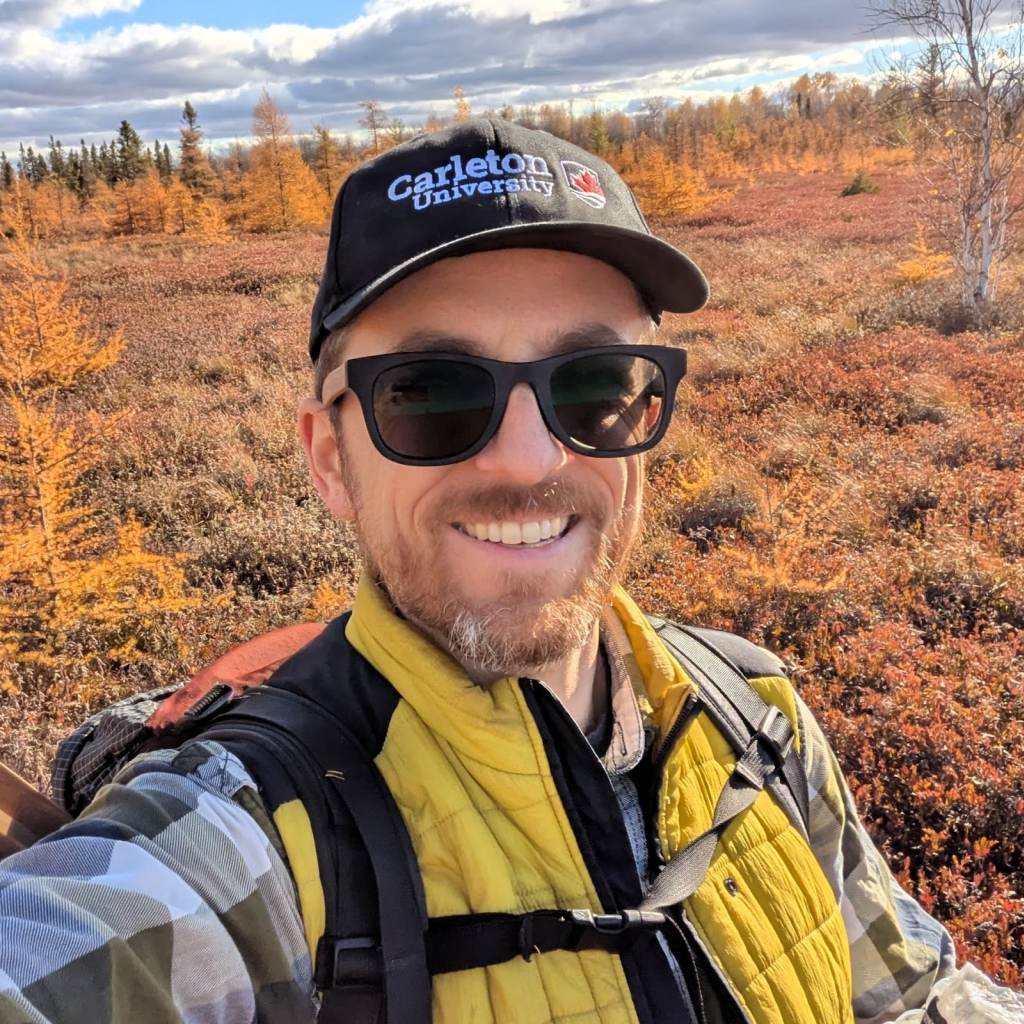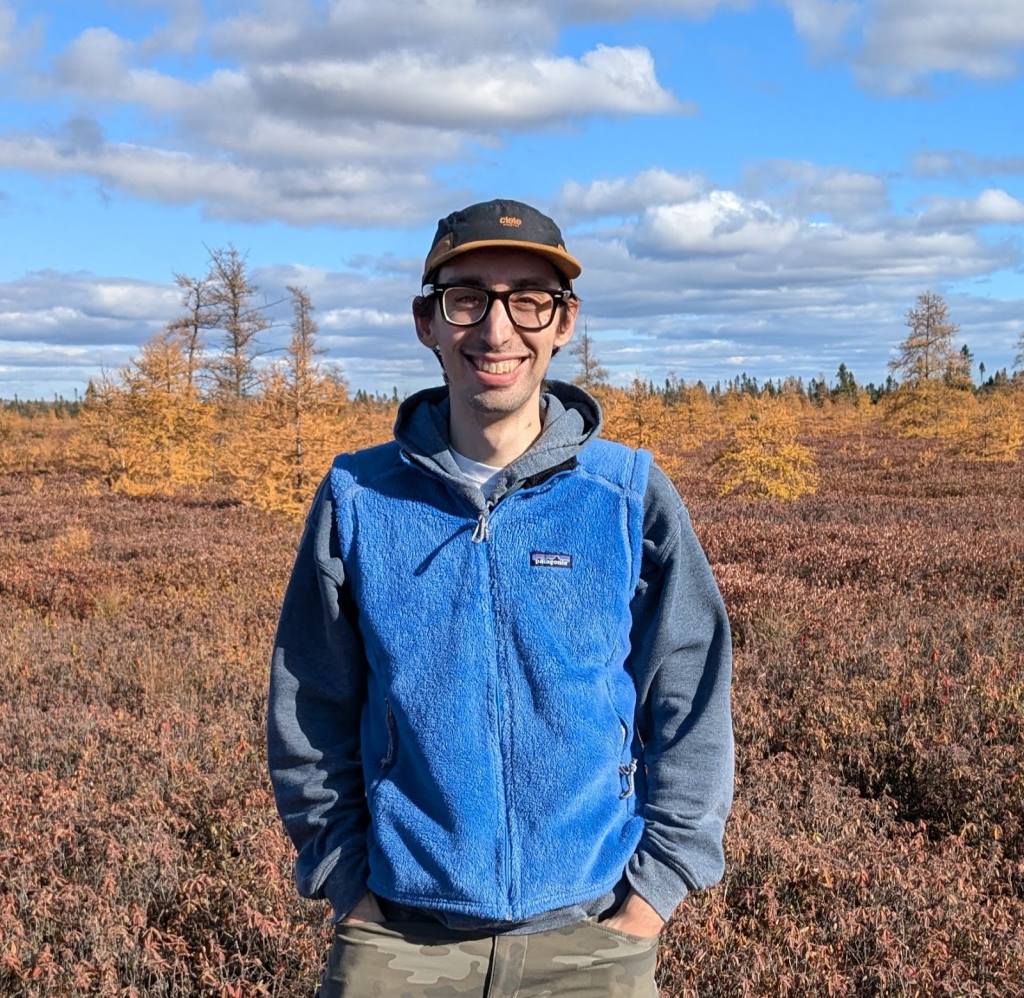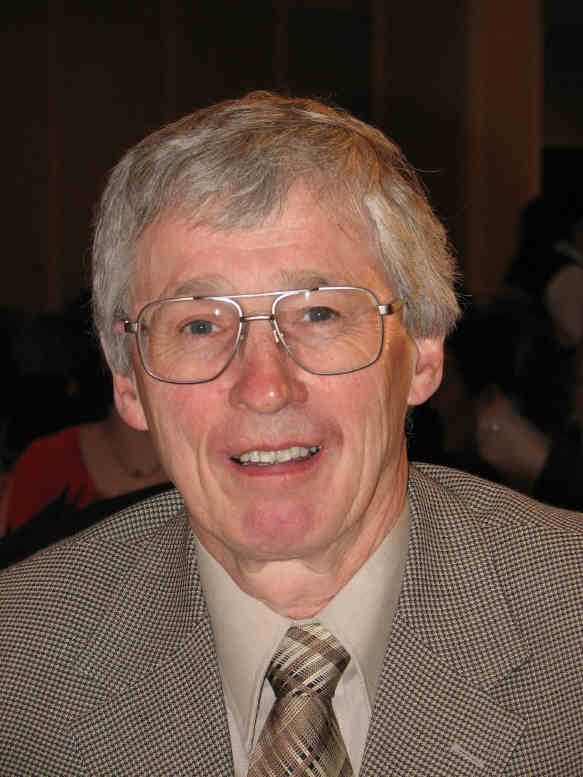Recent Notices of Ottawa Centre CMOS Meetings
|
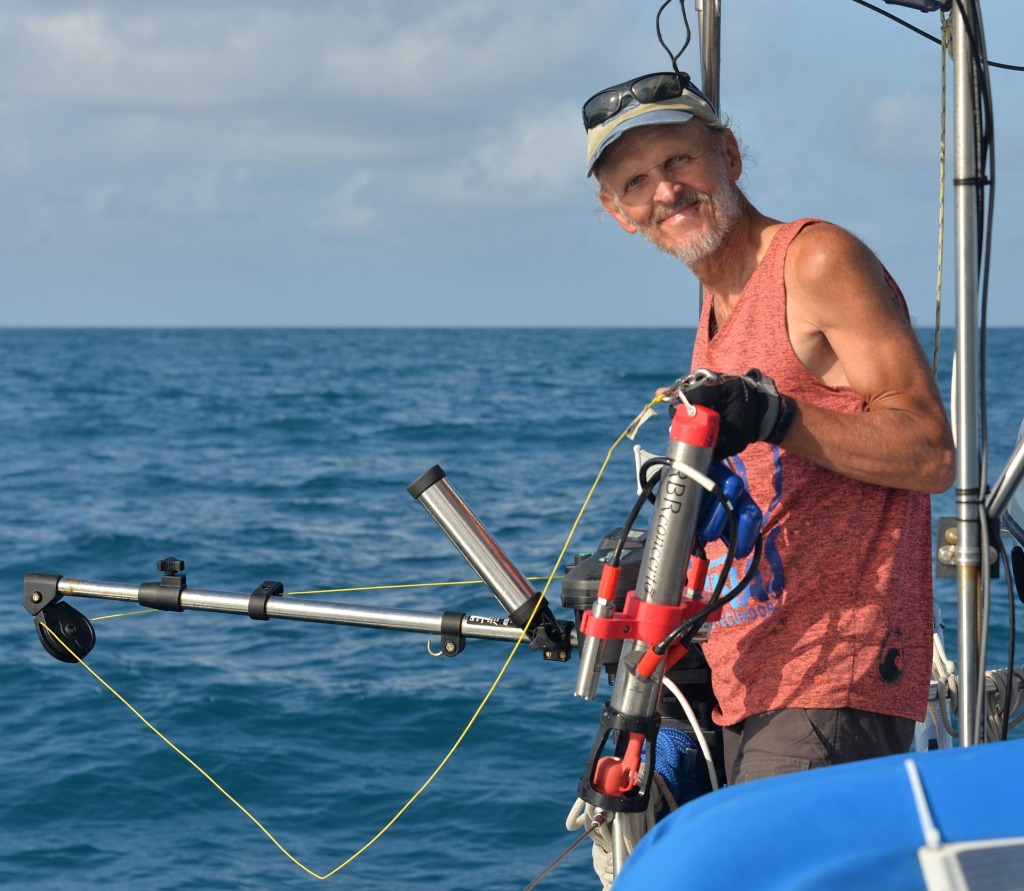 |
Igor
Shkvorets was trained at the Odesa Hydrometeorological Institute
(Ukraine) as Engineer-Oceanologist. He had worked for 20
years in the Metrology Department of the Marine Hydrophysical
Institute of Academy of Science of Ukraine in Sevastopol, Crimea,
Ukraine, specializing in the metrology of oceanographic instrumentation
and data quality. More detailed information about Igor Shkvorets's biography, publications, and expeditions can be found here: https://salinometry.com/about-author/ |
LOCATION: Irene's Pub 885 Bank Street Ottawa
TIME and SCHEDULE: Thursday 15 January 2026 12:00 noon EST. A meet and greet will start at 12:00 noon with optional light lunch and drinks available via a reduced fast-order menu. Start time of the presentation will be at 12:30 pm and lunch may be enjoyed during the talk. Including questions, we hope the presentation will finish by 1:30 pm.
PARKING: Two- and three-hour on-street free parking is available within a ten minute walk, especially west of Bank St. Closer parking also available via city pay and display boxes.
RSVP1: If you plan to attend
the meeting in person please send a confirming email to
jonesb@ncf.ca
RSVP2: The meeting will be available on CMOS Zoom as always. Please register in advance for this meeting. Please join the Zoom meeting 15 minutes before the planned start time of 12:30 pm.
Upcoming Co-Sponsored CMOS Ottawa Centre Meeting - Wednesday 5 November 2025



SPEAKER AFFILIATION: Faculty Member of Carleton U. in Childhood and Youth Studies program and the Department of Psychology.
ABSTRACT: Climate change represents a critical threat to environmental stability and physical health, while also acting as a significant risk multiplier for mental health and psychological wellbeing. The pervasive and escalating nature of its impacts exacerbates mental health risks across diverse populations, establishing it as one of the foremost public health challenges of our time. When examined through an equity-focused lens, it is evident that climate change disproportionately burdens specific societal sectors. This disparity arises from the intersection of climate impacts with key social determinants of health, which compound the severity of its consequences.
This presentation will elucidate the multifaceted pathways through which climate change adversely affects mental health. It will distinguish between acute, clinically diagnosable conditions, such as post-traumatic stress disorder (PTSD) and major depression, linked to extreme weather events, and the more chronic, insidious psychological effects associated with the all-encompassing ecological crisis. A key focus will be the characterization of eco-anxiety, a complex psychological response stemming from awareness of environmental degradation and concern for the future.
Moving beyond establishing these associations, the presentation will advocate for a solution-oriented framework informed by developmental sciences and positive psychology. It will explore adaptive strategies designed to support psychological flourishing with a particular emphasis on managing eco-anxiety. These strategies include cultivating a deeper connection with oneself, others and the natural world.
BIOGRAPHY:
 |
Dr.
Maggi is a researcher, educator, and a children’s rights advocate. She
has been a faculty member at Carleton University since 2007 where she
is cross appointed with the Childhood and Youth Studies program and the
Department of Psychology. |
LOCATION:
MacOdrum Library, room 482,
Carleton University
Map of Carleton Campus Parking Information
TIME: Wednesday 5 November, 3:00 - 4:30
pm EST
RSVP1: If you plan to attend the meeting in
person please send a confirming email to
jonesb@ncf.ca
This will
help us determine if a larger room is needed.
RSVP2:
The meeting will be
available on Zoom. Please register in
advance for this meeting. If you have registered and lost your Zoom
credentials, search your inbox or already-read mail for this exact
phrase: CMOS Ottawa Centre Meeting in
the subject line.
Upcoming CMOS Ottawa Centre Virtual Lunch Meeting - 16 October 2025
Speaker Affiliation: Professor Emeritus, Carleton University, Ottawa
Abstract:
Gloom about climate change is all around: dangerous levels of
atmospheric GHGs, more frequent and intense extreme events such as
droughts and wildfires, the breaching of the 1.5°C warming
threshold and the failure to curb global GHG emissions all engender
despair.
There are
glimmers of hope that collectively suggest we may be able to reduce
human impacts on climate and enhance our capacity to live with change.
Key environmental and human factors contributing to the emerging
climate crises set the foundation for this seminar. We then review
recent events that offer hope, ranging from international activities
(e.g. emergence of loss and damage initiatives) through to efforts that
touch our daily lives (e.g. municipal engagement in climate action
plans). Overall, preventing dangerous anthropogenic interference with
the climate system (i.e. a goal from the 1997 Kyoto Protocol) and
learning to live with climatic change (hopefully) continue to be within
our reach.
 |
During
his 28-year career at Carleton University in Ottawa, Canada, Mike
Brklacich was Chair of the Department of Geography and
Environmental Studies (2006-12), Associate Dean (Graduate Programs,
Research and International) in the Faculty of Arts and Social Sciences
(2015-21) and a Chancellor’s Professor (2014-19). More information about Mike is available at: https://carleton.ca/geography/people/brklacichmike/ |
Location: Virtual presentation via Zoom.
Time: Thursday 16 October , 11:45 AM, EDT
RSVP: Meeting will take place on Zoom. Please register in advance for this meeting. If you have registered and lost your Zoom credentials, search your inbox or already-read mail for this exact phrase: CMOS Ottawa Centre Luncheon Meeting in the subject line.
Upcoming CMOS Ottawa Centre Virtual Lunch Meeting - 25 September 2025
Speaker Affiliation: Director General, National Hydrological Service, (NHS), Environment and Climate Change Canada
Abstract: The National Hydrological Service (NHS), a directorate within the Meteorological Service of Canada (MSC), serves as the federal lead in Canada's National Hydrometric Program. It has a network of 2,900 stations providing water quantity data essential for weather and hydrological forecasting, flood management, and economic planning. The NHS has implemented innovative solutions in deploying advanced hydrometric technologies, continuous data production systems to provide real-time data and predictions and to predict and manage floods and droughts.
Dr. Jenkinson will present these operational innovations and their applications, demonstrating how technological advancement enables enhanced service delivery despite geographic and resource challenges facing Canada's water monitoring enterprise.
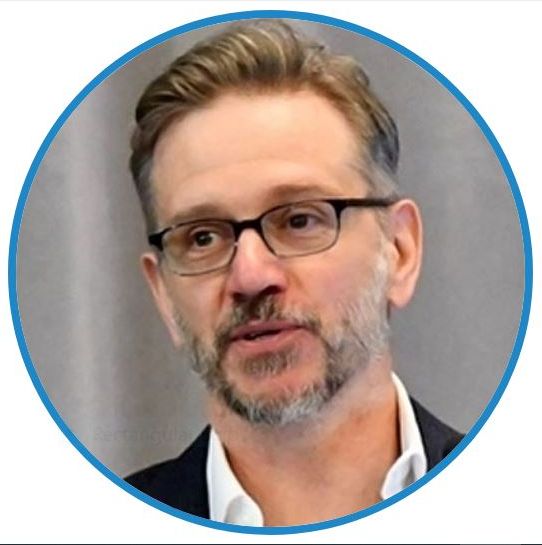 |
Dr. Wayne Jenkinson is Director Genaral of the National Hydrological Service (NHS) in Environment and Climate Change Canada. The NHS includes 340 staff and is the federal administrator of the national hydrometric monitoring network and is responsible for operating approximately 2200 water monitoring stations on rivers and lakes across Canada. He received his master's degree from the University of British Columbia and his Ph. D. from the University of Waterloo. Before joining the NHS in 2021, Dr. Jenkinson spent five years advising the Canadian Section of the International Joint Commission (IJC) and directing activities relating to water level management, water quality and numerical modeling in transboundary regions. Prior to his time at the IJC, he was the Senior Research Engineer and Water Resources Lead for the Ocean, Coastal and River Engineering (OCRE) portfolio at the National Research Council (NRC) of Canada. Dr. Jenkinson is the Hydrological Advisor to Canada's permanent representative to the WMO and is past president of the Canadian Society of Hydrological Sciences. |
Location:
Virtual presentation via Zoom.
Time: Thursday 25 September, 11:45 AM, EDT
RSVP: Meeting
will take
place on Zoom. Please register
in advance for this meeting. If you have registered and lost your Zoom
credentials, search your inbox or already-read mail for this exact
phrase: CMOS Ottawa Centre Luncheon Meeting
in the subject line.
Wednesday 5 November, in-person meeting at Carleton University, 3 pm: Mental Health and Climate change by Stefania Maggi
Upcoming CMOS Ottawa Centre Virtual Lunch Meeting - Thursday 17 April 2025
Speaker Affiliation: Maurice Lamontagne Institute, Fisheries and Oceans Canada
Abstract: The Gulf of St. Lawrence is a semi-enclosed sea that is subject to rising temperatures. Sea surface temperatures have been increasing; the May-November averages of the last three years were the warmest of the satellite record and marine heat waves have been stronger and more frequent. In winter, the Gulf can become completely covered by sea ice and nearly half of its volume of water usually gets cooled to temperatures below -1C within the winter mixed layer. But winter air temperatures have been warming at nearly twice the rate of other seasons. In the 15-year period since 2010, 10 of the 15 weakest recorded sea ice seasons have occurred. In the historical records, the Gulf has been nearly free of sea ice during 6 winters, and 4 of them have occurred in this 15 year time span. The winter mixed layer gets capped in spring, creating a cold intermediate layer that persists until late fall that determines the bottom temperature habitat over large areas. This layer has been warming and decreasing in volume since 1990 with large inter-annual variability. On two recent occasions, post-tropical storms Dorian and Fiona have disrupted the water column and mixed heat down to 45 m. Changes deeper in the water column have been even more startling. Waters deeper than roughly 150 to 200 m are entrained inwards from the continental slope by estuarine circulation, taking several years to reach the heads of the Gulf deep channels while mixing and diffusion occurs. This layer has warmed at 300 m depth between 2009 and 2022, breaking 100-year records, and is finally showing signs of cooling off.
 |
Peter Galbraith is a DFO research scientist in physical oceanography whose main interest is the climate of the Gulf of St. Lawrence. He is chair of the Atlantic Zone Monitoring Program and is responsible for delivering State of the Ocean advice. He produces the annual state of the ocean report for the physical oceanography of the Gulf of St. Lawrence and leads the production of the zonal environmental overview. He contributes to DFO's monitoring program by running a helicopter-based winter survey of the temperature and salinity conditions in the Gulf of St. Lawrence. |
Location: Virtual presentation via Zoom.
Time: Thursday 17 April 2025, 11:45 AM, EDT
RSVP: Meeting will take place on Zoom. Please register in advance for this meeting. If you have registered and lost your Zoom credentials, search your inbox or already-read mail for this exact phrase: CMOS Ottawa Centre Luncheon Meeting in the subject line.
Upcoming CMOS Ottawa Centre Virtual Lunch Meeting - Thursday 20 March 2025
Title: Rivers in the Sky: A Down-to-Earth Analogy in Hydrometeorology
Abstract:
Atmospheric rivers are long, narrow, and transient corridors of strong horizontal water vapor transport, typically associated with a low-level jet stream ahead of the cold front of an extratropical cyclone. This presentation demonstrates how to detect atmospheric rivers and assess their hydrometeorological impacts within research and operational forecasting environments. It also illustrates a multi-decade global atmospheric river catalogue for historical high-impact weather analysis and highlights the spatio-temporal distribution of atmospheric rivers affecting Canada.
 |
Dr. Ruping Mo is a senior research scientist of the National Laboratory-West, Environment and Climate Change Canada. He completed his B.Sc. in Meteorology at Sun Yat-sen University in 1983, his M.Sc. in Atmospheric Sciences at the Chinese Academy of Meteorological Sciences in 1986, and his Ph.D. in Applied Mathematics at the University of Cambridge in 1994. Dr. Mo was a Postdoctoral Fellow at McGill University during 1995-1998, and a Research Scientist at the Center for Ocean-Land-Atmosphere Studies during 1998-1999, working on dynamical-statistical seasonal predictions. Dr. Mo’s current research projects focus on improving scientific understanding and prediction of high-impact weather in coastal and mountainous environments. These studies involve a combination of the analysis of atmospheric and oceanographic data with numerical modeling. Dr. Mo has developed several user-friendly programs to facilitate technology transfer of scientific results, especially advances in high-resolution NWP modeling and atmospheric river analysis, into operational weather forecasting. |
Location: Virtual presentation via Zoom.
Time: Thursday 20 March 2025, 11:45 AM, EST
RSVP: Meeting will take place on Zoom. Please register in advance for this meeting. If you have registered and lost your Zoom credentials, search your inbox or already-read mail for this exact phrase: CMOS Ottawa Centre Luncheon Meeting in the subject line.
Upcoming CMOS Ottawa Centre Virtual Lunch Meeting - Thursday 20 February 2025
Title: Remote Sensing of Drought and Wildfire in Canadian Peatlands
Summaries:
Quinn
Barber
Canada experienced a record-breaking wildfire season in 2023, and another exceptional wildfire season in 2024. This includes extensive peatland burning, with wildfires approximately twice as likely to occur in peatlands as in normal years. This represents an immediate risk to boreal communities, as well as a potential risk to the massive carbon stocks in northern peatlands. In this presentation I discuss some of the issues and advances in remote mapping of peatland wildfires. I show how we can use historical fires to estimate when peatlands may resist wildfire spread, and when fire weather is severe enough to breach what may otherwise be fire-resistant landscape. I also discuss the rising prevalence and importance of overwinter holdover fires in peatlands, which drove an early and extensive 2024 wildfire season in western Canada.
Yasaman
Amini
Peatlands
are increasingly vulnerable to drying due to climate change, driven by
rising temperatures and shifting precipitation patterns. Monitoring
soil moisture is essential for detecting drought patterns. Synthetic
Aperture Radar (SAR) provide valuable insights into wetness
trends. I will discuss findings that link prolonged drying in
peatlands to an increased risk of fires, showing that soil moisture
reductions are often detectable 6–18 months before fire events. I will
also present the capabilities of the Soil Moisture Active Passive
(SMAP) satellite for providing frequent, global-scale data on soil
moisture. While SMAP has proven invaluable for large-scale monitoring,
I will also discuss its challenges in peatlands and explore efforts to
improve SMAP's performance for peatland soil moisture monitoring.
Nick
Pontone
Peatland
mapping has benefited from improvements in the availability,
sensitivity, and resolution of satellite remote sensing in recent
years. Multi-sensor machine learning classification has facilitated the
high-resolution mapping and classification of peatlands, including
subdivision by peatland type. C-band and L-band synthetic-aperture
radar (SAR) plays a critical role in mapping of peatlands and other
water features due to its sensitivity to biomass and moisture
conditions. Here I will present a peatland subclass map for the
Canadian boreal forest, developed from multi-sensor remote sensing and
time series analysis. I will also show an analysis of peatland InSAR
coherence for peatlands in the northern hemisphere, including a
discussion on SAR interactions with soil hydrological and physical
properties.
Location: Virtual presentation via Zoom.
Time: Thursday 20 February 2025, 11:45 AM, EST
RSVP: Meeting will take place on Zoom. Please register in advance for this meeting. If you have registered and lost your Zoom credentials, search your inbox or already-read mail for this exact phrase: CMOS Ottawa Centre Luncheon Meeting in the subject line.
Upcoming CMOS Ottawa Centre Virtual Lunch Meeting / Thursday 16 January 2025
Speaker: Craig Stewart, Vice President, Climate Change and Federal Issues Insurance Bureau of Canada
Title: Insurability in a changing climate
Summary:
The wildfires, floods and hailstorm of the summer of 2024 shattered the record for any season of insured losses in Canadian history. With losses escalating rapidly in both Canada and the United States, insurers are adjusting property coverages to remain viable.
This presentation covers the changes we are now witnessing in both the Canadian and American property insurance markets, the future of home insurability and the measures that the property and casualty insurance industry is advocating governments prioritize should property remain insurable into the next decade.
Biography:

Craig Stewart leads national work on disaster resilience and climate change at Insurance Bureau of Canada (IBC) – the
trade association representing the property and casualty insurance industry in Canada. He co-chairs the National Advisory
Table on Disaster Resilience and Security which advises federal Ministers on development of Canada’s National Adaptation
Strategy and disaster risk reduction generally. He is considered one of Canada’s foremost experts on climate adaptation,
disaster risk and nature-based solutions and has testified at numerous Senate and House of Commons Committees as
well as to federal, provincial and territorial Ministerial meetings repeatedly over the past decade.
Craig holds a master of science from the University of Calgary, and a bachelor of arts in political science from the University
of Toronto. He is the author of two atlases on the Rocky Mountains of Alberta, British Columbia and Montana.
Location: Virtual presentation via Zoom.
Time: Thursday, Decenmber 16, 2025 11:45 AM, EST
RSVP: Meeting will take place on Zoom. Please register in advance for this meeting. If you have registered and lost your Zoom credentials, search your inbox or already-read mail for this exact phrase: CMOS Ottawa Centre Luncheon Meeting in the subject line.
Upcoming CMOS Ottawa Centre Virtual Lunch Meeting / Tuesday 19 November 2024
Title: Hoping for the best, prepared for the worst
Abstract:
Over a thirty day period this summer Canadian insurers received more than $7 billion in damage claims from storms in Toronto, Montreal, Calgary, and a wildfire in Jasper, an unprecedented total. Direct damage from climate-related events increased 20-fold over the past 40 years, doubling every 7 or 8 years, then doubling again, and again. Investments in proven resilience measures would significantly reduce the expected future loss and damage. The presentation will explore how Canadians can break this alarming trend of rising damage from severe weather.
Biography:
 |
Paul
Kovacs is founder and Executive Director of the Institute for
Catastrophic Loss Reduction (ICLR) at Western University, Canada’s
leading disaster research centre. |
Location: Virtual presentation via Zoom.
Time: Tuesday 19 November 2024, 11:45 AM, EDT
RSVP: Meeting will take place on Zoom. Please register in advance for this meeting. If you have registered and lost your Zoom credentials, search your inbox or already-read mail for this exact phrase: CMOS Ottawa Centre Luncheon Meeting in the subject line.
Upcoming CMOS Ottawa Centre Virtual Lunch Meeting / 17 October 2024
Title: The Trends, Structure, and Predictability of Extreme Rainfall Events
Abstract: Research has established that extreme rainfall events, often associated with mesoscale convective systems, are increasing in our warming climate with growing detrimental impacts on public safety, health, the environment, and the economy. These flooding events are often nocturnal and, unfortunately, an accurate representation of nocturnal convection remains a significant challenge for global weather and climate models. This study examines the trends, structure, interannual variations, and predictability of extreme convective rainfall events over the US east of the Rocky Mountains. The observations utilized include the high resolution (4-km) Stage IV rainfall data over the period from 2003 to 2023. An increasing trend was found in the number of summer-time extreme rainfall events caused by mesoscale convective systems. Events with large total accumulation were often associated with elongated but narrow (20-40 km wide) swaths of extreme rainfall that would be difficult to represent in global weather and climate models. However, paths toward accurate seasonal forecasts of the frequency of summertime extreme rainfall events may be possible, since the interannual variations in number of these events were found to be associated with differences in the flow around the western edge of the North Atlantic subtropical high. This talk will also present findings on how well these extreme events are currently predicted in regional and global prediction models. The talk will also discuss the interactions between organized mesoscale convective systems and the jet stream showing how this interaction is a source of downstream forecast failures in global models.
Biography:
 |
Dr. Parsons joined the NorthWest Research Associates (NWRA) in Boulder, Colorado on 1 August 2024. Prior to his move to NWRA, Dr. Parsons was the Director of the University of Oklahoma’s (OU’s) School of Meteorology for eight years. Subsequently, he became an OU Presidential Professor and a member of OU’s Presidential Academic and Budget Advisory Committee (PAPBAC) that developed a strategic plan for the University and made recommendations to the newly appointed OU President on proposed budgetary changes across OU’s academic programs. Dr. Parsons was also a member of the OU’s Vice-President for Research’s Task Force on the Future of University Strategic Organizations. Before
joining OU, Dr. Parsons was a Senior Scientist at the National Center
for Atmospheric Research (NCAR) in Boulder, Colorado in the Earth
Observing Laboratory (EOL) and in the Institute for Integrative and
Multidisciplinary Earth Studies (TIIMES). His management
positions at NCAR included serving as Deputy Director of NCAR/EOL,
Director of two Interagency Project Offices, and Manager of the
Research Technology Facility, which provided instrumentation and
expertise to the research community for National Science Foundation
(NSF) funded atmospheric science field campaigns. |
Location:
Virtual presentation via Zoom.
Time: Thursday 17 October 2024, 11:45 AM, EDT
RSVP: Meeting
will take
place on Zoom. Please register
in advance for this meeting. If you have registered and lost your Zoom
credentials, search your inbox or already-read mail for this exact
phrase: CMOS Ottawa Centre Luncheon Meeting
in the subject line.
Tuesday November 19: Paul Kovacs
For details about Peter Berry's talk of 19 September 2024 please click here
Upcoming CMOS Ottawa Centre Virtual Lunch Meeting / 18 April 2024
Title: Teaching climate as a historian
Abstract: Until recently, the climate crisis has been the domain of science and scientists. Now humanities scholars are stepping up. New interdisciplinary courses, centres, journals and programs are appearing. Joanna Dean has been teaching climate history for many years, initially as a component of an environmental history course and now as a core course in Carleton University’s new minor in Environmental and Climate Humanities. She will argue that the humanities do more than improve communication about climate, they further our understanding of the ways we frame narratives and interpret data. She will also reflect on how teaching climate has broadened her thinking as a historian to encompass deep time and imagined futures.
Biography:
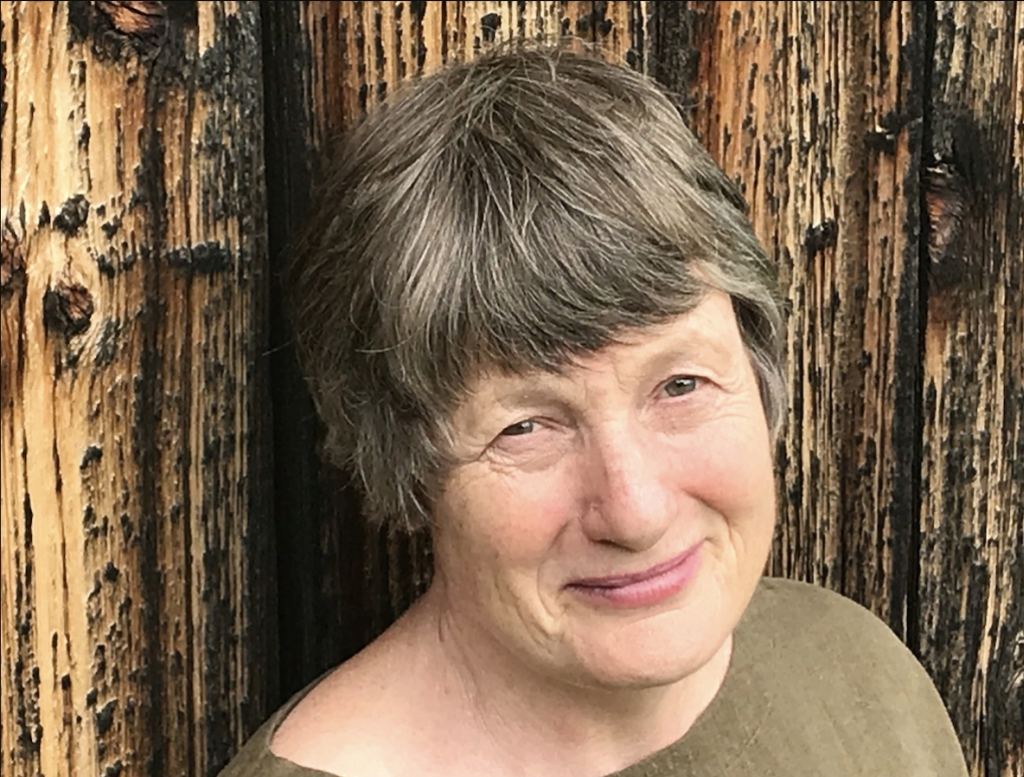 |
Joanna Dean is an associate professor at Carleton University where she teaches environmental history, climate history and animal history. In 2023 she convened a series of lectures by leading historians on climate. She has published widely on the history of street trees and urban woodlands, and she is currently working on an environmental history of lovers walk on the parliamentary slopes. |
Location : Virtual presentation via Zoom.
Time: Thursday 18 April 2024, 11:45 AM, EDT
RSVP: Meeting will take place on Zoom. Please register in advance for this meeting. If you have registered and lost your Zoom credentials, search your inbox or already-read mail for this exact phrase: CMOS Ottawa Centre Luncheon Meeting in the subject line.Upcoming CMOS Ottawa Centre Virtual Lunch Meeting / 21 March 2024
Title: What the Future Holds for Wildfires in a Future Climate
Abstract: Wildfires are one of the most important natural disturbances in Canada. Anthropogenic climate change is significantly impacting fire regimes across the country. Increasing temperatures, more severe and prolonged drought conditions, and the lengthening of the fire season makes the vegetation drier and much more flammable while causing fire prone weather conditions to be more severe and more frequent. The consequences of these changing fire regimes are numerous, affecting the several aspects of the socio-ecological realm. Adaptation is needed as we will need to learn to live in world where fire is much more prevalent.
Biography:
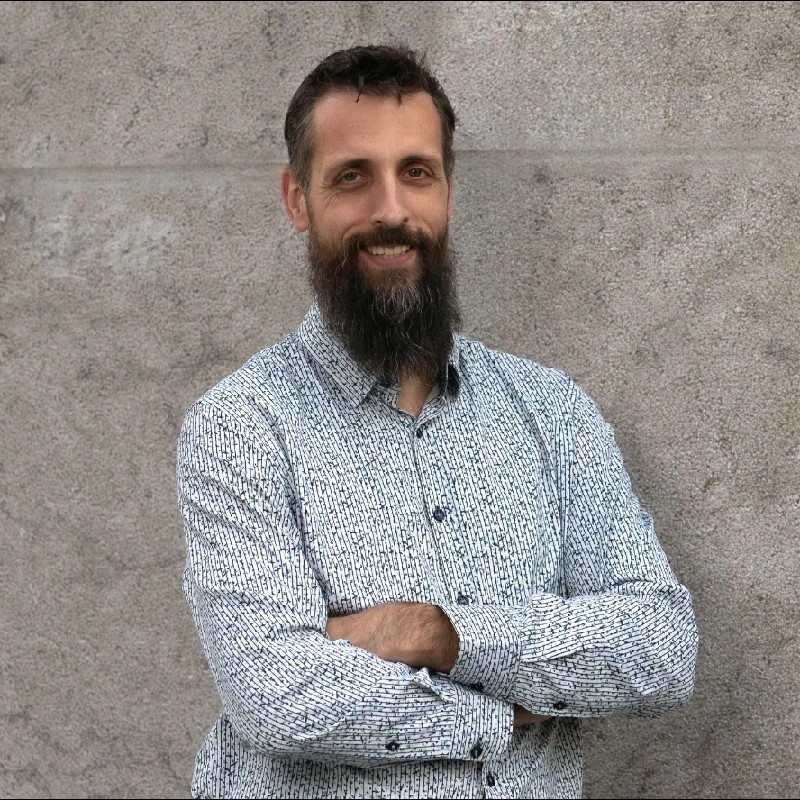 |
Yan
Boulanger holds a Ph.D. in Biology from the Université du
Québec à Rimouski. Between 2010 and 2013, he was a
postdoctoral fellow under the supervision of Dr. Sylvie Gauthier and
Phil Burton at the Laurentian Forestry Centre where he worked to define
homogeneous fire regime zones in Canada. Since then, he has been a
researcher in forest ecology. His research interests include 1) the
projection of natural disturbance regimes in Canada (mainly fire and
spruce budworm) in relation to climate change, 2) the projection of
forest landscapes and wildlife habitats, and 3) the dynamics of spruce
budworm dispersal using weather radar. Dr. Boulanger is an associate
professor at the Université du Québec à Rimouski,
at Laval University and at the Université du Québec en
Abitibi-Témiscamingue. |
Location : Virtual presentation via Zoom.
Time: Thursday 21 March 2024, 11:45 AM, EDT
RSVP: Meeting will take place on Zoom. Please register in advance for this meeting. If you have registered and lost your Zoom credentials, search your inbox or already-read mail for this exact phrase: CMOS Ottawa Centre Luncheon Meeting in the subject line.Title: The Global Meteorological and Environmental Enterprise in the Era of Machine Learning and Artificial Intelligence: Implications for Canada
Summary: The world of meteorology and climate was one of the first examples of massive data generators, as well as being a major driver of innovation in the development of high-performance computers. Already in the 1970s-1980s-1990s, the application of statistical methods (in the post-processing of output from numerical weather prediction models), the ancestors of machine learning approaches (analog, perfect prog, MOS, UMOS, etc.), were being used with the massive data of the time. The last two decades have seen an explosion in the volume, accessibility and diversity of data, and improved accessibility to low-cost, high-performance computing systems, leading to an acceleration in machine learning applications and more sophisticated artificial intelligence techniques.
The World Meteorological Organization, through its member countries, plays a leading role in the development and use of these technologies. The presentation will provide a brief background on the current structure of the WMO, a portrait of the atmospheric and climate sciences 'playground', a reflection on the aspects associated with massive data, and a consideration of the global infrastructures required. Examples and reflections on the implications for Canada will be shared.
Biography:
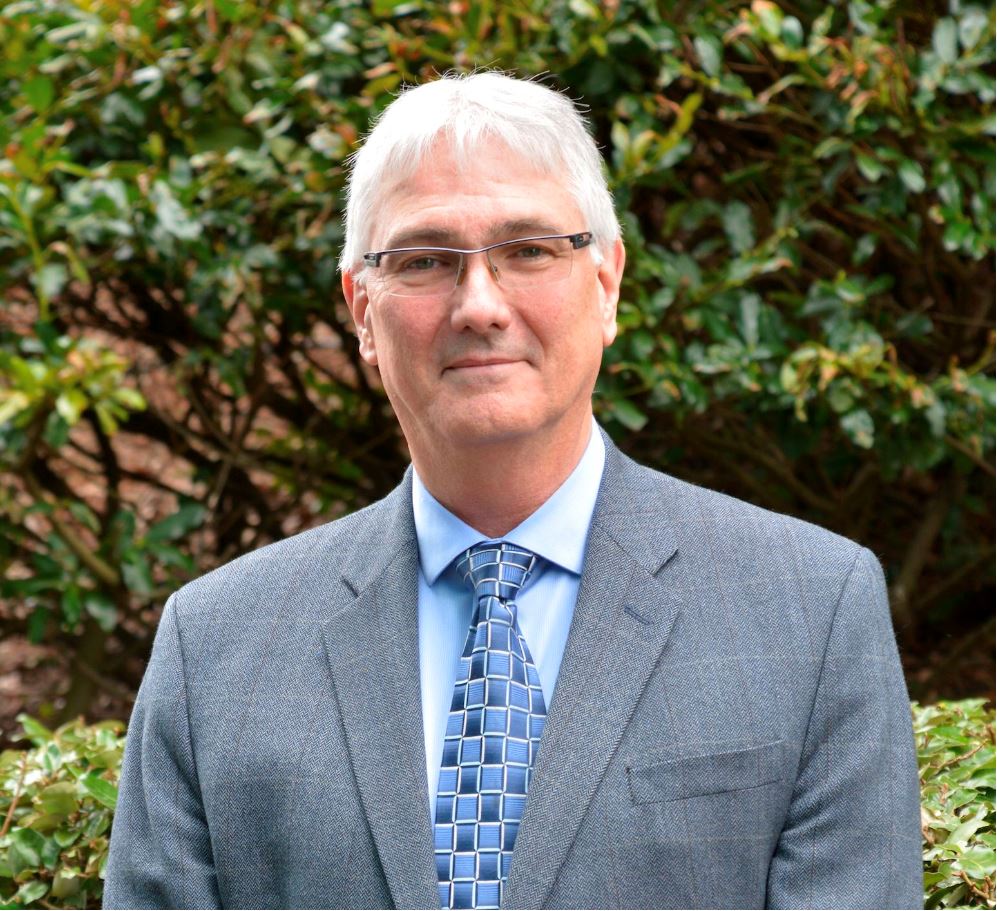 |
Mr.
Michel Jean graduated from the Université du Québec
à Montréal (UQAM) in Physics in 1982 and obtained his
Masters degree in Meteorology from McGill University in 1987. After
being an operational meteorologist, he has managed regional and
national atmospheric and climate science programs, field operations in
the area of weather prediction and atmospheric and hydrometric
monitoring and the development of national weather and environmental
prediction systems. He led the Canadian Centre for Meteorological and
Environmental Prediction and has been responsible of the long term High
Performance Computing strategy and the next generation integrated
forecaster workstation project. |
Location : Virtual presentation via Zoom.
Time: Thursday 22 February 2024, 11:45 AM, EST
RSVP: Meeting will take place on Zoom. Please register in advance for this meeting. If you have registered and lost your Zoom credentials, search your inbox or already-read mail for this exact phrase: CMOS Ottawa Centre Luncheon Meeting in the subject line.Upcoming CMOS Ottawa Centre Virtual Lunch Meeting / 11 January 2024
Title: Addressing Earth's Foremost Challenges: Advancing Meteorological and Climate Solutions.
Abstract: Extreme weather events are causing unprecedented floods, droughts, fires, and ecosystem damage on all scales. This necessitates better early warnings, climate, weather services, especially for transitioning to carbon-neutral economies. These challenges demand faster innovation, technological advancements, and stronger interdisciplinary collaboration, with a significant role for the private sector. The UN's Early Warnings for All aims to establish crucial early warning systems by 2027. The World Meteorological Organization (WMO) has outlined eight recommendations for its future research and service development, especially for poorer nations. The top long term recommendation emphasizes the need for high-resolution climate models to depict localized weather changes. Harnessing digital technologies like Exascale computing and Machine Learning will be essential for this. Global collaboration and adequate training are crucial to maximize local benefits from global science. The WMO is expected to boost scientific partnerships to deliver detailed global climate data. Investments should prioritize areas that offer the most societal benefits, and this involves leveraging digital strategies, quality assurance, and broadening educational efforts.
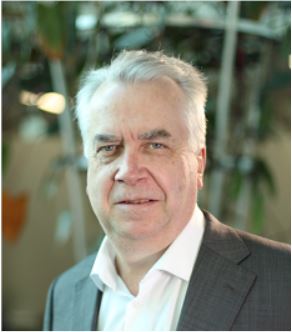 |
Gilbert Brunet has been the Chief Scientist at the Bureau of Meteorology, Australia since 2018 and the Chair of the World Meteorological Organization's Scientific Advisory Panel since 2020. He earned his PhD in meteorology from McGill University in 1989. His career milestones include leadership roles at the Meteorological Research Division, Environment and Climate Change Canada, and the UK's Met Office. He directed significant Earth-system weather and climate prediction programs in Canada, the UK, and Australia. Since 2018, he's chaired the UK Met Office Scientific Advisory Committee and was awarded notable distinctions such as the 2010 Patterson Distinguished Service Medal and becoming a Fellow of the Canadian Meteorological and Oceanic Society in 2018. Scientifically, he is recognized for his expertise in weather and climate dynamics, with a research background spanning renowned institutions such as Cambridge University and École Normale Supérieure, Paris. His work focuses on wave processes and numerical weather prediction across various scales. |
Location : Virtual presentation via Zoom.
Time: Thursday 11 January 2024, 11:45 AM, EDT
RSVP: Meeting will take place on Zoom. Please register in advance for this meeting. If you have registered and lost your Zoom credentials, search your inbox or already-read mail for this exact phrase: CMOS Ottawa Centre Luncheon Meeting in the subject line.Upcoming CMOS Ottawa Centre Virtual Lunch Meeting / 21 November 2023
Speaker: Craig McLean, Captain NOAA (Retired) J. D., Retired Acting Chief Scientist, and Assistant Administrator for Oceanic and Atmospheric Research of NOAA.
Title: Progress, Challenges and Opportunities from the United Nations Decade of Ocean Science for Sustainable Development (2021-2030)
Summary: With our planet being covered by 70% water, the non-political nature and shear expanse of the world's ocean makes science coordination efforts enormous. Priorities amongst governments are often not aligned to ocean and marine life beyond the coastal shelves, and efforts to align domestic political interests with those of the international communities are challenging. The ocean and marine life are key building blocks to life as we know it on our planet and many countries look to the ocean for food, security, transportation, energy, and more. While the ocean and the very ecosystems it houses are under great stress, many nations are looking to the oceans for expanding their prosperity and optimizing potential benefits from the emerging emphasis on the blue economy. All these actions should be based on sound science - understanding the importance of ocean system resilience, sustainability and responsible development. The UN, under the leadership of the Intergovernmental Oceanographic Committee of UNESCO laid out ambitions to improve the state of our understanding through the UN Decade of Ocean Science for Sustainable Development. This talk will draw out some of these key elements, including the challenges and opportunities that the Decade on Ocean Science will offer.
BIO:
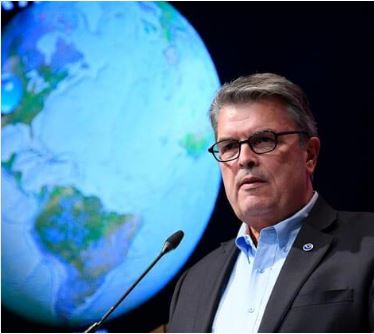
Mr. McLean served NOAA in uniform for about 25 years and another 15 years in the Senior Executive Service at NOAA. He was the founding director of the Ocean Exploration program, an early architect of the UN Decade of Ocean Science, an ocean diplomat, lawyer, and ship captain during his career. He was very unique in his selection to head research in NOAA, chosen for his operational, management and leadership experience, holding a J. D. Retiring from NOAA in 2022, he is currently serving as a senior policy advisor for the Woods Hole Oceanographic Institution, and other ocean and climate bodies.
LOCATION : Virtual presentation via Zoom.
TIME: Tuesday 21 November 2023, 11:45 AM, EDT
RSVP: Meeting will take place on Zoom. Please register in advance for this meeting. If you have registered and lost your Zoom credentials, search your inbox or already-read mail for this exact phrase: CMOS Ottawa Centre Luncheon Meeting in the subject line.
Upcoming CMOS Ottawa Centre Virtual Lunch Meeting / 19 October 2023
Title: The
Northern Tornadoes Project: What We’ve Learned About Tornadoes,
Downbursts and Derechos in Canada
Abstract: The Northern Tornadoes Project (NTP) began in 2017 as a partnership between Western Engineering and ImpactWX aiming to better detect tornado occurrence, improve severe and extreme weather prediction, mitigate against harm to people and property, and investigate future implications of climate change. Over the course of the project to date, we’ve uncovered Canada’s largest tornado outbreak, thoroughly documented high-impact tornado and downburst events including Canada’s first billion dollar derecho, and improved the understanding of where the country’s tornadoes occur and when – with a few surprises. At the same time, we’ve advanced the tools and techniques required to detect tornado and downburst events, particularly across large areas of the country with low population density. Our ambitious plans for where we go next will also be discussed.
BIO:
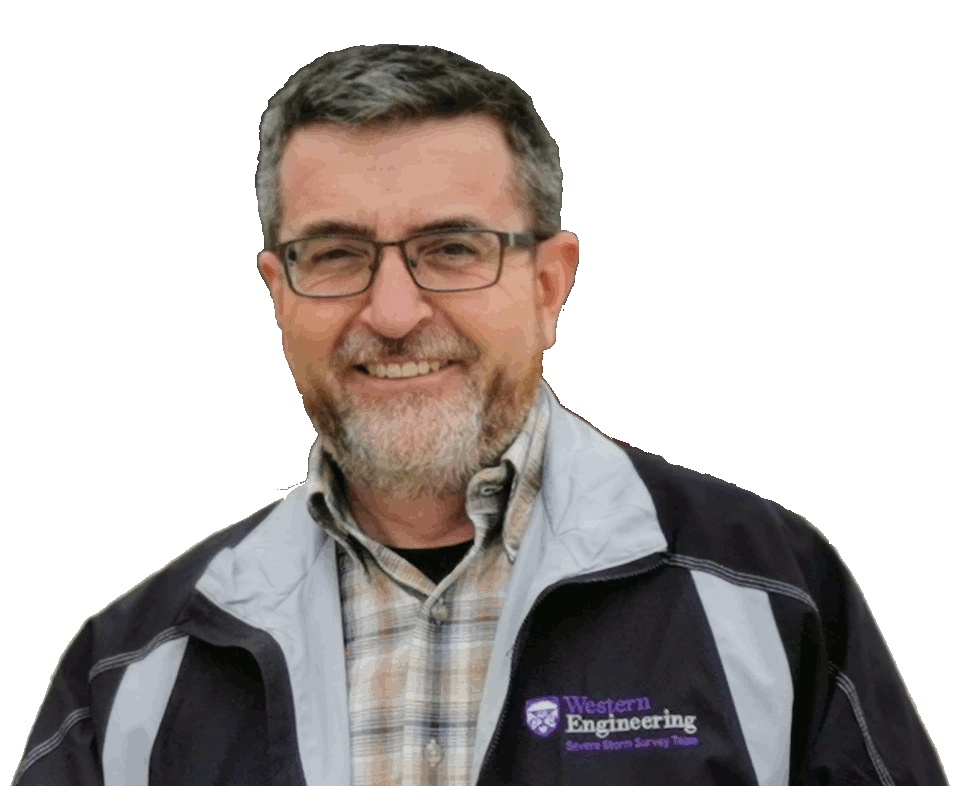 |
Dr.
David Sills earned his Ph.D. degree in Atmospheric Science from York
University in Toronto in 1998. He served as a Severe Weather Scientist
at Environment Canada for more than 20 years before becoming the
Executive Director of the Northern Tornadoes Project with Western
Engineering in 2019. |
LOCATION : Virtual presentation via Zoom.
TIME: Thursday 19
October
2023, 11:45 AM, EDT
RSVP:
Meeting
will take
place on Zoom. Please register
in advance for this meeting.
Upcoming CMOS Ottawa Centre Virtual Lunch Meeting / 20 April 2023
Speaker: Yifeng Wang, PhD Candidate in the Department of Geography and Planning, Queen’s University
Title: Revisiting the distribution of peatland permafrost in coastal Labrador
Abstract: Northern peatlands cover about 4 million km2, and half of these peatlands are estimated to contain permafrost and periglacial landforms, such as palsas and peat plateaus. In Labrador, northeastern Canada, peatland permafrost landforms are largely predicted to be present in the interior and absent along the coastline. However, few observations of these landforms in the interior, coupled with extensive use of coastal perennially frozen peatlands for traditional activities by Labrador Inuit and Innu suggests a need for further investigations. In 2020, the Northern Environmental Geoscience Laboratory began a new research program to better understand the distribution, characteristics, and sensitivity of peatland permafrost in coastal Labrador using a combination of research methods including remote sensing, machine learning, field investigations, and thermal modelling.
The first stage of this project involved the development of a consensus-based inventory of prospective peatland permafrost complexes using high-resolution satellite imagery. The inventory, which identified over 1000 likely peatland permafrost complexes within 100 km of the Labrador Sea coastline, has been validated with extensive field visits and low-altitude aerial photography and videography. A coastal gradient for palsa and peat plateau distribution was identified and is thought to be attributed to a combination of climatic and geomorphological influences. Other initiatives as part of this overarching project include historical air photo analysis to identify the scale of thaw at selected complexes over the past 70 years and characterization of contemporary peatland permafrost landform heights, sizes, and associated snow and vegetation conditions at selected complexes along the coast using remotely piloted aircraft surveys. This work provides an important baseline for future mapping, modelling, and climate change adaptation strategy development in northeastern Canada.
BIO:
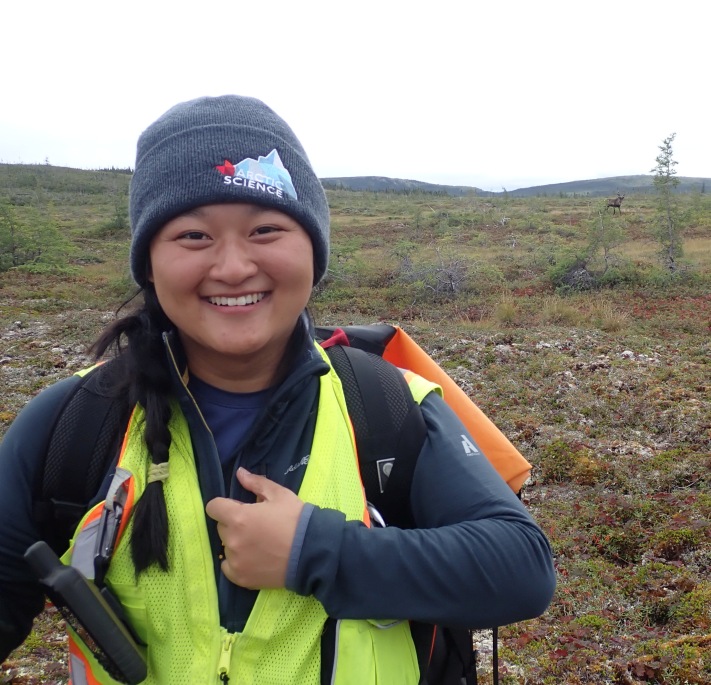
Yifeng Wang has been working in the North for several years, with a focus on permafrost studies in Labrador, northeastern Canada. Her research is currently focused on investigating the distribution and sensitivity of peatland permafrost in coastal Labrador. Yifeng is a member of the Northern Environmental Geoscience Laboratory (NEGL), led by Dr. Robert Way, and is interested in understanding how climate and ecosystem change will impact northern systems, environments, and communities.
LOCATION : Virtual presentation via Zoom.
TIME: Thursday 20 April 2023, 11:45 AM, EDT
RSVP: Meeting will take place on Zoom. Please register in advance for this meeting.
Upcoming CMOS Ottawa Centre Virtual Lunch Meeting / 23 March 2023
Speaker: Igor Shkvorets, RBR Ltd.
Title: Sail for Science - How Small Craft Can Fill Gaps In Global Coastal Ocean Observations
Abstract: The world ocean is the global thermodynamic engine of weather and climate; without ocean data collection on a global scale, it is impossible to define problems of climate change.
Modern oceanographic data collection technologies include four thousand autonomous Argo floats, deployed globally in all oceans. These profile every 10 days from a depth of 2000m to the surface to collect temperature, salinity and other physical-chemical data. The rest of the time the floats drift while parked at a depth of 1000m. This depth limits the areas of use of Argo floats in coastal waters where, when reaching shallow water, their mission is usually terminated. The cohort of Argo floats may be complemented by a flotilla of small craft. To help fill this gap in oceanographic data, the author co-founded a non-for-profit project "Sail for Science" www.sailforscience.com, with the following objectives:
1. To collect low-cost high-quality oceanographic data using RBR Ltd. (Ottawa, Canada) compact, reliable, easy operating CTD (Conductivity, Temperature, Depth) systems; and
2. To develop a methodology and best practice recommendations for citizen scientists on how to use RBR CTD systems to collect data, provide Quality Control of data, and transfer these data to the National Oceanographic Data Centres.
The presentation demonstrates how modern measurement technologies make it possible to expand citizen science to the new level of collecting high-precision oceanographic data.
BIO:

Igor Shkvorets is a Calibration Engineer/Oceanographer at RBR Ltd (Canada, Ottawa). He was trained at Odessa Hydrometeorological Institute (Ukraine). He has worked for 20 years in the Marine Hydrophysical Institute of Academy of Science of Ukraine in the Department of Metrology and has been working for 20 years at RBR Ltd, taking part in development and calibration of RBR CTD systems, and has participated in numerous scientific cruises. He also maintains an informative website www.salinometry.com dedicated to the methods of measurement of seawater salinity,
LOCATION : Virtual presentation via Zoom.
TIME: Thursday 23 March 2023, 11:45 AM, EDT
RSVP: Meeting will take place on Zoom. Please register in advance for this meeting. If you have registered and lost your Zoom credentials, search your inbox or already-read mail for this exact phrase: CMOS Ottawa Centre Luncheon Meeting in the subject line.
Upcoming CMOS Ottawa Centre Virtual Lunch Meeting / 23 February 2023
Speaker: Dr. Shiliang (Dan) Shan, Assistant Professor, Department of Physics and Space Science, Royal Military College of Canada
Title: Wind-driven Coastal Upwelling off Nova Scotia
Abstract: Coastal upwelling is a prominent oceanic process that brings nutrient-rich deep waters to the sunlit surface, thereby regulating many productive fisheries and marine ecosystems around the globe. How the frequency, intensity, and duration of coastal upwelling might shift in a warming climate is therefore a question of vital importance.
In the first part of my presentation, I will discuss the temporal and spatial characteristics of the major wind-driven summertime coastal upwelling events off Nova Scotia. In the second part, I will examine trends in coastal upwelling off Nova Scotia over the past two decades based on observations made from various platforms, including marine buoys, remote-sensing satellites, and autonomous underwater gliders.
A series of novel upwelling metrics are derived to describe coastal upwelling trends in terms of frequency, intensity, and duration. The predictability of observed upwelling trends is also explored by assessing the performance of coastal operational model products.
BIO:

Shiliang (Dan) Shan is an Assistant Professor in the Department of Physics and Space Science, Royal Military College of Canada, Kingston, ON, Canada. He is a physical oceanographer who specializes in numerical predictions of coastal and shelf circulations. He received the Ph.D. degree in physical oceanography from Dalhousie University, Halifax, NS, Canada in 2016. He was an NSERC Postdoctoral Visiting Fellow with the Fisheries and Oceans Canada from 2017 to 2018.
His research programme focuses on the understanding and modelling of the hydrodynamics of fjords, continental shelves, and inland lakes. His current research activities cover several aquatic environments across Canada, including the Halifax Harbour on the East Coast, Kitimat Fjord on the West Coast, the Pangnirtung Fjord on the Arctic Coast, and the Lake Erie and Lake Ontario of the Great Lakes.
LOCATION : Virtual presentation via Zoom.
TIME: Thursday 23 February 2023, 11:45 AM, EDT
RSVP: Meeting will take place on Zoom. Please register in advance for this meeting. If you have registered and lost your Zoom credentials, search your inbox or already-read mail for this exact phrase: CMOS Ottawa Centre Luncheon Meeting in the subject line.
Upcoming CMOS Ottawa Centre Virtual Lunch Meeting / 25 November 2022
Speaker: Professor Parisa A. Ariya, Department of Chemistry and Department of Atmospheric and Oceanic Sciences, McGill University, Montreal, QC, Canada
Title: Nano-and microparticles in the era of Climate Change and COVID-19: Novel observation technologies, transformations, and sustainable remediation
Abstract: Particles, nano, micro and macro-particles, are ubiquitous on Earth. They are chemically, physically, and biologically diverse. They are naturally produced or increasingly through numerous anthropogenic activities, namely medicine-health, chemical industries, materials, construction, transport, communication, aerospace, agriculture, and energy sectors. Air pollution, particularly airborne nano-size particles, have been identified as the cause of about 6 million premature deaths (WHO, 2020). Aerosols are also significant in climate change and Earth’s energy processes. They play a role in radiation, ice nucleation and precipitation events (IPCC, 2018). The identified gap of knowledge by both the IPCC and the WHO are converging, and it becomes clear that they are related to the physicochemical characteristics of particles. Air and water are in motion, as are the particles in air and water. We should be able to observe, track, characterize and remediate in-situ and real-time in 4D (3 dimensions and time). In this talk, we provide an overview of the recent advances in this lab to help to fill the gap identified by the IPCC and the WHO in the age of climate change and COVID-19. We discuss the development of novel promising technologies for fast in-situ and real-time observation of aerosols and waterborne viruses and physicochemical transformations and ice nucleation of anthropogenic emerging nanoparticles (e.g., nano-plastics in air/water). We explore some links between fundamental studies that provide advances in designing zero-net energy and recyclable technology using natural particles in air and soil to remove gaseous and particulate matter in the hydrosphere, cryosphere, and atmosphere.
BIO:
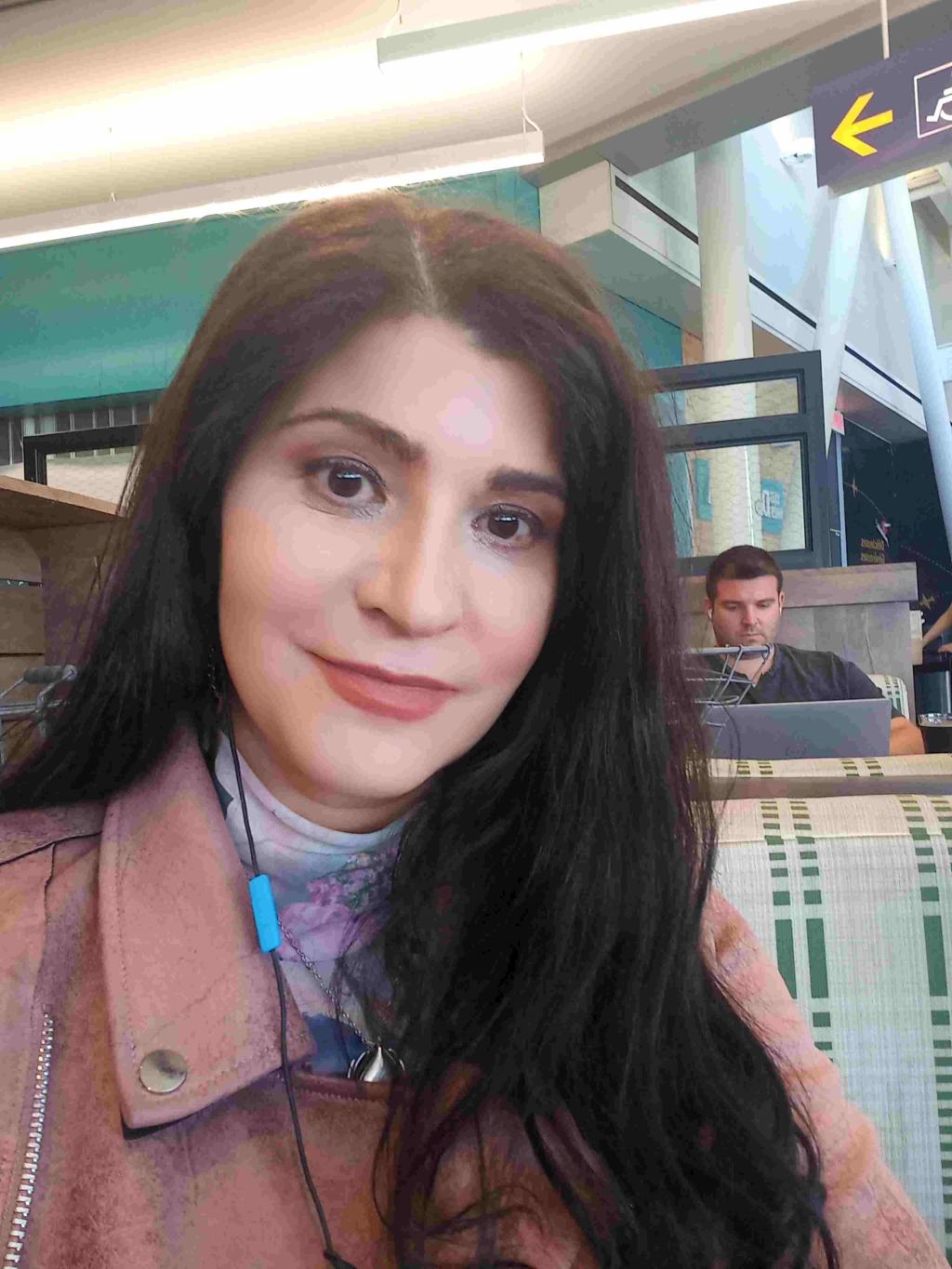
Professor Parisa Ariya is James McGill Chair in Chemistry, Atmospheric and Oceanic Sciences. Her physical-analytic chemistry laboratories explore particles, bridging chemical, physical and biological-health processes in air, and interfaces with water/snow, soil, and building surfaces. This lab currently designs novel analytical chemistry technologies at McGill University to track individual single and clusters of particles, including airborne virus droplets and aerosols, without needing particle trapping in milliseconds. They also develop ultra-trace chemical detection capabilities and remote-sensed (AI) recyclable nano-sensors. This lab contributes to solving the pollution enigma by developing sustainable remediation-recycling methods and technologies for pollutants (gaseous and particles, including bioaerosols such as airborne viruses, and emerging contaminants) with zero-net energy. It allows understanding of feedback mechanisms between atmospheric, biogeochemical and microphysical processes. Dr. Ariya has published >150 internationally peer-reviewed publications, four patents, a book, and > 300 proceedings. She has presented >140 invited lectures on four continents. Several of her research contributions have been distinguished internationally. She has had the privilege of mentoring over 180 bright, highly qualified personnel in her laboratories who all follow their career of choice; many have become global leaders in academia (26 faculty members), governments, industries (4 CEO), or start-ups. Dr. Ariya has served in several leadership positions, e.g., the principal investigator of major grant applications, leading or acting as a member of grant agencies in Canada, the U.S., the EU, Asia and South America, notably serving as the chairperson of the Joint European Union Panel on Arctic Climate Change. She has served as an Editor and on the Editorial Boards of several international journals, including Analytical Chemistry (ACS), Cambridge Press and the Royal Society for Chemistry (U.K.). Dr. Ariya has also served as the chairperson of McGill’s Department of Atmospheric and Oceanic Sciences. Professor Ariya has served as the lead author of two United Nations Environmental Protection (UN-EP) chapters on metal transformation in the environment. In addition, she has contributed to policy-related scientific reports on toxic contaminants, the Canadian Environmental Protection Act, the Clean Air Regulatory Agenda, an advisor to the House of Commons (CEPA revisions), Arctic assessment reports, and an advisor to Canadian Minamata convention delegates. Her numerous interviews have been distributed through major international mainstream and web-based media, from Spiegel and Washington times, translating science to the public and stakeholders.
LOCATION : Virtual presentation via Zoom.
TIME: Friday 25 November 2022, 11:45 AM, EDT
RSVP: Meeting will take place on Zoom. Please register in advance for this meeting. If you have registered and lost your Zoom credentials, search your inbox or already-read mail for this exact phrase: CMOS Ottawa Centre Luncheon Meeting in the subject line.
NEXT MEETINGS:
CMOS Tour Speaker, Dr. Robert Way, Thursday November 17, on Climate Services in Canada's North: Are we doing enough?
Please click here for more details and to register.
Sabah Ibrahim, January 26, 2023, on climate agents
Dan Shan, February 23, 2023 on coastal/shelf dynamics
Title: Climate Services in Canada's North: Are We Doing Enough?
Recording: https://youtu.be/AsLV6he6gMs
Upcoming CMOS Ottawa Centre Virtual Lunch Meeting / 20 October 2022
Speaker: Dr Ward Smith, Research Scientist, Ottawa Research and Development Centre, Agriculture and Agri-Food Canada
Title: How may a changing climate impact cropping systems in Canada?
Abstract: Understanding how climate change impacts crop growth and soil health in Canada and identifying ways to manage these impacts is especially important since temperatures in Canada are increasing faster than the global average. Historically we’ve seen how a warming climate can provide certain benefits as the available seasonal crop heat units and frost-free periods have increased over long-term historical averages. However, in the future, some agricultural regions could be subject to higher incidences of extreme drought, increased crop heat stresses and excess water. In this presentation, we will review the state of models and modelling procedures for predicting the impacts of climate change on cropping systems. We will demonstrate how crops in Canada may respond to climate change and discuss the benefits of adaptation by changing crop types, rotations, and fertilizer strategies.
BIO: Dr. Ward Smith
Ward has 25 years’ experience leading research on identifying sustainable and resilient farm management practices in Canada. He integrates new research into agroecosystem models and investigates the interactions between climate, soils and agricultural management on crop growth, hydrology, GHG emissions, and soil carbon change. He uses these models to study ways to reduce adverse impacts of climate change on cropping systems and determines soils at risk in Canada. Ward chairs a World Meteorological Organization expert team on Agrometeorological Sciences and collaborates in international studies focused on improving and inter-comparing agricultural models and assessing the impacts of climate change on crop production.
LOCATION : Virtual presentation via Zoom.
TIME: Thursday 20 October 2022, 11:45 AM, EDT
RSVP:
Meeting
will take
place on Zoom. Please register in advance
for this meeting. If you have registered and lost your Zoom
credentials, search your inbox or already-read mail for this exact
phrase: CMOS Ottawa Centre Luncheon Meeting
in the subject line.
NEXT MEETINGS:
Prochain déjeuner-causerie virtuel / 29 septembre 2022
Speaker : Peter Kimbell : Warning Preparedness Meteorologist, Meteorological Service of Canada, Environment and Climate Change Canada
Title : The southern Ontario derecho of May 21, 2022: an Environment and Climate Change Canada perspective.
Abstract : Four years after the National Capital Region tornado outbreak of September 21, 2018, another summer convective storm affected southern Ontario (including the NCR), on May 21, 2022. This time, while the Northern Tornadoes Project did diagnose a few tornadoes, the storm’s primary manifestation was not tornadic. Rather, a linear convective system developed over southwestern Ontario, and maintained its linear characteristics throughout its trajectory across southeastern Ontario, the NCR, and into southern Quebec north of Montreal. Many people in Ontario and Quebec suddenly became familiar with the word “derecho,” which is Spanish for “straight ahead.” We will talk about derechos, including climatology, differences with tornadoes, and more.
BIO : Peter Kimbell
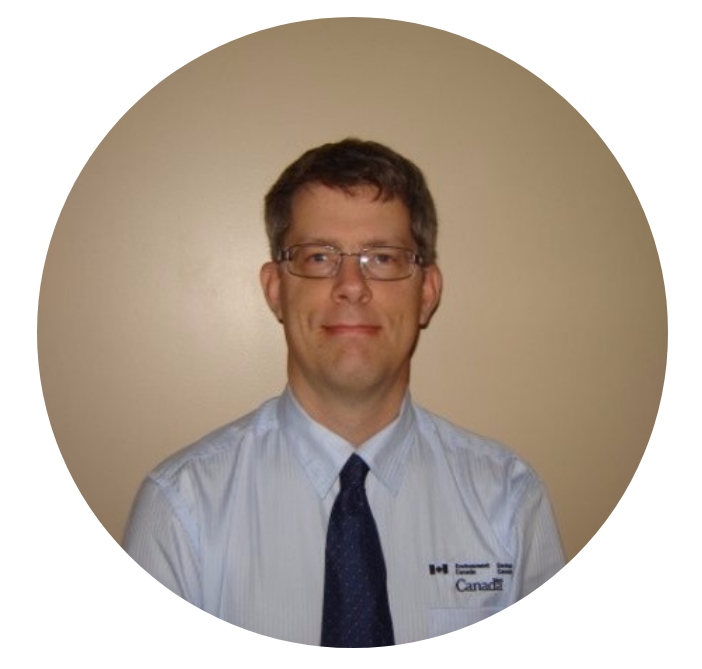
Peter has been a meteorologist with Environment Canada for over 30 years. He began as an operational forecaster in Montreal and Toronto, and since then has worked as far east as Halifax and as far west as Thunder Bay. He has experience doing forecasting for marine and aviation clients, the military, and the general public. Since 2004 Peter has worked in a variety of non-forecasting positions, including policy advisor for international affairs, NAV CANADA Account Manager, A/Chief Aviation and Defence Services, A/Manager Performance Measurement, A/Manager Central Region Services, and A/Manager of the Ontario Storm Prediction Centre. Peter holds B. Sc. and M. Sc. degrees in meteorology from McGill University.
PLACE : Virtual Presentation via Zoom
TIME : Thursday 29 September, 11 h 45 EDT
RSVP : The meeting will be held on Zoom. Please register here before the meeting.
Next Meetings :
Thursday 20 octobre 2022 - Ward Smith, Research Scientist, Ottawa Research and Development Centre, Agriculture and Agri-Food Canada on How may a changing climate impact cropping systems in Canada?
Friday 25 novembre 2022 - Parisa Ariya, McGill University Prof. on "Airborne Transmission of Viruses and COVID Management".
Upcoming CMOS Ottawa Centre Virtual Lunch Meeting / 21 April 2022
Speaker: Dr. Ellen Field, Assistant Professor in the Faculty of Education at
Title: Role
of Education in Climate Action: Research-Informed Engagement
Abstract:
In this talk, Dr. Ellen Field will discuss how education is, and, has been an overlooked mitigation strategy and how education policy can be instrumental as part of a multi-pronged approach to reducing greenhouse gas emissions. Gaps in current education policy at Canadian regional jurisdictions (provincial and territorial) and national levels will be discussed along with best practices of climate change education from empirical research studies. In addition, this talk will consider lessons the formal education system can learn from the youth climate justice movement, and possible pathways for responsive education systems that focus on transformative and transgressive pedagogies. Audience members will take away insights on how education is instrumental to climate action and suggested ways to engage various segments of the population in climate change education.
BIO:
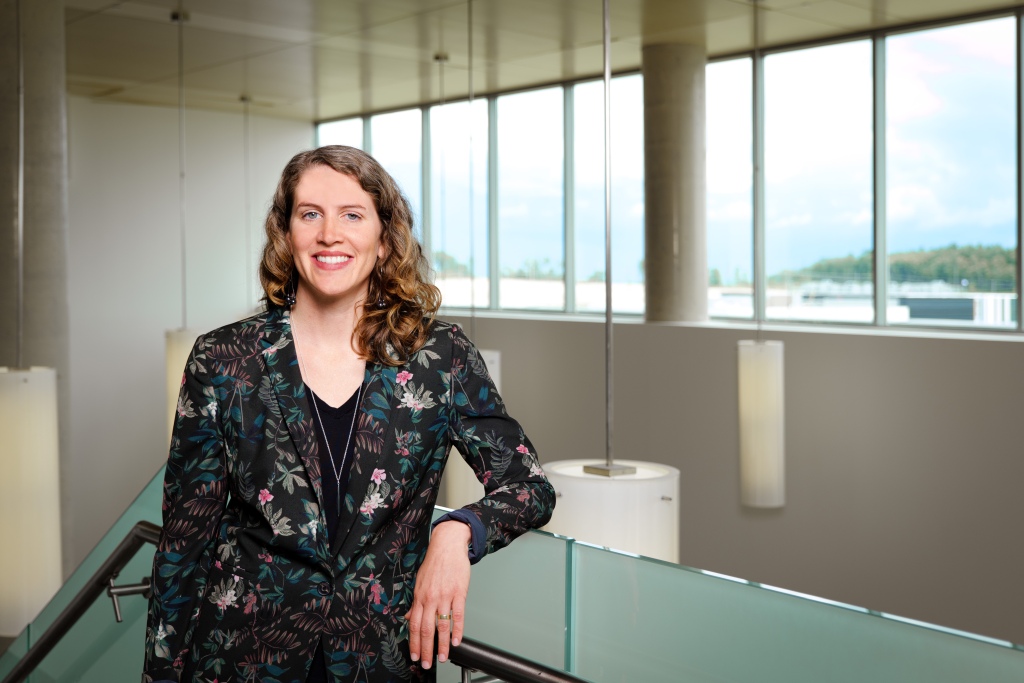
Ellen
Field is an Assistant Professor in the Faculty of Education at
LOCATION: Virtual presentation via Zoom.
TIME: Thursday, 21 April 2022, 11:45 AM, EDT
RSVP: Meeting will take place on Zoom. Please register in advance for this meeting. If you have registered and lost your Zoom credentials, search your inbox or already-read mail for this exact phrase: CMOS Ottawa Centre Luncheon Meeting in the subject line.PAST MEETINGS: Click here for CMOS YouTube Channel containing recordings from most past virtual meetings.
NEXT MEETINGS:
CMOS
Congress - virtual from Saskatoon, 1-3 and 6-8 June 2022
Ottawa Centre - September 2022
CMOS Tour Speaker - 17 March 2022
Speaker : Dr. Eric Oliver
Title: Bridging knowledge systems: Scientific and Inuit knowledge of the ocean and sea ice
BIO:
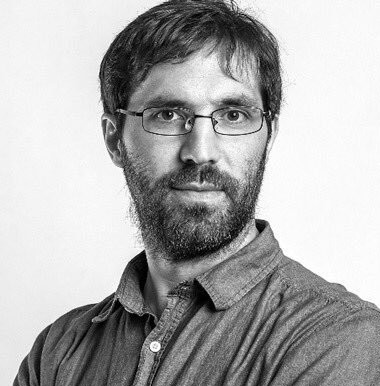 |
Dr. Eric Oliver is an Assistant Professor of Physical Oceanography in the Department of Oceanography, Dalhousie University, Halifax, Nova Scotia, Canada. His research interests involve ocean and climate variability across a range of time and space scales including extreme events, the predictability of climate variations, the influence of modes of variability on the ocean, and the role of climate change on the mean state, variability and extremes of the climate system. He is of Inuit descent with roots in Nunatsiavut (northern Labrador) and is interested in Indigenous perspectives on climate, weather and oceans and understanding both Indigenous and scientific knowledge of these systems. |
Abstract : Science and Inuit both have ways of knowing with a rich understanding of climate, the ocean and sea ice. These understandings are distinct and independent, yet complementary. Is it possible to bridge these two knowledge systems so as to inform each from the other? Is it even desirable? As a Labrador Inuk working in the scientific field of oceanography I have spent the four years exploring these questions. While they cannot be answered simply, I will provide my perspective and experience working at the interface between scientific and Inuit knowledge of the ocean. My research team and collaborators in the Nunatsiavut Government and in Inuit communities in the region, have been undertaking a number of related project and activities along these lines. Inuit knowledge of the coastal ocean and sea ice is being documented using participatory mapping and interview methods. We are developing ways recording Inuit observations of the environment, rooted in and referencing local traditional knowledge and focusing on that which Inuit consider important and of value. Scientific measurements of coastal ocean temperature, salinity, and ocean currents are being made through community-based monitoring programmes with representation in most communities in Nunatsiavut who are providing their expertise in choosing locations, times, and methods of accessing field sites. Finally, we are developing numerical ocean models for the region with Inuit Knowledge providing both ground-truths against which we can validate the model as well as informing hypothesis and model experiments. We have also been exploring the role that land-based activities, including research workshops, can play in this process. We are encouraged by the points of contact between science and Inuit knowledge that have emerged – such as maps, conceptual models, hypotheses – and that these can play the role of boundary objects to facilitate dialogue between these two knowledge systems.
Upcoming CMOS Ottawa Centre Virtual Lunch Meeting / 17 February 2022
Title:
Methane emissions from the Hudson Bay Lowlands
Abstract: The
Hudson Bay Lowlands (HBL) is the largest contiguous peatland complex in
We measured CH4 fluxes using the eddy covariance technique at four HBL peatland sites with different vegetation and peat characteristics over several years. Total seasonal emissions ranged from 2.6 to 7.2 g CH4 m-2 (Apr 1 – Nov 30) with the highest values at the wettest and warmest peatland, a patterned fen, and the lowest at the driest and coolest peatland, a raised peat plateau with permafrost. Year-to-year variability in CH4 emissions was less than site-to-site variability. These measurements can help constrain recent top-down estimates of HBL-wide CH4 budgets. We also discuss how these measurements can help us understand the potential impacts of warming, drying and thaw on HBL CH4 emissions.
BIO:

Elyn
Humphreys is a Professor in the Department of Geography &
Environmental Studies at Carleton University.
LOCATION:
Virtual presentation via Zoom.
TIME: Thursday, 17 February 2022, 11:45
AM, EST
PAST MEETINGS: Click here for CMOS YouTube Channel containing recordings from most past virtual meetings
NEXT MEETINGS:
Thursday 17 March 2022 - Eric Oliver Experiences bridging knowledge systems (ocean science and Inuit Knowledge) in coastal Nunatsiavut. (NB. talk to be hosted jointly by the Ottawa and Halifax Centres)
Thursday
21 April 2022 - Ellen Field Role of Education in Climate Action:
Research-informed engagement
.
Upcoming CMOS Ottawa Centre Virtual Lunch Meeting / 20 January 2022
Speakers: Trevor Andersen and Astrid Schetselaar
Titles:
Trevor Andersen: Synoptic conditions leading to storm force winds in Hurricane Alley, km 450-465, Dempster Highway, Yukon
Astrid Schetselaar: Increases in maintenance costs for highways due to climate change in Yukon
Abstracts:
Trevor Andersen: The final 15
kilometres of the Dempster Highway within the Yukon (YT km 450-465) –
known as Hurricane Alley – experience strong downslope winter
windstorms. Easterly winds blow perpendicularly across the highway
after topographic enhancement by a north-south ridge east of the road.
The ECCC Rock River meteorological station recorded 88 hours of
sustained wind speeds above 75 km/h during winter 2020/21. The
windstorms frequently cause road closures and hazardous conditions for
motorists. ECCC wind forecasts are often inaccurate since the modelled
grid cells are much larger than the ridge; however, recent UBC
modelling suggested that using smaller grid cells should increase
accuracy. In October 2021, seven additional local meteorological
stations were installed to measure winds. This talk will discuss the
state of the research on Hurricane Alley windstorms, and the use of
synoptic tools (ECCC analysis charts and NOAA HYSPLIT model results) to
explain atmospheric conditions responsible for the windstorms.
Astrid Schletselaar: Climate warming is causing rapid and widespread environmental change in northern regions. Transportation networks in Canada’s North are becoming increasingly vulnerable to the impacts of climate change. Rising ground temperatures and permafrost thaw have been a main cause of road damage as the bearing capacity of the ground is significantly reduced and subsequently subsides, leading to differential settlement of the road surface. Other road damage is due to increased precipitation which causes road washouts, icings, damage of culverts and landslides. Under current climate trends, it is expected that highway infrastructure in northern communities will require increased maintenance, incurring significant costs, in order to meet functional standards.
This presentation will outline a quantified assessment of climate change-induced maintenance expenditures for highways in Yukon. Changes in expenditures linked to climate conditions will be discussed in relation to underlying permafrost and ground ice conditions.
BIOs:
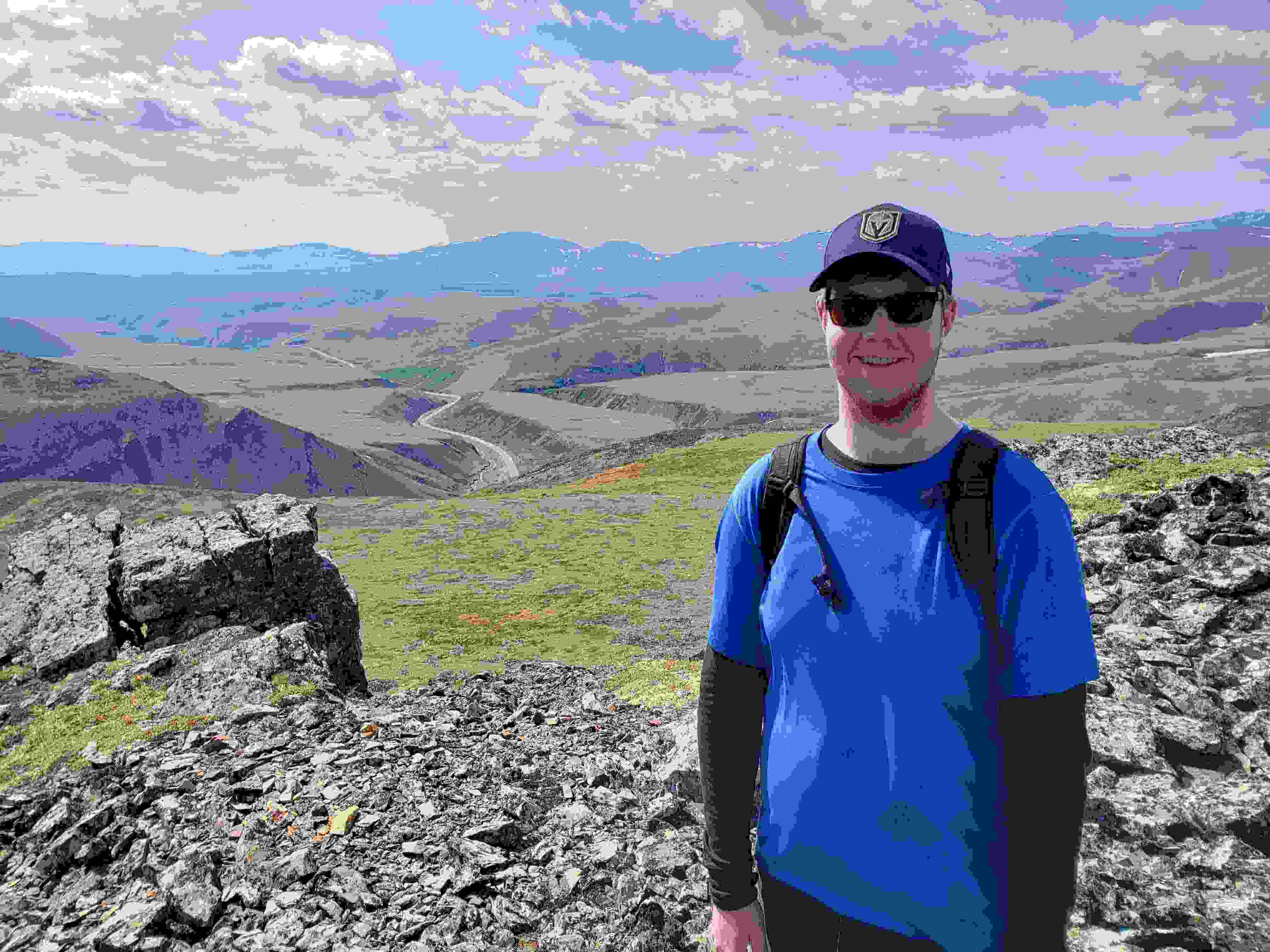
Trevor Andersen grew up in
Ottawa ON and completed his B.Sc. in Physical Geography at Carleton
University in April of 2020. He is currently completing his M.Sc. in
Geography at Carleton University under the supervision of Dr. Chris
Burn and Dr. Ian McKendry (UBC). His interest in meteorology originated
from experiencing Hurricane Charley while on vacation in Florida during
August 2004. Trevor’s introduction to the windstorms of Hurricane Alley
occurred while assisting another Masters student with her research
there.
Astrid Schetselaar
is a M.Sc. candidate in Geography at Carleton University, under the
supervision of Dr. Chris Burn. Her research interests include the
effects of climate change on northern transportation systems in
permafrost regions and the consequent social, economic, and cultural
outcomes of these effects. As well, her interests are in translating
scientific investigations of the impacts of climate change to policy
for the development of sustainable and resilient infrastructure.
Previously, Astrid completed a B.Sc. in environmental science at the
University of Ottawa with a specialization in global change.
LOCATION:
Virtual presentation via Zoom.
TIME: Thursday, 20 January 2022, 11:45
AM, EST
PAST MEETINGS: Click here for CMOS YouTube Channel containing recordings from most past virtual meetings.
Upcoming CMOS Ottawa Centre Virtual Lunch Meeting / 18 November 2021
Speaker:
Stephan Gruber, Professor, Carleton University
Title: Toward Permafrost Climate Services
Abstract: The Special Report on the Ocean and Cryosphere in a Changing Climate (SROCC) revealed the benefits of ambitious mitigation and effective adaptation and, conversely, the escalating costs and risks of delayed action. But how do we best enable this effective adaptation and ambitious mitigation when it comes to permafrost thaw? In this presentation, I will explore the potential role of operational services. With the framing of climate services, several distinct challenges can be identified for permafrost climate services: (1) history – climate services evolved from e.g., National Weather Services, whereas permafrost services are rarely established, (2) perception – permafrost areas are in the periphery and hazards affect relatively few people directly, and (3) processes and paradigms – a new combination of research and capabilities related to the atmosphere and the subsurface are needed to generate future scenarios of permafrost thaw. Emerging permafrost climate services and initiatives will be discussed to illustrate the growing momentum that exists in Canada, for example NSERC PermafrostNet, and globally.
BIO:
Stephan
Gruber
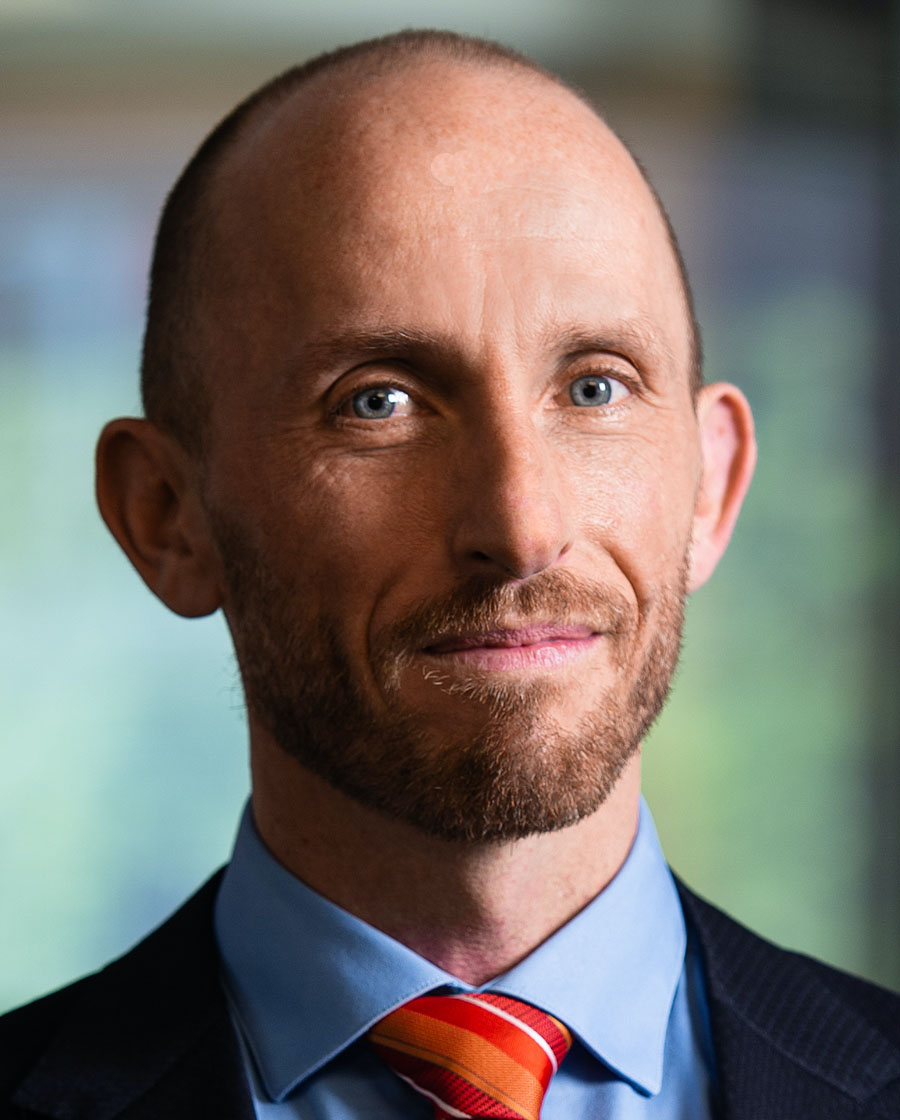
Stephan
is a Professor at Carleton University and the Canada Research
Chair in Climate Change Impacts/Adaptation in Northern
Canada. Previously, he worked at the University of Zurich
(Switzerland) and the Université de Savoie (France). His
education is in Physical Geography (Germany, Switzerland),
Environmental Systems Analysis and Monitoring (the
Netherlands), and Arctic Studies (Finland). Stephan's research
program quantifies permafrost thaw in Arctic and
high-mountain environments.
· PermafrostNet
(NSERC Permafrost Partnership Network for
Canada), scientific director, since 2019
· IPCC
Special Report on the Ocean and Cryosphere in a Changing Climate,
lead author and member of drafting team for the Summary
for Policymakers, 2017–2019
· Hindu
Kush Himalayan Monitoring and Assessment Program, lead author,
2016–2018
· Co-editor-in-chief
of The Cryosphere, 2010–2017
·
Contributor to Swiss Permafrost Monitoring Network PERMOS, 2004–2013
NEXT MEETINGS:
Thursday 20 January
2022 - Trevor Andersen and Astrid Schetselaar
- Trevor Andersen: Storm force winds in Hurricane Alley, KM 450-465, Dempster Highway, Yukon
- Astrid Schetselaar: Increases in maintenance costs for highways due to climate change in Yukon
Thursday 17 February 2022 - Dr. Elyn Humphreys Peatland / tundra methane flux studies
Thursday 17 March 2022 - Eric Oliver Experiences bridging knowledge systems (ocean science and Inuit Knowledge) in coastal Nunatsiavut. (NB. talk to be hosted jointly by the Ottawa and Halifax Centres)
Thursday 21 April 2022 - Ellen Field Role of Education in Climate Action: Research-informed engagement
Upcoming CMOS Ottawa Centre Virtual Lunch Meeting / 21 October 2021
Speakers:
Dr. Alan
Betts, Atmospheric Research, Pittsford, Vermont
Title: Climate Change and Society
Abstract: This talk will be based upon this recent paper which I suggest you scan.
"Climate Change and Society" DOI: 10.3934/geosci. 2021012
This examines our understanding of climate change, as well as the reluctance of industrial societies to deal with the drivers, especially the burning of the fossil fuels, before the consequences become catastrophic. I have worked as a professional scientist for 50 years, but I also realized 50 years ago that science alone is not enough to deal with pressing global issues, as it lacks a moral framework—it lacks wisdom. So I decided it was also my responsibility as a scientist to develop the skills to map out what drives the social framework and the social assumptions. I contrast the Earth-centered indigenous worldview needed for our survival (which has been systematically destroyed), with the industrial capitalist mindset of the Fossil fuel Empire that is destroying our stable climate to maximize profits. We review briefly the long history of the misuse of human power, and the rise of science and technology without a guiding moral framework. But the deceit and bribery of politicians by the Fossil Empire are no match for the Earth system response. We are seeing new climate extremes on a global scale that are destroying our fossil fuel and economic infrastructure in an attempt to save some of the Earth’s ecosystem.
BIO:
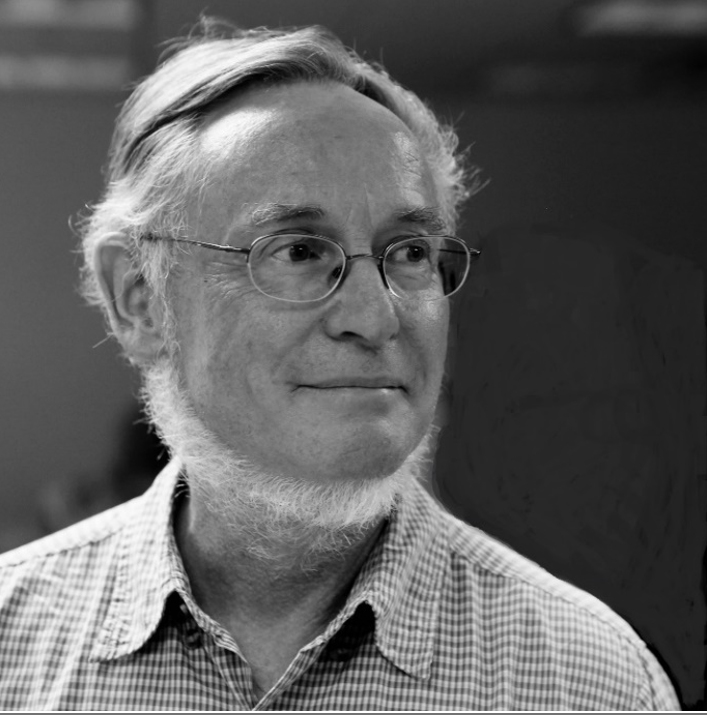
Dr. Alan Betts of
Atmospheric Research in Pittsford, Vermont is a climate scientist, who
has worked on climate
change planning for Vermont. He is a Weekly
Planet columnist for the Rutland Herald and Barre-Montpelier
Times-Argus, and before COVID he was a frequent speaker on climate
change issues around the state. You can hear and see his radio and TV appearances on his
web-site: https://alanbetts.com/talks
He is a Fellow of the American Geophysical Union, the American Meteorological Society (AMS), the Royal Meteorological Society, the American Association for the Advancement of Science, and a past-president of the Vermont Academy of Science and Engineering (VASE). He has authored more than 175 reviewed papers in the scientific literature. He was the AMS Robert E. Horton Lecturer in Hydrology in 2004; and the AMS Jule Charney Award winner in 2007. In 2016, Alan Betts was the first recipient of the Bert Bolin Global Environmental Change Award from the American Geophysical Union.
Atmospheric Research was established in Vermont in 1979. Its mission is to understand the Earth’s weather and climate, to develop improved earth system models and to help society understand the existential challenge of global climate change.
LOCATION:
Virtual presentation via Zoom.
TIME: 21 October 2021, 11:45
AM, EDT
RSVP:
Meeting
will take
place on Zoom. Please register in
advance for this meeting. If you have registered and lost your Zoom
credentials, search your inbox or already-read mail for this exact
phrase: CMOS Ottawa Centre Luncheon Meeting
in the subject line.
PAST MEETINGS:
Click here
for CMOS YouTube Channel containing recordings from
most past virtual meetings.
NEXT MEETING: Thursday November 18th, speaker Dr. Stephan
Gruber on Permafrost Climate Services as a way to frame the
research in NSERC PermafrostNet
Upcoming CMOS Ottawa Centre Virtual Lunch Meeting / 23 September 2021
Speakers: Barbara Delisle and Peter Kimbell from Meteorological Service of Canada
Title: Canadian Weather Radar - Public Display Update and Plans for Upgrading Franktown Site
Abstract:
In 2017, the Government of Canada announced the replacement
of its weather radar network. At the time, the network consisted of 31
radars, including two operated in partnership with the Department of
National Defence and one owned by McGill University. A contract was
awarded to buy and install 32 to 33 new radars. They are S-band (10 cm)
radars, and utilize dual-polarization technology. One of the radars is
located in Franktown, in eastern Ontario, and was just commissioned
(August 2021). The presentation will provide an overview of the
network, the new technology, and the resulting improvement in our
ability to forecast the weather in eastern Ontario. The website www.weather.gc.ca is
getting a makeover that will allow you to view more weather products
and services. You probably noticed on March 29 that the RADAR product
changed on your favorite weather website! This was a first step towards
transforming the site, which now offers products and services
geo-referenced on a single map of Canada. As with every transformation,
a lot of reactions and adjustments were necessary. We will be happy to
provide you with an overview of the changes and improvements available
now and in the future.
BIOs:
BARBARA DELISLE

Senior Manager, Dissemination Systems, Meteorological
Service of Canada, Environment and Climate Change Canada
Federal public servant for 20 years, Barbara Delisle has acquired a diversified experience in the management of programs and services, in particular as the manager responsible for human resources compliance at the Communications Security Establishment, Fisheries and Oceans Canada, and the Office of the Languages Commissioner. She then developed an information management and automated planning system for 26 research units at Employment and Social Development Canada, before joining the Benefits Directorate at the Treasury Board Secretariat, where she orchestrated the overhaul of business and project management processes. Barbara joined the Meteorological Service of Canada in March 2014. With her team of experts and technicians, she leads the way in maintaining operations on our broadcasting platforms and hardware and software transformations to improve and extend our services to the population. Through various internal and external partnerships with the organization, programmers, scientists and service agents, she made possible the transformation of voice systems, various website transitions and improvements to the mobile application. A change agent and vision maker, she proudly shares advancements in MSC IT service delivery.
****
PETER
KIMBELL

Warning Preparedness Meteorologist, Meteorological
Service of Canada, Environment and Climate Change Canada
Peter has been a meteorologist with Environment Canada for over 30 years. He began as an operational forecaster in Montreal and Toronto, and since then has worked as far east as Halifax and as far west as Thunder Bay. He has experience doing forecasting for marine and aviation clients, the military, and the general public. Since 2004 Peter has worked in a variety of non-forecasting positions, including policy advisor for international affairs, NAV CANADA Account Manager, A/Chief Aviation and Defence Services, A/Manager Performance Measurement, A/Manager Central Region Services, and A/Manager of the Ontario Storm Prediction Centre. His substantive position (and the one he likes most) is that of Warning Preparedness Meteorologist for eastern Ontario. Peter holds B. Sc. and M. Sc. degrees in meteorology from McGill University.
LOCATION:
Virtual presentation via Zoom.
TIME: 23 September 2021, 11:45
AM, EDT
RSVP:
Meeting
will take
place on Zoom. Please register
in advance for this meeting. If you have registered and
lost your Zoom credentials, search your inbox or already-read mail for
this exact phrase: CMOS Ottawa Centre Luncheon Meeting
in the subject line.
PAST MEETINGS:
Click here
for CMOS YouTube Channel containing recordings from
most past virtual meetings.
NEXT MEETING: Thursday October 21, speaker Dr. Alan Betts, on "Science and Society Challenges".
Upcoming CMOS Ottawa Centre Virtual Lunch Meeting / Thursday 29 April 2021
Speaker: Laura Twidle, Managing Director, Catastrophe Indices and Quantification Inc. (CatIQ)
Title: The Impacts of Extreme Events on the Canadian Insurance Industry
Abstract: While a global pandemic paused many aspects of our lives in 2020, extreme weather events gave us no reprieve. Natural and man-made disasters, known as “catastrophes,” in the insurance industry, broke global records around the world last year, and Canada was no exception. Insured losses in Canada from catastrophic events in 2020 were nearly CAN $2.4 billion, continuing the past decade’s trend of increasing annual losses.
Identifying and preparing for the concerns of the more frequent, more severe extreme weather events anticipated by climate change is key to reducing impacts on Canadians. Insured loss data in combination with climate data and mitigation techniques can provide decision makers with the necessary information to act.
This
presentation will provide an analysis of the meteorological factors at
work in natural catastrophes and the geographical distribution of
Canada’s NatCATs, with emphasis on 2020, using data collected by CatIQ,
Canada’s insured loss and exposure indices provider. Analysis will
include a close look at 2020 insured loss data and how it compares to
the Canadian catastrophe loss database.
BIO: Laura Twidle
For the last five years, Laura has been a professional meteorologist
specializing in catastrophe forecasting and reporting to provide
stakeholders with information and tools to make informed decisions.
Laura also analyzes insured loss and exposure data to maintain the
Canadian catastrophe and industry exposure databases and has designed
and managed several projects at CatIQ. Since 2017 she has also had a
role on the steering committee for the annual Canadian catastrophe
conference. Laura holds a BSc. in meteorology from Central Michigan
University and an MSc. in atmospheric and oceanic sciences from McGill
University, where her thesis focused on extreme rainfall events. In her
free time, Laura plays and coaches competitive soccer.
LOCATION: Virtual
presentation via Zoom.
TIME: Thursday 29 April, 11:45
AM, EDT
Upcoming CMOS Ottawa Centre Virtual Lunch Meeting / Thursday 8 April 2021 / co-hosted by CMOS Winnipeg Centre
Speaker: Andrea Niemi, Research Scientist in the Arctic and Aquatic Research Division of Fisheries and Oceans Canada
Title: Exploring drivers of forage species variability in the Beaufort Sea and Amundsen Gulf
Abstract: Arctic Cod and copepod zooplankton are key forage species supporting subsistence species and ecosystem stability in coastal and offshore regions of the western Canadian Arctic. Long-term ocean observatories (1999-2018), ecosystem- based ship surveys (2012-2019) and acoustic moorings (AZFP) have together provided insights into the magnitude and timing of forage species responses to variable sea-ice and wind conditions. We present the multi-year forage species response to the 2012 record low summer sea-ice event, and we show how recent increases in downwelling favorable winds are supporting the concentration of forage species in areas of importance for Arctic Cod spawning and bowhead feeding. We also explore potential drivers related to changes in Pacific inflow, including associated ocean acidification, that could affect forage species on the Mackenzie Shelf and in the Amundsen Gulf.
BIO: Andrea Niemi
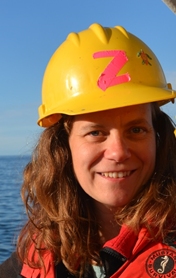
Andrea's research experience began at the Experimental Lake Area and she slowly migrated northward, moving from Arctic freshwater to Arctic marine lower trophic studies. Andrea received her PhD from the University of Quebec in Rimouski, focusing on microbial mediated organic carbon cycling associated with Arctic sea ice. Andrea is currently a Research Scientist in the Arctic and Aquatic Research Division of Fisheries and Oceans Canada. Normally she'd be working from the Freshwater Institute in Winnipeg, but remains working from home. She enjoys working with a wonderful team in Winnipeg and Iqaluit to deliver ecosystem-based offshore and coastal programs, and specific forage species studies.
LOCATION: Virtual presentation via Zoom.
TIME: Thursday 8 April, 11:45 AM, EDT
RSVP: Meeting will take place on Zoom. Please register in advance for this meeting. If you have registered and lost your Zoom credentials, search your inbox or already-read mail for this exact phrase: CMOS Ottawa Centre Luncheon Meeting in the subject line.
Upcoming CMOS Ottawa Centre Virtual Lunch Meeting - Thursday 18 March 2021
Speaker: Ronnie Drever, Senior Conservation Scientist
Title: Natural Climate Solutions for Canada
Abstract: Alongside the steep reductions needed in fossil fuel emissions, natural climate solutions (NCS) represent readily deployable land-based options that can contribute to Canada's goals for emissions reductions. We estimate the potential for mitigation of climate change from 24 NCS related to the protection, management, and restoration of agricultural lands, wetlands, grasslands and forests. These "pathways" can also deliver numerous co-benefits, such as enhanced soil productivity, clean air and water, and biodiversity conservation. We identify promising mitigation potential for NCS in Canada, with a significant proportion available as cost-effective mitigation. Pathways with potential include avoided conversion of grasslands, avoided peatland disturbance, cover crops and improved forest management. NCS represent an important potential contribution to Canada's commitments under the Paris Agreement, such that NCS combined with existing mitigation plans could help Canada to meet and exceed its climate goals.
BIO: Ronnie Drever
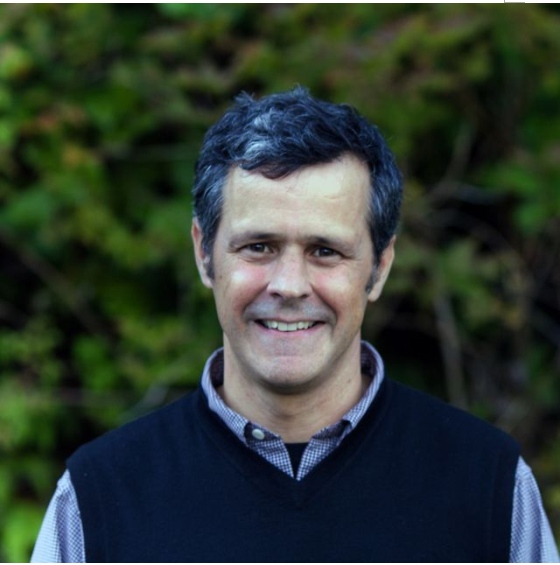
Ronnie Drever works as a Senior Conservation Scientist for Nature United. He started with The Nature Conservancy in 2007 and provides science leadership and technical expertise to Nature United's place-based and climate projects.
Ronnie studied Biology and Geography at Queen's University, and later moved to Vancouver to complete a Master's in Resource and Environmental Management at Simon Fraser University. After several years working as a biologist and researcher in various parts of British Columbia, he moved to Montreal and in 2008 completed a Ph. D. in Biology at Université du Québec a Montréal.
LOCATION: Virtual presentation via Zoom.
TIME: Thursday March 18, 11:45 AM
RSVP: Meeting will take place on Zoom. Please register in advance for this meeting. If you have registered and lost your Zoom credentials, search your inbox or already read mail for this exact phrase: CMOS Ottawa Centre Luncheon Meeting in the subject line.
PAST MEETINGS: Click here for CMOS YouTube Channel containing recordings from recent virtual meetings.
NEXT MEETINGS:
Thursday April 8, Andrea Niemi (DFO Winnipeg), on Drivers of forage species variability in the Canadian Beaufort Sea
Thursday April 29, Laura Twidle, Managing Director, Catastrophe Indices and Quantification Inc. (CatIQ), on The Impacts of Extreme Events on the Canadian Insurance Industry
Upcoming CMOS Ottawa Centre Virtual Lunch Meeting - Thursday 4 March 2021
Speaker: Mark Ward, consulting ocean explorer / coordinator of marine research
Title: Exploring the deeps with Alucia
Abstract: Over 70% of our world is covered by oceans, yet only an estimated 5% of our oceans have been explored and charted. Underwater exploration requires advanced shipboard technologies and dedicated vessels. The Motor Vessel Alucia provides a unique research platform for this endeavour. MV Alucia is a sophisticated deep sea exploration vessel that combines the capabilities of a modern research ship with the comforts of a luxury yacht. Mark Ward has planned and coordinated expeditions for the owner of Alucia ocean philanthropist Mr. Ray Dalio since 2012. He also supports missions and outreach efforts for the OceanX, the non-profit research group founded by Mr. Dalio in 2018 (www.oceanx.org).
He will outline the ship’s facilities and their use to support and facilitate a range of diving, submersible and aerial research operations; as well as for filming of the oceans, as featured in the BBC series ‘The Blue Planet II’. He will also highlight some of the research that has been done and introduce a new vessel the OceanXplorer, that was recently launched to augment the research efforts of OceanX.
BIO: Mark
Ward, February 2021
Since 2012 Mark Ward
has worked for ocean philanthropist Ray Dalio and his research vessel MV
Alucia. He also helped develop the organization into one of the
world’s leading ocean exploration entities, now called “OceanX”. Mark
has planned and coordinated dozens of expeditions around the world for
Mr. Dalio and his guests, scientists and media influencers including
Sir David Attenborough, Sylvia Earle and Leonardo DiCaprio. He also
helped develop collaborations with NOAA, the BBC, the California
Academy of Sciences, government entities and NGOs. In 2020, OceanX
launched a larger research vessel, OceanXplorer. Mark continues
to support mission planning for the new ship and cultivating
partnerships to further the mission of OceanX
Prior to his work for Ray Dalio, Mark served a variety of clients, primarily in the realm of sea and space. From 2010 to 2011 he provided business development services for KSC Prime Contractor IHA as they sought to retool after the shuttle program ended. From 2000-2004 Mark was contracted by UNC Wilmington to promote and develop programs for NOAA’s Aquarius Undersea Lab where he established partnerships with NASA, the US Navy Experimental Dive Unit (NEDU), various science centers and aquaria. Mark was also contracted by NASA to manage education programs at KSC and Ames. In that capacity he created educational materials, produced videos and organized outreach events teaching the public about the powerful connections and applications between sea and space exploration.
Also in the early 2000s, Mark was contracted by NOAA’s Office of Ocean Exploration (OE) to help develop and promote public programs and coordinate the first Link Symposium, a joint NOAA/NASA initiative for professionals in sea and space. In 2000 Mark was contracted by UNCW and the National Undersea Research Center (NURC) to coordinate public affairs for the Alvin submersible’s Gulf of Mexico expedition. He also ran PR programs for Oceanology International and conceived and coordinated two SeaForum conferences.
In 2003 Mark planned and coordinated an expedition in the English Channel for a one-hour History Television documentary. He served as a key figure in the program, diving 285 ft. to explore the wreck of HMCS Athabaskan, Canada’s most significant warship loss. Mr. Ward’s grandfather, RCN Lt. Les Ward, was among the 128 Canadian sailors to perish with the ship in the weeks leading up to D-Day 1944.
In the late 1990s Mark served as publicist for Mercury astronaut Scott Carpenter, coordinating public appearances, speeches, book-signings and special events including a live sea to space comms link from the La Chalupa undersea lab in the Florida Keys to the orbiting Space Shuttle Endeavour.
From the early to mid 1990s Mark was contracted by ocean pioneer Ian Koblick to provide PR, marketing and business development services for the Marine Resources Development Foundation and Jules Undersea Lodge. In that capacity Mark cultivated partnerships with NASA, the US Navy and various science centers. He also helped develop and promote the Scott Carpenter Man in the Sea Program, which used undersea labs and a sub to provide hands on underwater training to Navy divers, teachers, students and members of the media.
From 2001-2019 Mark served as the meeting coordinator for the Sea Space Symposium, planning and managing 36 consecutive gatherings and dive trips around the world over 18 years. He was invited to join as a member in 2019. Mark is a certified Divemaster, Ice Diver and Trimix Diver and has completed more than 1,200 scuba dives around the world, the deepest to 305 feet. In his work supporting undersea living projects he has spent over 40 nights in four different undersea laboratories.
Mark has written more than 100 articles on science, technology, travel and adventure subjects for Reader’s Digest, Sport Diver Magazine, Popular Science, Disney Magazine, Hawaiian Style, Air Force Magazine, LeisureWays, Underwater Magazine, FunWorld and others.
In addition to his long affiliation with and membership in the Sea Space Symposium, Mark is a member of the Explorer’s Club and sits on the board of the Historical Diving Society. He was educated in Canada in business management and film and TV production and is fluent in French. He currently lives in the Washington, DC area where he enjoys exploring the region’s museums and restaurants, hiking, playing piano and singing.
LOCATION:
Virtual presentation via Zoom.
TIME:
Thursday
March 4, 11:45 AM
RSVP: Meeting will take place on Zoom. Please register
in advance for this meeting.
PAST MEETINGS: Click
here for CMOS YouTube Channel
containing recordings from recent virtual meetings.
2021 TOUR SPEAKER INFORMATION: March 3rd, Question Period - Follow this link for information and to Register
Upcoming CMOS Ottawa Centre Virtual Lunch Meeting - Thursday 18 February 2021
SPEAKERS:
Trio from Ottawa University: Abby Dalton (PhD
candidate), Andrew Hamilton (post-doc) and Adam
Garbo (MSc student).
TITLE: Glacier-ocean-iceberg interaction in the Canadian Arctic Archipelago
COMBINED ABSTRACT: Atmospheric warming is leading to rapid glacier surface melting, which releases vast volumes of freshwater to the ocean. Where glaciers flow into the sea, warm subsurface ocean water can also drive submarine melting leading to rapid terminus retreat and the production of icebergs. This series of talks will investigate relationships between changes in glaciers, the ocean, and icebergs in the Canadian Arctic Archipelago (CAA).
Abby uses speckle-tracking to produce a 12-year record (2009-2019) of winter surface velocities for the main outlet glaciers from the Prince of Wales Icefield, Ellesmere Island. Combined with thickness measurements, terminus retreat rates, and bed topography, this research will help to determine the processes controlling iceberg production from this region.
Andrew will discuss efforts to understand glacier-ocean interactions at the largest iceberg producing glacier in the CAA, including research from a polar sailing yacht. He will also present a new initiative, the Canadian Arctic Bedmap Project, which aims to produce a comprehensive DEM of subglacial and bathymetric bed topography for the next generation of high-resolution coupled glacier-ocean models.
Adam uses an unprecedented dataset of iceberg drift trajectories to perform the first large-scale validation of the North American Ice Service iceberg drift model in the CAA. Model skill will be assessed by performing hindcast simulations of iceberg drift and quantifying the error between observed and modeled drift tracks. This research will contribute to ongoing efforts to enhance the model to more accurately forecast the drift path of icebergs and improve safety in Arctic waters.
BIOs:
Abigail
Dalton is a PhD candidate at the University of Ottawa,
co-supervised by Dr. Luke Copland and Dr. Wesley Van Wychen. Her
research aims to determine the processes controlling iceberg production
from tidewater glaciers on the Prince of Wales Icefield, SE Ellesmere
Island. Her work will also provide a comprehensive survey of iceberg
characteristics and drift in Canadian waters, and identify potential
risks associated with glacial hazards for vessels operating in the
Eastern Canadian Arctic.
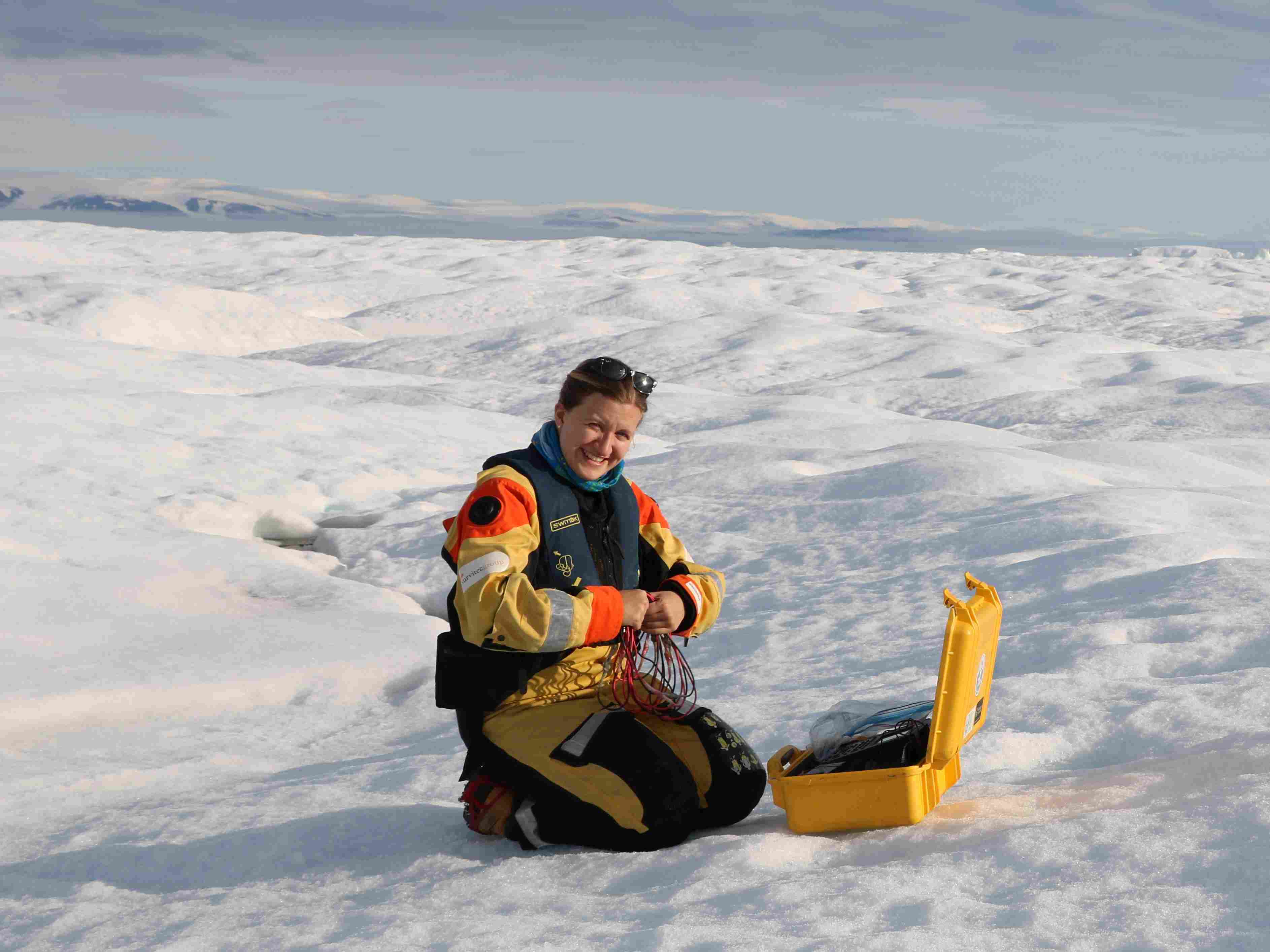
Andrew
K. Hamilton is a postdoctoral fellow at the University of
Alberta whose research focuses on understanding ocean properties and
circulation in the Arctic in a changing climate. He completed a PhD in
Environmental Fluid Mechanics at UBC studying glacier-ocean
interactions and fjord properties on Northern Ellesmere Island.
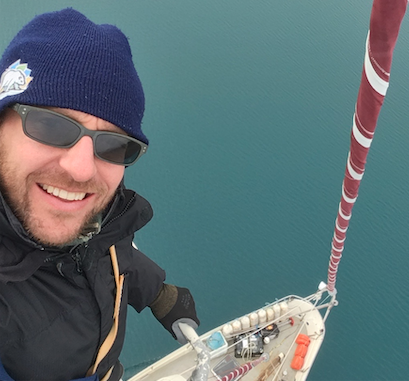
Adam
Garbo is currently pursuing a Master’s of Science in Geography
under the co-supervision of Dr. Luke Copland at University of Ottawa
and Dr. Derek Mueller at Carleton University. His research is focused
on the validation of iceberg drift models used to provide operational
forecasts of iceberg hazards in Canadian waters and on the development
of low-cost, open-source iceberg tracking beacons to monitor the drift
of icebergs in Arctic.
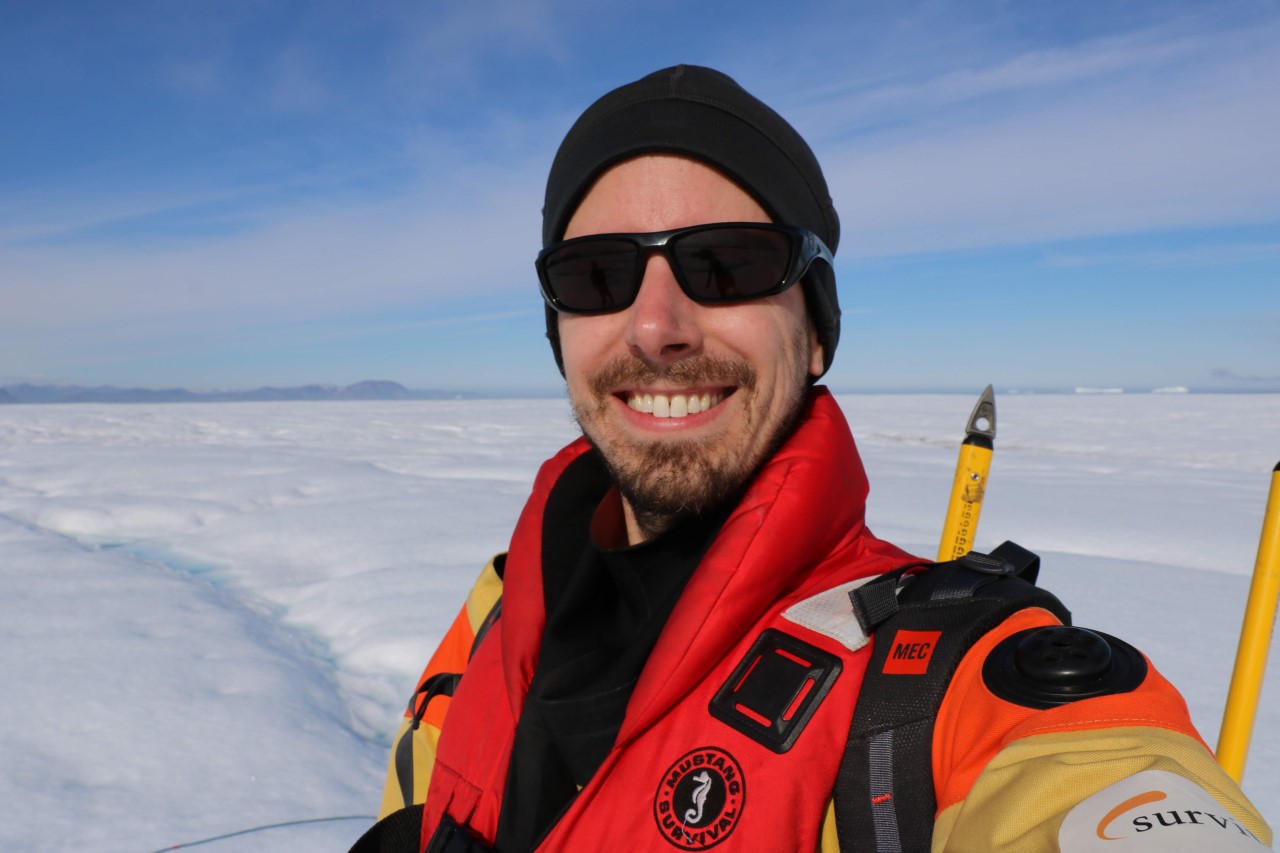
LOCATION:
Virtual presentation via Zoom.
TIME:
Thursday,
February 18, 11:45 AM
RSVP: Meeting will take place on Zoom. Please register
in
advance for this meeting.
PAST MEETINGS: Click here
for CMOS YouTube Channel containing recordings from
recent virtual meetings.
Upcoming CMOS Ottawa Centre Virtual Lunch Meeting - Thursday 21 January 2021
SPEAKER:
Konrad Gajewski, Department of
Geography, Environment & Geomatics, University of Ottawa
BIO: K Gajewski is a Professor in the Department of Geography, Environment and Geomatics at UOttawa, and also cross-appointed with the Ottawa-Carleton Geoscience Centre and the Ottawa-Carleton Institute of Biology. He is director of the Laboratory for Paleoclimatology and Climatology (LPC), which is the main centre for climate change research at UOttawa. His research program has combined field/lab-based development of new paleoenvironmental data and quantitative reconstructions, especially from northern Canada with the synthesis and analysis (“big-data”) of continental to global paleoenvironmental databases to map and study Holocene climate variations and their impacts on vegetation, freshwater systems and human populations. See : www.lpc.uottawa.ca
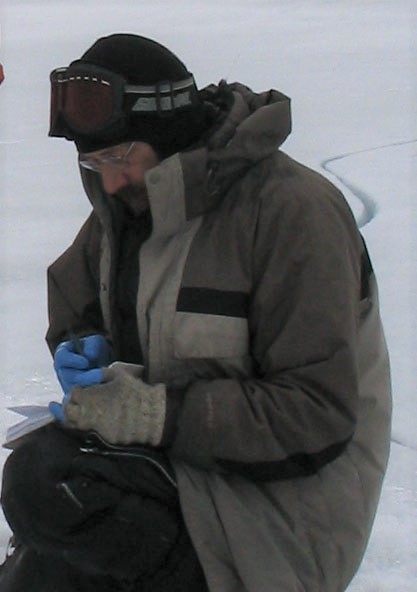
TITLE: Holocene climate variability of the North American Arctic and impacts on terrestrial ecosystems & human populations
ABSTRACT:
Evidence of Holocene climate variability of the Canadian
Arctic can be extracted from ice cores, but these do not reveal spatial
differences across the region. In recent years, a sufficient number of
lake sediment records have been accumulated from across the Canadian
Arctic and coastal
LOCATION:
Virtual presentation via Zoom.
TIME:
Thursday,
January 21, 11:45 AM
RSVP: Meeting will take place on Zoom. Please register
in advance for this meeting.
PAST MEETINGS: Click
here
for CMOS YouTube Channel containing recordings from
recent virtual meetings.
Click here
to see available video recordings or slides from recent meetings posted
in Ottawa Centre Archives.
NEXT MEETING: 18 February 2021, Student trio (U Ottawa): Abby Dalton on glacier changes on SE Ellesmere, which would connect to Andrew Hamilton (post-doc) talking about glacier-ocean interactions, and then to Adam Garbo (MSc) talking about his work on validating and improving iceberg drift models in the CAA.
SPEAKER: Derek Mueller, Water and Ice Research Lab, Geography and Environmental Studies, Carleton University
BIO: Derek Mueller is an Associate Professor in the Department of Geography and Environmental Studies and co-director of the Water and Ice Research Laboratory at Carleton University in Ottawa, Canada. His research examines indicators and impacts of climate change in the cryosphere as well as the consequences of a warming climate on cryospheric systems such as ice shelves, glaciers, sea and lake ice. Dr. Mueller has worked at the northernmost coast of Canada since 2001 and is an expert on Arctic ice shelves and epishelf lakes. For more on his research see: https://wirl.carleton.ca/ice/
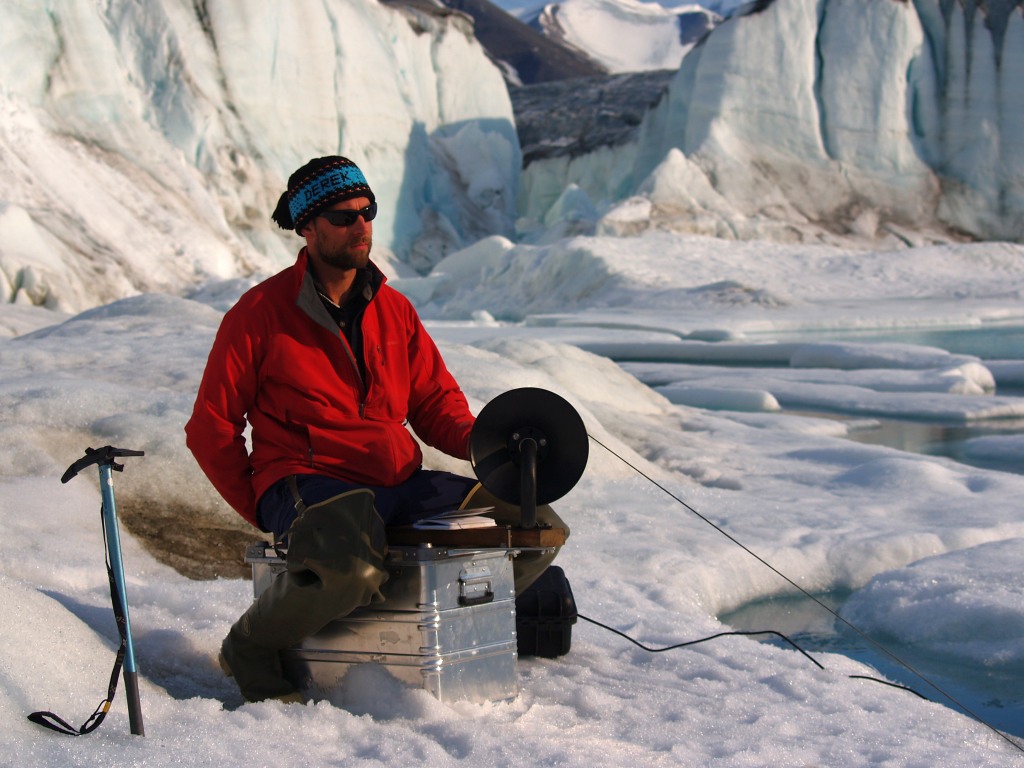
TITLE: Cryospheric and ecological changes along Canada's northernmost coast: The Milne Ice Shelf break-up of 2020
ABSTRACT: In late July 2020, a large rift formed across the Milne Ice Shelf and resulted in the calving of 43% of its surface area. The Milne Ice Shelf was the last remnant of the larger 'Ellesmere Ice Shelf' to undergo a major calving event. This ice shelf was thicker and better protected than others in the Canadian High Arctic and it dammed the mouth of Milne Fiord creating a freshwater lake to its landward side. This 'epishelf lake' has been monitored over time to reveal inter-annual and seasonal changes and hosts fresh and brackish water species directly on top of the Arctic Ocean. The ice shelf itself is a cryo-habitat for microbial communities that live on its surface while a community of benthic animals was recently discovered within the ice shelf. The fate of these cryo-environments is unknown following the events of last summer, but the trend in habitat loss along this coast is undeniable. The need to conserve this region and its vulnerable ice-dependent ecosystems is clear and efforts are underway to make a permanent marine protected area at these high latitudes. This conservation effort should be optimized by extending protection both east and west in addition to incorporating the terrestrial environment that is closely interconnected with the Arctic Ocean along this coast. However, global action to reduce greenhouse gas emissions must be part of the solution to mitigate future cryo-habitat loss due to environmental change.
LOCATION: Virtual presentation via Zoom.
TIME: Thursday, December 17, 11:45 AM
RSVP: Meeting will take place on Zoom. Please register in advance for this meeting.
PAST MEETINGS: Click here for CMOS YouTube Channel containing recordings from recent virtual meetings.
Click here to see available video recordings or slides from recent meetings posted in Ottawa Centre Archives.
NEXT MEETING: Konrad Gajewski, Department of Geography, Environment & Geomatics University of Ottawa: Holocene climate variability of the North American Arctic and impacts on terrestrial ecosystems & human populations, 21 January 2021
CMOS
/ CACOR
Collaborative Event - 1:30 pm Wednesday, November 18th, 2020
In light of our current situation, with COVID completely disrupting the ways of our orchestral world, I would like to come at the topic of Music and Climate from a slightly different angle and call it Orchestral Music and Social Change and to put forward this question: how can a symphonic orchestra, that is so heavily rooted in our cultural heritage, mostly performing repertoire and music from the past, be relevant and deal with current issues of today.
To answer this I would like to talk about how we at the NAC Orchestra decided to shift our focus entirely. How we are now using this time of disruption to explore what the future holds for our art form, both in terms of the music we perform, who we choose as our artistic partners and how we use the digital medium to reach our audience and expand the experience. We have already shown this in our first NACO Live concert, which featured works by two women composers, three composers of colour and two young Canadian soloists from BIPOC communities, with a logged in audience of 2000 people and an overwhelming positive response and praise.
Like COVID, the climate crisis is threatening to disturb our ways of living. The climate crisis has become a topic that artists are working with in their creations. It is almost like a new field within the arts. This is understandable as the arts function like our digestion system. First we need the science to bring us the facts and then the arts take over and use them to inspire their art, music and stories so that we can internalize the facts and understand on an emotional level. Not until this happens can we truly expect any real change. This is exactly why the arts, and artists are so important to our societies. This is also why it is my firm belief that scientists and artists should work much more closely together, particularly now, when we need to deliver the urgent message of change. We hope that the Ideas of North festival will become this meeting point of music and science and that it will help us digest and internalize what is actually happening, and hopefully help us in making the important change we need for the future of the planet. In my talk I will give some interesting examples of the power of music and arts to deliver this message.
BIO of Speaker
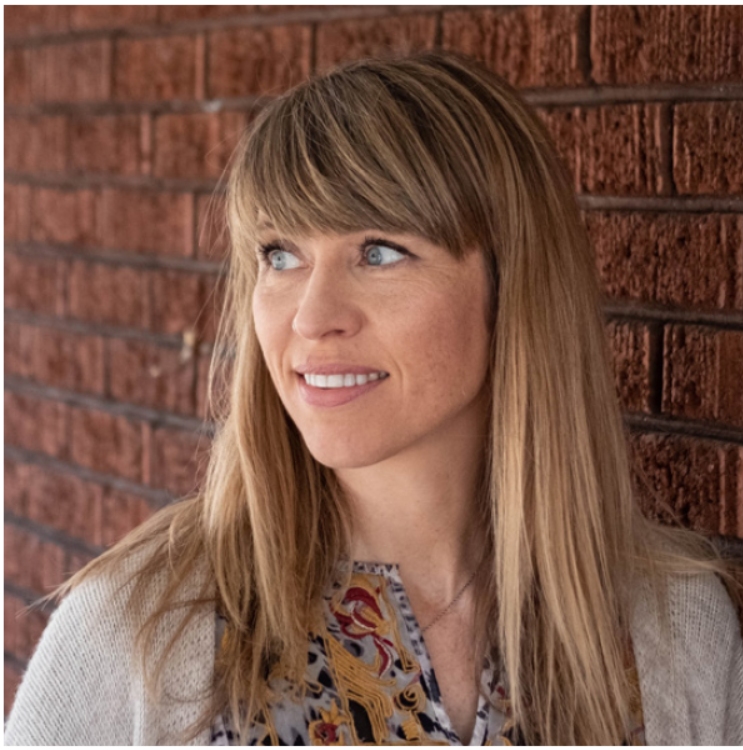
Before joining the NAC Orchestra Ms. Einarsdottir was at the forefront of the Iceland Symphony Orchestra for 12 years, first as the orchestra’s Orchestra Manager and then becoming the Managing Director in 2013. During her time as a manager she was responsible for meeting the orchestra’s overall artistic and financial goals and managed a successful financial turnaround with increased audience. Arna led the search process and signed a three-year contract with the world renowned conductor, Yan Pascal Tortelier as Chief Conductor of the orchestra in 2015.
Ms. Einarsdottir further strengthened ISO’s artistic team by creating an assistant conductor position, as well as a composer-in-residence, signing Daniel Bjarnason and Anna Thorvaldsdottir, two of Iceland’s most prominent composers. Under her leadership the Orchestra took part in the BBC Proms in 2014, performed as a part of Nordic Cool festival at the Kennedy Centre in 2013 and gave 12 sold out concerts with Vladimir Ashkenazy and soloist Nobuyuki Tuji in Japan 2018. In 2011, the orchestra moved into a new concert hall, Harpa, which has become one of Reykjavik’s landmarks and has more than two million visitors a year.
Before moving into management, Arna played second flute with the Iceland Symphony orchestra from 2000–2004 and had a successful career as a flutist, both in Iceland as well as in England. Arna holds a master’s degree in Cultural Management from Bifröst University in Iceland; a Soloist Performance Exam from Reykjavík Music College in Iceland; a Postgraduate Diploma from Royal Northern College of Music in Manchester, England; and a Professional Performance degree from Indiana University in Bloomington, Indiana. Arna has three children aged 28, 16 and 11 and is married to graphic designer Hilmar Þorsteinn Hilmarsson.
Arna.Einarsdottir@nac-cna.ca
CMOS Toronto and Ottawa Centre Webinar
SPEAKER:
David Phillips, Senior Climatologist, Environment and Climate Change
Canada
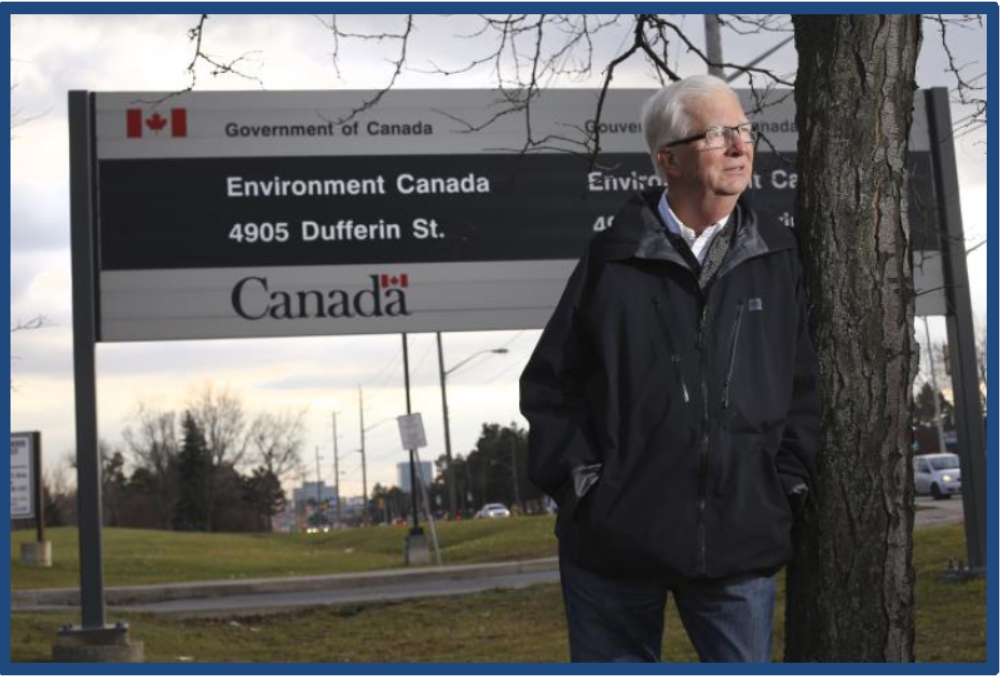
TITLE: Weather and Climate: Not what your grandparents knew!
ABSTRACT:
Urban floods, ice rains, winter heat
waves, interface wildfires, weather bombs, megadroughts - if you think
we've been cursed and clobbered a lot harder and a lot more often
recently, you are not imagining it. It used to be that our weather was
"normal" and dependable. Now, more and more Canadians are asking:
What's happening to our weather?
If our weather is becoming weirder and wilder are people responsible or
is it nature doing this to us? Or both? Maybe we are changing more than
the weather. What has become clear is that the Earth is warming, and
the number of weather-related disasters is on the rise. We can no
longer assume that yesterday's weather will apply tomorrow.
LOCATION
:
Virtual presentation via Zoom.
TIME:
November 17, 2020, 7:00 p.m.
RSVP :
Webinar will take place on Zoom. Please register
in advance for this meeting.
PAST MEETINGS: Click here
to see available video recordings or slides from recent meetings.
NEXT MEETING (1): Wednesday
November 18, 1:30 PM: Joint meeting with
CACOR, speaker Arna Einarsd
óttir, National Arts Centre, on Climate
change, music and culture (see below)
NEXT MEETING (2): Thursday, December 17,
11:45 AM, Derek Mueller, University of Carleton, Title: Cryospheric
and ecological changes along Canada's northernmost coast: The Milne Ice
Shelf break-up of 2020
Upcoming Virtual Luncheon Meeting - Thursday October 22, 2020
SPEAKER: Dr. Jean Holloway, postdoctorate fellow, University of Ottawa and Chair of APECS Canada (Association of Polar Early Career Scientists)
TITLE: Impacts of wildfire on permafrost in the boreal forest of northwestern Canada
ABSTRACT: Climate change is causing increases in the frequency, severity, and extent of fires, which is expected to change how permafrost responds and recovers after disturbance. There is a pressing need to better understand how certain variables affected post-fire permafrost dynamics in a changing climate. This was addressed through in-situ measurements and analysis of permafrost conditions following fires occurring over the last half century along a 650 km latitudinal transect spanning the discontinuous zones, from isolated patches to extensive discontinuous permafrost. Overall, the findings suggested that there has been significant permafrost degradation, due to both climate warming in the region and fire, especially at sites with thin organic layers, low gravimetric moisture content, and coarse-grained soils. Degradation also occurred at high ice-content sites, where ground subsidence and thermokarst develop, particularly in severely burned areas. However, permafrost persisted at sites where black spruce canopies with organic layers generally 40 cm thick overlie fine-grained sediments. Post-fire permafrost change occurred at sites which burned in the last 10 years, but over the long-term, frozen ground appeared resilient to fire, with characteristics like active layer thickness returning to pre-fire levels. However, this may change in the future as the climate continues to warm and the fire regime shifts. This research underlines the importance of monitoring and modelling a variety of landscape types to establish post-fire permafrost impacts, and more specifically the effects of heterogeneity of drainage conditions, substrate, and organic layer thicknesses on the fate of permafrost in the boreal forest.
SPEAKER BIO:

Jean Holloway is a
Postdoctoral Fellow in the Environment, Society, and Policy group at
the University of Ottawa, and her research interests are broadly
focused on determining how climate change is impacting the cryosphere
in the Canadian Arctic and Subarctic. She recently completed her Ph. D.
at the University of Ottawa, identifying the impacts of forest fire on
permafrost in the discontinuous zones of northwestern, Canada. Prior to
her work at the University of Ottawa, she completed a M. Sc. at Queen's
University, where she mapped and identified permafrost thaw features,
and fell in love with the North. She is the current Chair of the
Canadian National Committee for the Association of Polar Early Career
Scientists, and is very passionate about science communication and
outreach. For her postdoc, Jean will be shifting fields and looking at
the impacts of sea ice decline and subsequent increases in Arctic
shipping.
PL
ACE :
Virtual presentation via Zoom.
COST : free
TIME
:
Thursday
October 22 . Sign in starts at 11:45 a.m.; presentation will
start at 12:00 pm
.
PARKING : N/A
RSVP : If you
plan to join the virtual meeting, please
register using the Zoom link sent by email. If you did not get an email, or have any
trouble with the Zoom registration system, please contact
jonesb@ncf.ca
for more
information.
SPEAKER: Chris Derksen Research Scientist / Chercheur scientifique Climate Processes Section / Section des processus climatiques Climate Research Division / Division de la Recherche climatique Science and Technology Branch / Direction générale des sciences et de la technologie, Environment and Climate Change Canada (ECCC).
TITLE: Key Findings from Canada's Changing Climate Report
ABSTRACT: Canada's Changing Climate Report was released on April 1st, 2019. Led by Environment and Climate Change Canada, this is the first report to be released through the national assessment report series: Canada in a Changing Climate: Advancing our Knowledge for Action. The report provides comprehensive information on how and why Canada's climate has changed, and what changes are projected for the future. This talk will present results from the report on changes across Canada in temperature, precipitation, snow, ice and permafrost, freshwater availability as well as in Canada's three ocean's. Changes in Canada's climate will be considered within the broader context of global-scale changes, with a focus on recent results from the IPCC Special Report on The Ocean and Cryosphere in a Changing Climate.
SPEAKER BIO:

Chris Derksen is a research scientist with the Climate Research Division of Environment Canada, and holds an adjunct faculty position with the Department of Geography and Environmental Management at University of Waterloo. His research activities focus on the use of satellite derived datasets and climate models to identify interactions between the climate system and the cryosphere. Over the past 25 years, Chris has participated in numerous field campaigns across the Canadian Arctic, measuring snow and sea ice to validate satellite data and models. He is the science lead for a new satellite radar mission under development with the Canadian Space Agency, and was a lead author of the International Panel on Climate Change (IPCC) Special Report on Oceans and Cryosphere in a Changing Climate.
PLACE:
Virtual presentation via Zoom.
COST: free
TIME:
Thursday September 24th. Sign in
starts at 11:30 AM; chat with friends 11:30 to noon; presentation will
start at 12:00 noon
PARKING: N/A
RSVP: If you
plan to join the virtual meeting you must send a confirmation
to
jonesb@ncf.ca in order to receive
the Zoom credentials.
Upcoming Luncheon Meeting - Wednesday 19 February 2020
SPEAKER: Dr. Geneviève
Béchard, Director General - Hydrographer General of Canada,
Canadian Hydrographic Service
TITLE: CHS: Moving to Digital Operations
ABSTRACT: CHS:
Moving to Digital Operations The Canadian Hydrographic Service (CHS) is
Canada's agency for charting Canadian waters. Canada has the longest
coastline of any country in the world, with more than a third of its
territory under water. As a maritime nation, global maritime transport
traffic is significant. Hydrography supports safe navigation and
shipping through the production of nautical charts and other
publications including water levels. With opportunities provided by
emerging technologies and the move to e-navigation and autonomous
shipping, hydrography is becoming digital. This presentation will
provide an overview of international developments and how CHS is
preparing to make the move to a data-centric organization, moving from
static to dynamic products and services.
SPEAKER BIO:
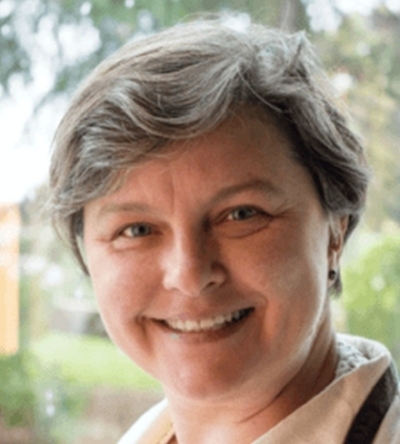
Dr. Genevieve Béchard was appointed Hydrographer General of
Canada and Director General for the Canadian Hydrographic Service (CHS)
with Fisheries and Oceans Canada in February 2018. She has joined CHS
at an exciting time when there are profound changes in the world of
hydrography as it goes digital. She previously held executive positions
with the Canada Centre for Remote Sensing, the Geological Survey of
Canada and the Meteorological Service of Canada. Dr. Béchard
leads Canada's representation at the International Hydrographic
Organization (IHO), co-chairs the IHO United States - Canada
Hydrographic Commission and is the current Vice-Chair of the IHO Arctic
Regional Hydrographic Commission. Dr. Béchard holds a Ph.D in
microbiology from Carleton University, Ottawa, Canada.
PLACE:
Rideau Canal Junior Ranks
Mess, 4 Queen Elizabeth Drive, Ottawa. Side entrance, Harmony
Room, 4th floor (elevator available)
COST:
$25 non
members; $20 members & their spouses; students $10
TIME:
12:00 noon, Wednesday
February 19, 2020
PARKING: On street parking in the vicinity, or at
Ottawa City Hall
RSVP: Please confirm your attendance
no later than Friday 14 February by using this Doodle link.  New
registration and pre-payment systems are in effect. Payment for
your lunch should now be done by Interac e-Transfer using
the following email address:
New
registration and pre-payment systems are in effect. Payment for
your lunch should now be done by Interac e-Transfer using
the following email address:
cmosottawa@gmail.com
. If you are unable to use
e-Transfer you are asked to contact our Treasurer, Yvon Bernier at ycbernier@videotron.ca
to make
alternate arrangements. 
Alternatively, please contact any of the following to register if you
have problems with Doodle or Interac:
Dawn Conway 613-724-2954; email: DMConway1@gmail.com
Ann McMillan
613-831-5851; email:
mcmillan@storm.ca
Paul Pestieau 613-990-6855;
email: Paul.Pestieau@canada.ca
Bob Jones 613-820-6336;
email:
jonesb@ncf.ca
Daria Bradbury 613-949-9119; email: Daria.Bradbury@dfo-mpo.gc.ca
Hoy Chow 819-938-4429; email:
hoy.chow@canada.ca
Tom Zagon: 613-992-8431;
email: tom.zagon@canada.ca
CANCELLATION: If
you need to cancel, please change your Doodle information as soon as
possible or let a contact person know so we can cancel your food order.
Upcoming Luncheon Meeting - Wednesday 15 January 2020
SPEAKER:
Felix Vogel, Research Scientist, ECCC
TITLE: Subnational Monitoring of Atmospheric Greenhouse Gases in Canada and the Integrated Global Greenhouse Gas Information System (IG3IS) of WMO.
ABSTRACT: The
Lima-Paris Action Agenda of the Paris Agreement has formalized a role
for sub-national entities such as cities (large urban source regions)
as leaders in greenhouse gas mitigation and climate adaptation.
Currently, over half of the world's population lives in metropolitan
areas globally and urban regions also account for 82% of Canada's
population in 2016 [World Bank]. Future population growth is also
predicted to occur mostly in these urban centers, both globally and
domestically. Therefore, the Integrated Global Greenhouse Gas
Information System (IG3IS) of WMO/UNEP has identified urban GHG
emission as a core action area where scientific information can be
expected to respond to stakeholder needs in the near future. IG3IS
activities aim to help create the framework to provide diagnosis of
urban emissions at scales relevant to urban decision making and enable
identification of low-carbon or carbon mitigation opportunities. After
an introduction on IG3IS, results from research groups on data-driven,
observational and (inverse) modelling techniques for city-scale GHG
studies are presented, with a specific focus of previous work of the
Climate Research Division of ECCC and its collaborators in the GTA. The
strategy of how the GTA testbed can be efficiently completed to help
support local decision makers and how ECCC can provide support to the
wider IG3IS community is presented.
SPEAKER BIO: Research Scientist Climate
Research Division Environment and Climate Change Canada
RESEARCH POSITIONS
Research Scientist - Environment and Climate Change Canada, Climate
Research Division Climate Chemistry Measurements and Research, Toronto,
Ontario, Canada, 2017-ongoing. Understanding greenhouse gas
fluxes at policy-relevant timescales in urban and industrial areas
combining atmospheric observations and modelling.
Researcher (CDD) - Laboratoire des Sciences du Climat et de
L'Environnement (LSCE), Université de Versailles
Saint-Quentin-En-Yvelines (UVSQ), Institut Pierre-Simon-Laplace (IPSL),
Université Paris-Saclay, France, 2013-2017. Greenhouse gas
monitoring at city-scale (Paris and Recife, Brazil) and industrial
sites using (lower-cost medium precision) in-situ sensors.
NSERC Visiting Fellow - Environment Canada, Climate Chemistry
Measurements and Research, Toronto, Ontario, Canada, 2010-2013.
Using carbon isotopes, other proxies and models to track greenhouse gas
emissions in the Greater Toronto Area, Canada.
PLACE:
Rideau Canal Junior Ranks
Mess, 4 Queen Elizabeth Drive, Ottawa. Side entrance, Harmony
Room, 4th floor (elevator available)
COST:
$25 non
members; $20 members & their spouses; students $10
TIME:
12:00 noon, Wednesday
January 15, 2020
PARKING: On street parking in the vicinity, or at
Ottawa City Hall
RSVP: Please confirm your attendance
no later than Friday 10 January by using this Doodle link.  New
registration and pre-payment systems are in effect. Payment for
your lunch should now be done by Interac e-Transfer using
the following email address:
New
registration and pre-payment systems are in effect. Payment for
your lunch should now be done by Interac e-Transfer using
the following email address:
cmosottawa@gmail.com
. If you are unable to use
e-Transfer you are asked to contact our Treasurer, Yvon Bernier at ycbernier@videotron.ca
to make
alternate arrangements. 
Alternatively, please contact any of the following to register if you
have problems with Doodle or Interac:
Dawn Conway 613-724-2954; email: DMConway1@gmail.com
Ann McMillan
613-831-5851; email:
mcmillan@storm.ca
Paul Pestieau 613-990-6855;
email: Paul.Pestieau@canada.ca
Bob Jones 613-820-6336;
email:
jonesb@ncf.ca
Daria Bradbury 613-949-9119; email: Daria.Bradbury@dfo-mpo.gc.ca
Hoy Chow 819-938-4429; email:
hoy.chow@canada.ca
Tom Zagon: 613-992-8431;
email: tom.zagon@canada.ca
CANCELLATION: If
you need to cancel, please change your Doodle information as soon as
possible or let a contact person know so we can cancel your food order.
Upcoming Luncheon Meeting - Wednesday 18 December 2019
SPEAKER:
Nancy
Hamzawi, Assistant Deputy
Minister, Science and Technology, Environment and Climate Change Canada
TITLE: Canada's Changing Climate, Moving Ahead with Partnerships in Science
ABSTRACT: This
presentation will highlight key findings of Canada’s Changing Climate
Report and provide a broad overview of Canada’s agenda on climate
change action. The presentation will outline the importance of aligning
science with policy and action. In doing so, Environment and Climate
Change Canada is developing a National Climate Change Science and
Knowledge Plan. The objectives of the Plan, including the critical role
of partnerships, will be discussed.
SPEAKER BIO:
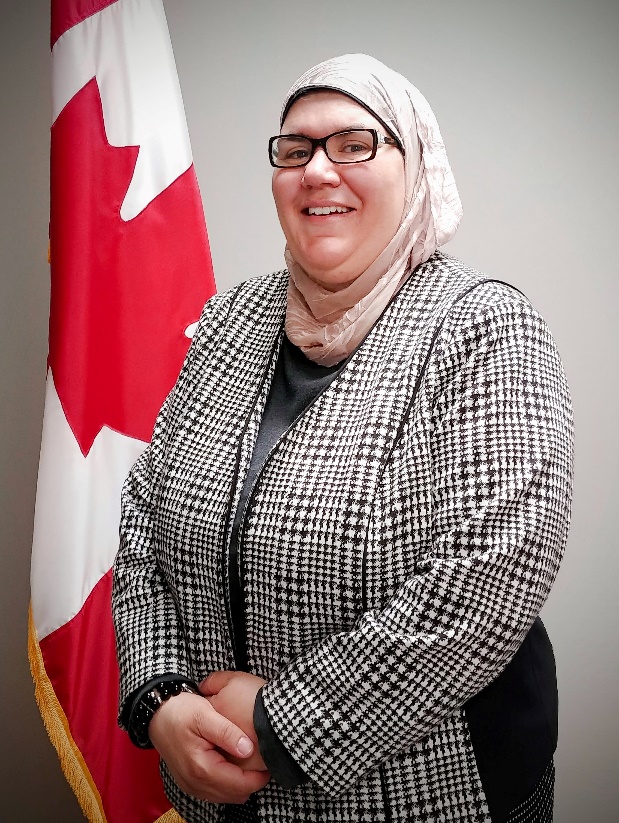
Nancy Hamzawi was appointed Assistant Deputy
Minister, Science and Technology Branch at Environment and Climate
Change Canada (ECCC) on October 1, 2018. Previously, she was the
Director General of the G7 Task Team at ECCC, supporting Canada's
Presidency of the G7 throughout 2018.
A chemical engineer by training, Nancy has over 20 years of experience
as a public servant in the federal public service. She has held
positions at the National Research Council of Canada, Agriculture and
Agri-Food Canada, and the former Industry Canada, Department of Foreign
Affairs and International Trade and the Canadian International
Development Agency.
Nancy's positions have varied and included policy development, industry
development, audit, evaluation and corporate affairs. Nancy holds
Masters and Bachelors degrees in Chemical Engineering, as well as a
Bachelor's degree in Biochemistry from the University of Ottawa.
PLACE:
Rideau Canal Junior Ranks
Mess, 4 Queen Elizabeth Drive, Ottawa. Side entrance, Harmony
Room, 4th floor (elevator available)
COST:
$25 non
members; $20 members & their spouses; students $10
TIME:
12:00 noon, Wednesday
December 18, 2019
PARKING: On street parking in the vicinity, or at
Ottawa City Hall
RSVP: Please confirm your attendance
no later than Friday 13 December by using this
Doodle link.  New
registration and pre-payment systems are in effect. Payment for
your lunch should now be done by Interac e-Transfer using
the following email address:
New
registration and pre-payment systems are in effect. Payment for
your lunch should now be done by Interac e-Transfer using
the following email address:
cmosottawa@gmail.com
. If you are unable to use
e-Transfer you are asked to contact our Treasurer, Yvon Bernier at ycbernier@videotron.ca
to make
alternate arrangements. 
Alternatively, please contact any of the following to register if you
have problems with Doodle or Interac:
Dawn Conway 613-724-2954; email: DMConway1@gmail.com
Ann McMillan
613-831-5851; email:
mcmillan@storm.ca
Paul Pestieau 613-990-6855;
email: Paul.Pestieau@canada.ca
Bob Jones 613-820-6336;
email:
jonesb@ncf.ca
Daria Bradbury 613-949-9119; email: Daria.Bradbury@dfo-mpo.gc.ca
Hoy Chow 819-938-4429; email:
hoy.chow@canada.ca
Tom Zagon: 613-992-8431;
email: tom.zagon@canada.ca
CANCELLATION: If
you need to cancel, please change your Doodle information as soon as
possible or let a contact person know so we can cancel your food order.
NEXT MEETING: Wednesday 15 January, speaker Felix Vogel, Research Scientist, ECCC
Upcoming Luncheon Meeting - Wednesday 20 November 2019
SPEAKER:
Raymond Desjardins, Research Scientist with the Agrienvironment
Division of the Ottawa Research and Development Centre of Agriculture
and Agri-Food Canada, Ottawa
TITLE: Agricultural Meteorology Then and Now:
Paradigm Shift to Sustainable Science
ABSTRACT: The
development and evolution of Agricultural Meteorology in Canada in the
50s, 60s and 70s will be briefly reviewed and examples of some of the
research done by some of the pioneers will be presented. Like in many
areas of research, in the 80s and 90s, the research approach by small
groups of agricultural meteorologists was eventually replaced by a
multidisciplinary research approach. Examples from some of the large
scale research projects that ensued, as well as some of the important
findings, will be presented. These studies gave rise to a better
understanding of the role of the major terrestrial ecosystems in the
world on climate as well as the role of climate on these ecosystems.
The 2000s and 2010s brought a further shift away from Agricultural
Meteorology to research on Climate Change with emphasis on
Environmental Sustainability. I will present the findings by our
research team of the estimates of the carbon footprint of agricultural
products in Canada. Hopefully, this information will help producers and
consumers make decisions that minimize the impact of the agriculture
sector on climate change.
SPEAKER BIO:
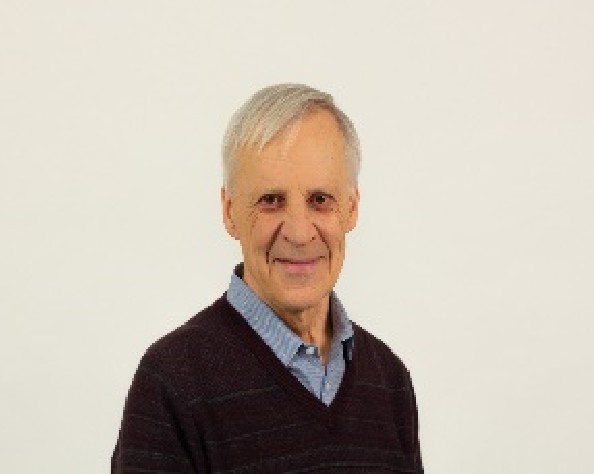
Raymond Desjardins, C. M., FRSC, PhD., is
a graduate from the Universities of Ottawa, Toronto and Cornell. He has
been Canada's representative on the Commission of Agricultural
Meteorology of WMO for the last 30 years. As micrometeorologist he has
developed numerous techniques to measure mass and energy exchange using
tower and aircraft-based systems as well as techniques to estimate
greenhouse gas emissions for a wide range of ecosystems. Dr.
Desjardins' most recent research, which is focused on quantifying the
carbon footprint of agricultural products, is helping Canadian farmers
compete on the international markets. He co-authored books such as:
"Health of our Air" and "Better Farming Better Air" which shed light on
how efficient farming practices improve air quality and reduce
greenhouse gas emissions.
PLACE:
Rideau Canal Junior Ranks
Mess, 4 Queen Elizabeth Drive, Ottawa. Side entrance, Harmony
Room, 4th floor (elevator available)
COST:
$25 non
members; $20 members & their spouses; students $10
TIME:
12:00 noon, Wednesday
November 20, 2019
PARKING: On street parking in the vicinity, or at
Ottawa City Hall
RSVP: Please confirm your attendance
no later than Friday 15 November by using this Doodle
link.  New
registration and pre-payment systems are in effect. Payment for
your lunch should now be done by Interac e-Transfer using
the following email address:
New
registration and pre-payment systems are in effect. Payment for
your lunch should now be done by Interac e-Transfer using
the following email address:
cmosottawa@gmail.com
. If you are unable to use
e-Transfer you are asked to contact our Treasurer, Yvon Bernier at ycbernier@videotron.ca
to make
alternate arrangements. 
Alternatively, please contact any of the following to register if you
have problems with Doodle or Interac:
Dawn Conway 613-724-2954; email: DMConway1@gmail.com
Ann McMillan
613-831-5851; email:
mcmillan@storm.ca
Paul Pestieau 613-990-6855;
email: Paul.Pestieau@canada.ca
Bob Jones 613-820-6336;
email:
jonesb@ncf.ca
Daria Bradbury 613-949-9119; email: Daria.Bradbury@dfo-mpo.gc.ca
Hoy Chow 819-938-4429; email:
hoy.chow@canada.ca
Tom Zagon: 613-992-8431;
email: tom.zagon@canada.ca
Upcoming Luncheon Meeting - Thursday 17 October 2019
SPEAKER: Stéphane Laroche, Research Scientist / Meteorological Research Division, Environment and Climate Change Canada
TITLE: Impact of the Various Observations
Assimilated into the ECCC Global Deterministic Prediction System
ABSTRACT: The Global
Deterministic Prediction System (GDPS) plays a central role in
Environment and Climate Change Canada (ECCC) for the production of
operational weather forecasts. This system provides medium-range
forecasts and lateral boundary conditions to the Regional Deterministic
Prediction System (RDPS) for short-range forecasts. The GDPS also
supplies initial conditions for experimental prediction systems such as
the Canadian Arctic Prediction System (CAPS), which provides km-scale
forecasts over the Arctic for the Year of Polar Prediction (YOPP)
campaigns. Both the GDPS and RDPS use a 4D-EnVar data assimilation
system to produce the initial conditions. Near 13 million observations
from space-based and terrestrial networks are assimilated daily. 88% of
these observations are from 17 satellites. The remaining observations
are from terrestrial networks such aircraft, radiosondes, surface
stations, ships and buoys. The impact of satellite and terrestrial
observations on short to medium-range forecasts is not homogeneous over
the globe, as revealed by recent Observing System Experiments (OSEs) as
well as with Forecast Sensitivity to Observation Impact (FSOI) tools
use for assessing the relative importance of observations on
short-range forecast skill. These tools are very useful for providing
objective guidance on future implementation and rationalization of
meteorological observing networks.
In this presentation, I will give an overview of the GDPS and present
the observation impact studies recently conducted at ECCC and ECMWF, in
particular the OSEs carried out over the Arctic regions for YOPP.
SPEAKER BIO:
PLACE :
Rideau Canal Junior Ranks
Mess, 4 Queen Elizabeth Drive, Ottawa. Side entrance, Harmony
Room, 4th floor (elevator available)
COST
: $25 non members; $20 members & their
spouses; students $10
TIME
: 12:00
noon, Thursday October 17, 2019
PARKING : On street parking in the vicinity, or at
Ottawa City Hall
RSVP : Please confirm your attendance
no later than Monday 14 October by using this
Doodle
link.  New
registration and pre-payment systems are in effect. Payment for
your lunch should now be done by Interac e-Transfer using
the following email address:
New
registration and pre-payment systems are in effect. Payment for
your lunch should now be done by Interac e-Transfer using
the following email address:
cmosottawa@gmail.com
. If you are unable to use
e-Transfer you are asked to contact our Treasurer, Yvon Bernier at ycbernier@videotron.ca
to make
alternate arrangements. 
Alternatively, please contact any of the following to register if you
have problems with Doodle or Interac:
Dawn Conway 613-724-2954; email: DMConway1@gmail.com
Ann McMillan
613-831-5851; email:
mcmillan@storm.ca
Paul Pestieau 613-990-6855;
email: Paul.Pestieau@canada.ca
Bob Jones 613-820-6336;
email:
jonesb@ncf.ca
Daria Bradbury 613-949-9119; email: Daria.Bradbury@dfo-mpo.gc.ca
Hoy Chow 819-938-4429; email:
hoy.chow@canada.ca
Tom Zagon: 613-992-8431;
email: tom.zagon@canada.ca
CANCELLATION: If
you need to cancel, please change your Doodle information as soon as
possible or let a contact person know so we can cancel your food order.
Upcoming Luncheon Meeting - Thursday 19 September 2019
SPEAKER: Elisabeth Gilmore, Associate Professor of Environmental Science and Policy, Clark University, Worcester, MA.
TITLE:
Advances in the Estimation of Economic
Benefits of Climate Action
ABSTRACT: Estimates of the economic benefits of
avoiding climate impacts by reducing greenhouse gases (GHGs) are
essential for identifying opportunities to mitigate and adapt to
climate change. Here, I review approaches for monetizing the physical
damages from climate change and how these values are employed for sound
policy analysis. I then focus on two examples of advances in modeling
these benefits: First, I discuss the co-benefits of GHG mitigation for
the improvement of air quality and reductions in human health effects,
especially premature deaths. Second, I examine the interactions of
sea-level rise and human displacement and the implications for managing
retreat from the coasts. These analyses show that taking action on
climate change will benefit Canadians and people around the world by
avoiding economic damages and saving lives.
SPEAKER
BIO:
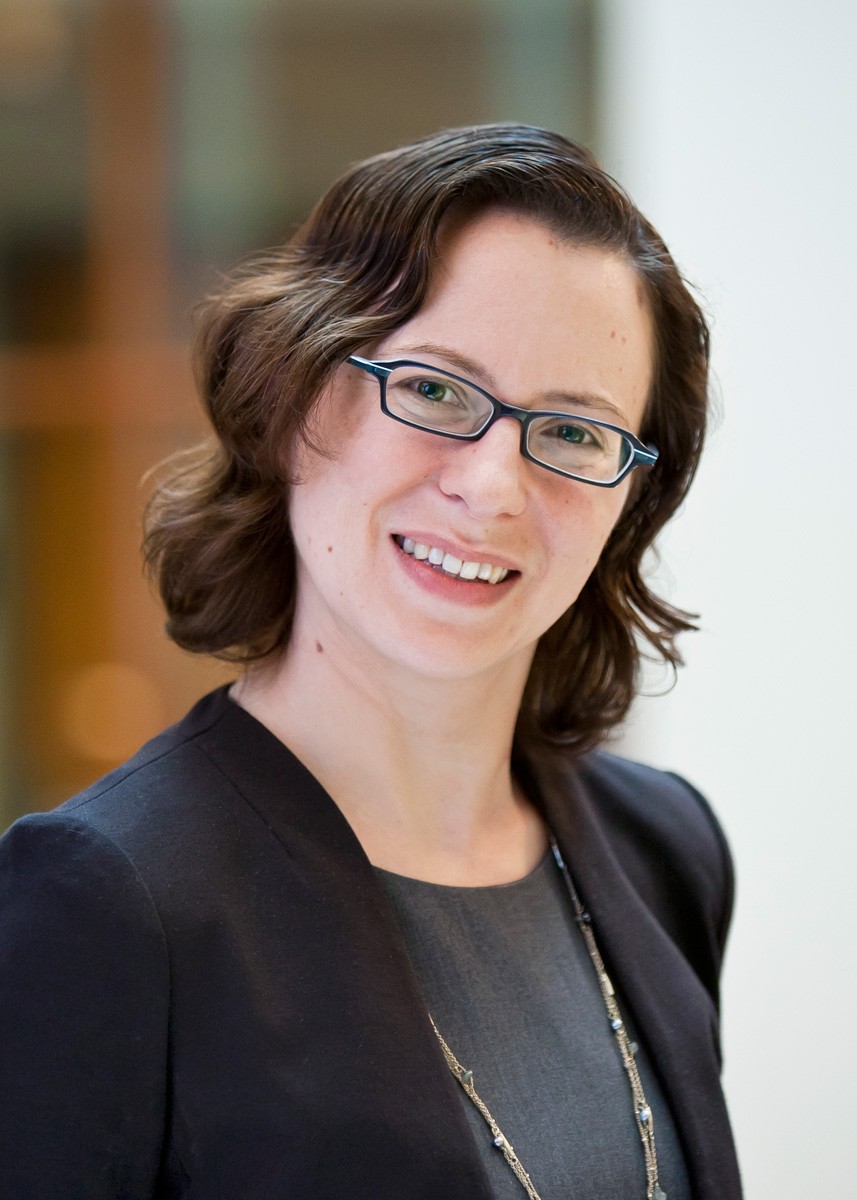
Dr. Elisabeth Gilmore is an Associate
Professor of Environmental Science and Policy in the Department of
International Development, Community and Environment at Clark
University in Worcester, MA. For 2019, she is
serving as the Visiting Scholar to the Economic Analysis Directorate
at Environment and Climate Change Canada. She is also a Lead Author for
the 6th Assessment Report of the Intergovernmental Panel on
Climate Change (IPCC) and holds a Senior Associate Researcher position
at the Peace Research Institute (PRIO) in Oslo, Norway. Dr.
Gilmore focuses on developing methods and analysis to translate
research to policy, including the use of integrated assessment models
for evaluating energy and climate policies; economic, social and
security impacts of climate change and climate policies; and
benefit-cost analysis of air quality and climate policies for energy
and transportation systems in developed and developing countries.
Elisabeth received her Bachelor and Master degrees in Chemical and
Environmental Engineering from the University of Toronto. She
also holds a PhD in Public Policy and Engineering and a PhD in Chemical
Engineering from Carnegie Mellon University.
PLACE:
Rideau Canal Junior Ranks
Mess, 4 Queen Elizabeth Drive, Ottawa. Side entrance, Harmony
Room, 4th floor (elevator available)
COST:
$25 non
members; $20 members & their spouses; students $10
TIME:
12:00 noon, Thursday
September 19, 2019
PARKING: On street parking in the vicinity, or at
Ottawa City Hall
RSVP: Please confirm your attendance
no later than Friday 13 September by using this Doodle link.  New
registration and pre-payment systems are in effect. Payment for
your lunch should now be done by Interac e-Transfer using the
following email address:
New
registration and pre-payment systems are in effect. Payment for
your lunch should now be done by Interac e-Transfer using the
following email address:
cmosottawa@gmail.com. If you are unable to use e-Transfer you
are asked to contact our Treasurer, Yvon Bernier at ycbernier@videotron.ca
to make alternate arrangements.
Alternatively, please contact any of the following to register if you
have problems with Doodle or Interac:
Dawn Conway 613-724-2954; email: DMConway1@gmail.com
Ann McMillan
613-831-5851; email:
mcmillan@storm.ca
Paul Pestieau 613-990-6855;
email: Paul.Pestieau@canada.ca
Bob Jones 613-820-6336;
email:
jonesb@ncf.ca
Daria Bradbury 613-949-9119; email: Daria.Bradbury@dfo-mpo.gc.ca
Hoy Chow 819-938-4429; email:
hoy.chow@canada.ca
Tom Zagon: 613-992-8431;
email: tom.zagon@canada.ca
CANCELLATION: If
you need to cancel, please change your Doodle information as soon as
possible or let a contact person know so we can cancel your food order.
SPEAKER: Laxmi Sushama, CMOS Eastern Tour Speaker
TITLE: Climate-Engineering Dialogue in the Context of Arctic Engineering Systems
ABSTRACT: The Canadian Network for Regional Climate and Weather Processes focused on quantifying and reducing uncertainties in climate projections and weather predictions for Canada's northern regions. A number of land-related modules were improved and/or implemented in the Canadian regional climate models as part of this Network, which has led to better simulations for the region and improved understanding of processes and feedbacks.
However, the climate model simulations available are still too coarse to provide information at the spatial resolution required for many engineering applications. Changing land dynamics and properties, particularly related to permafrost degradation, and extreme events can have significant impacts on both surface and subsurface infrastructure. Adapting to permafrost degradation will require remedial measures to be applied to existing infrastructure and new approaches in designing and building new infrastructure.
This talk will look at some of the engineering-relevant aspects of weather and climate, including extremes, for the Arctic and will discuss impacts and adaptation strategies and framework for selected engineering operations and infrastructure systems. Due to the rapid warming projected in Arctic regions, it is very likely that several tipping points will be crossed, some of which might pose important risks to infrastructure. Specialized analyses of climate model outputs from this perspective to estimate important thresholds for selected engineering systems will also be presented.
SPEAKER BIO:
Laxmi Sushama is Professor in the Department of Civil Engineering and Trottier Chair in Sustainability in Engineering and Design at McGill University. She has held a Tier II Canada Research Chair in Regional Climate Modeling, leveraging her research expertise in engineering hydrology, water resources engineering, climate science and regional earth system modelling. By integrating high-latitude land-atmosphere processes, feedbacks and interactions into climate models, her research strongly influenced regional climate modelling and its applications for cold regions. Her current research also focuses on climate-sustainability nexus with a special emphasis on urban environments, climate resilience of infrastructure and sustainability in engineering design. She has also led major Networks, including the most recent NSERC-funded Canadian Network for Regional Climate and Weather Processes.
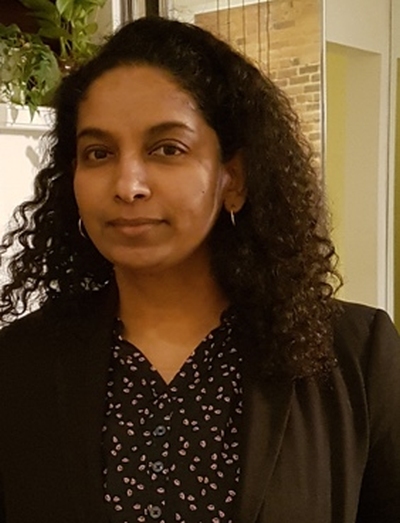
PLACE: Rideau Canal Junior Ranks Mess, 4 Queen Elizabeth Drive, Ottawa. Side entrance, Harmony Room, 4th floor (elevator available)
COST: $25 non members; $20 members & their spouses; students $10
TIME: 12:00 noon, Wednesday 22 May 2019
PARKING: On street parking in the vicinity, or at Ottawa City Hall
RSVP: Please confirm your attendance no later than Friday 17 May by using this Doodle link. Non members are asked to click the above Subscribe link so that we may record their email addresses for this meeting only.
Alternatively, please contact any of the following to register if you have problems with Doodle:
Dawn Conway 613-724-2954; email: DMConway1@gmail.com Ann McMillan 613-831-5851; email: mcmillan@storm.ca Paul Pestieau 613-990-6855; email: Paul.Pestieau@canada.ca Bob Jones 613-820-6336; email: jonesb@ncf.ca Daria Bradbury 613-949-9119; email: Daria.Bradbury@dfo-mpo.gc.ca Hoy Chow 819-938-4429; email: hoy.chow@canada.ca Tom Zagon: 613-992-8431; email: tom.zagon@canada.ca
CANCELLATION: If you need to cancel, please change your Doodle information as soon as possible or let a contact person know so we can cancel your food order.
NEXT MEETING: Thursday 19 September 2019, details to be announced
Upcoming Luncheon Meeting - Wednesday 17 April 2019 (joint meeting with CACOR)
SPEAKER: Deirdre Laframboise
TITLE: Green Municipal Fund Driving Innovative Sustainability Solutions for Municipalities (joint meeting with CACOR)
ABSTRACT: Since its inception in 2000 the Green Municipal Fund
(GMF) - the Federation of Canadian Municipalities' sustainability focused endowment fund - has deployed over $900 million in financing to over 1,200 municipal sustainability projects.
Today, the Fund preserves its capital at around $700M and distributes these through sustainability plans, feasibility studies, pilot projects and capital project loans. These initiatives have enabled 2.5Mt CO2e (CO2 equivalent) of greenhouse gas emission reductions. GMF funds in five sectors including: Energy, Transportation, Water, Waste and Land Use and focuses on a triple bottom line criteria framework to guide the funding decisions staff make via a comprehensive review process.
This presentation will provide an overview of the challenges Canadian municipalities face in addressing sustainability and related issues and focus on the solutions GMF and it's sustainability and climate change programs address via capacity building and funding support. It will also examine GMF's 5 Year Strategic Plan (2018-2023) and provide an overview of the programs and funding streams that support this ambitious Plan.
SPEAKER BIO: Deirdre Laframboise BES, MES
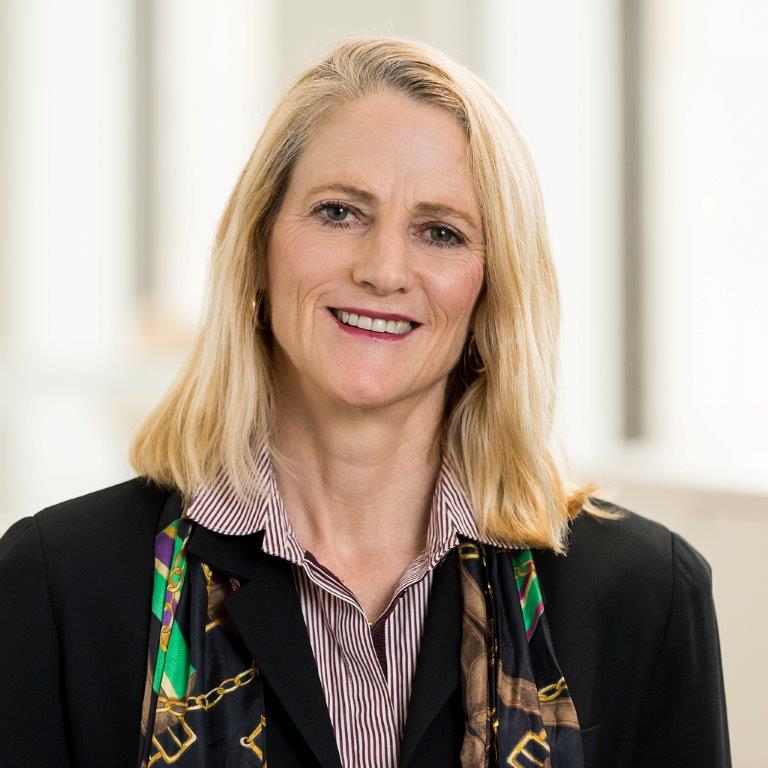
o 1984 - 1988 National Equestrian Team / Équipe nationale équestre (Concours complet). Qualified for 1988 Olympics (Seoul) / Qualifié pour les Jeux Olympiques
o 2001 - 2012 Clean Air Champions/Champions de l'air pur; Co- founder/Fondatrice & Executive Director / Directrice exécutif (2004-2012)
o 2013-2014 Federal Government / Gouvernement federal Air Quality Regulation (Environment / Environnement Canada) Aquatic Invasive Species / Espèces aquatiques envahissantes règlement (Ministère des Pêches et des Océans)
o 2014 - 2017 Canadian Climate Forum / Forum canadien du climat Executive Director / Directrice exécutif
o 2017 - 2018 Canadian Water Resources Association / Association canadienne des ressources hydriques - Executive Director / Directrice executive
o 2019 Senior Manager, Knowledge & Sector Development / Green Municipal Fund Gestionnaire principale, Connaissances et développement des secteurs Fonds Municipal Vert
PLACE: Rideau Canal Junior Ranks Mess, 4 Queen Elizabeth Drive, Ottawa. Side entrance, Harmony Room, 4th floor (elevator available)
COST: $25 non members; $20 members & their spouses; students $10
TIME: 12:00 noon, Wednesday 17 April 2019
PARKING: On street parking in the vicinity, or at Ottawa City Hall
RSVP: Please confirm your attendance no later than Sunday 14 April by using this Doodle link. Non members are asked to click the above Subscribe link so that we may record their email addresses for this meeting only.
Alternatively, please contact any of the following to register if you have problems with Doodle:
Dawn Conway 613-724-2954; email: DMConway1@gmail.com Ann McMillan 613-831-5851; email: mcmillan@storm.ca Paul Pestieau 613-990-6855; email: Paul.Pestieau@canada.ca Bob Jones 613-820-6336; email: jonesb@ncf.ca Daria Bradbury 613-949-9119; email: Daria.Bradbury@dfo-mpo.gc.ca Hoy Chow 819-938-4429; email: hoy.chow@canada.ca Tom Zagon: 613-992-8431; email: tom.zagon@canada.ca
CANCELLATION: If you need to cancel, please change your Doodle information as soon as possible or let a contact person know so we can cancel your food order.
NEXT MEETING: Wednesday May 22, 2019 Laxmi Sushama, CMOS Eastern Tour speaker; topic: Climate-Engineering Dialogue in the Context of Arctic Engineering Systems
SPEAKER: Professor Eric
Crighton, Department of Geography, Environment and Geomatics,
University of Ottawa
TITLE: Climate
change and health: a complicated relationship?
ABSTRACT: It is
widely understood that greenhouse gases associated with human
activities are causing climate change, and that climate change poses
significant risks to human health. However, these risks are not
evenly distributed. Climate change is exacerbating existing
social inequities and health risks, and in doing so, exacerbating
existing health inequities.
In this presentation, Dr. Crighton will employ a determinants of health
framework to examine relationships between climate change, health and
health inequities. A number of examples including extreme heat
events, water insecurity and urban air pollution will be used to
illustrate these relationships.
SPEAKER
BIO: Dr. Eric Crighton is a Full Professor in the
Department of Geography, Environment and Geomatics at the University of
Ottawa, Director of
the Health and Environment
Analysis
Laboratory, and Adjunct Scientist at the Institute of Clinical
Evaluative Sciences. He is a
Health Geographer whose research is focused broadly on understanding
relationships between social, economic and physical environments and
human health and well-being. Dr. Crighton has published widely on
themes including environmental and socioeconomic determinants of
diverse respiratory diseases, environmental disasters and health, and
environmental risk perceptions and protective behaviour.
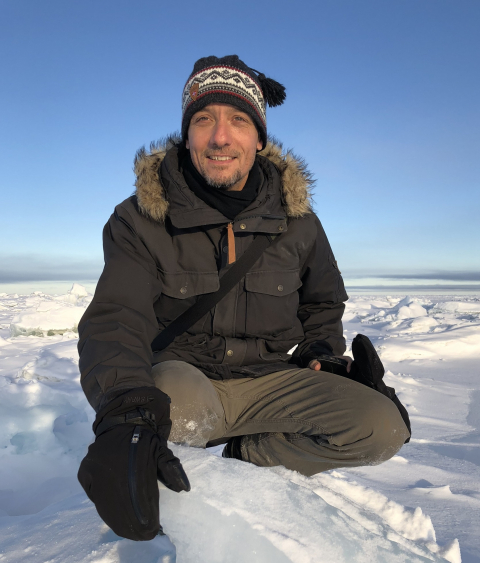
PLACE:
Rideau Canal Junior Ranks
Mess, 4 Queen Elizabeth Drive, Ottawa. Side entrance, Harmony
Room, 4th floor (elevator available)
COST:
$25 non
members; $20 members & their spouses; students $10
TIME:
12:00 noon, Wednesday
27 March 2019
PARKING: On street parking in the vicinity, or at
Ottawa City Hall
RSVP: Please confirm your attendance
no later than Friday 22 March by using this Doodle link.  Non
members are asked to click the above Subscribe
link so that we may record their email addresses for this meeting only.
Non
members are asked to click the above Subscribe
link so that we may record their email addresses for this meeting only.
Alternatively, please contact any of the following to register if you
have problems with Doodle:
Dawn Conway 613-724-2954; email: DMConway1@gmail.com
Ann McMillan
613-831-5851; email:
mcmillan@storm.ca
Paul Pestieau 613-990-6855;
email: Paul.Pestieau@canada.ca
Bob Jones 613-820-6336;
email:
jonesb@ncf.ca
Daria Bradbury 613-949-9119; email: Daria.Bradbury@dfo-mpo.gc.ca
Hoy Chow 819-938-4429; email:
hoy.chow@canada.ca
Tom Zagon: 613-992-8431;
email: tom.zagon@canada.ca
CANCELLATION: If
you need to cancel, please change your Doodle information as soon as
possible or let a contact person know so we can cancel your food order.
NEXT MEETING: Wednesday April 17, 2019 - Dierdre Laframboise, joint meeting with CACOR, details tba
Upcoming Luncheon Meeting - Monday 25 February 2019
SPEAKER: Dr. Jackie Dawson, PhD, CRC in Environment, Society, and Policy
TITLE: Navigating Climate Change: risks, opportunities, and management needs for increased shipping traffic in Arctic Canada.
ABSTRACT: Increased navigability of Arctic waters, as a result of climate change has boosted commercial interest in northern shipping routes including the Northwest Passage (NWP). Vessel traffic in Arctic Canada more than tripled over the past decade and further increases are expected. Considering improved technology, infrastructure investments, and economic and political will of Arctic and non-Arctic nations alike, the NWP is very likely to become a regular trade route within the next few decades. This situation will have significant risks and opportunities for Canada and for coastal Inuit communities. In this presentation, Dr. Dawson will provide an overview of the implications of climate change for Arctic shipping traffic in Arctic Canada, outline current shipping trends, and discuss possible management options to ensure opportunities are taken advantage of and risks are mitigated as increased maritime interest continues in Arctic Canada.
SPEAKER BIO: Dr. Jackie Dawson is the Canada Research Chair in Environment, Society, and Policy and is an Associate Professor in the Department of Geography, Environment, and Geomatics at the University of Ottawa. She is an Applied Scientist working on the human and policy dimensions of environmental change in ocean and coastal regions and is considered an expert in Arctic shipping, Arctic tourism, and Arctic oceans governance. She has served on two Canadian Council of Academies' Expert Panels, is an elected member of the College of the Royal Society of Canada and is a Fellow of the Royal Canadian Geographic Society. She led the drafting of the 2018 G7 science statement focused on Arctic oceans and resilient communities and is currently the Co-Scientific Director of the NCE ArcticNet.
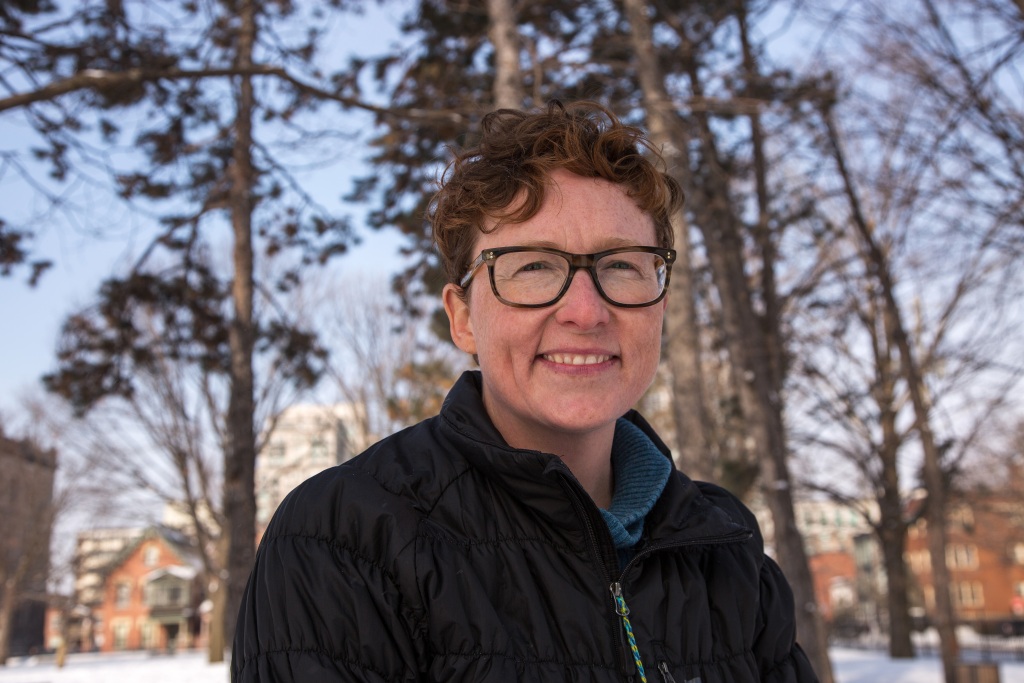
PLACE: Rideau Canal Junior Ranks Mess, 4 Queen Elizabeth Drive, Ottawa. Side entrance, Harmony Room, 4th floor (elevator available)
COST: $25 non members; $20 members & their spouses; students $10
TIME: 12:00 noon, Monday 25 February 2019
PARKING: On street parking in the vicinity, or at Ottawa City Hall
RSVP: Please confirm your attendance no later than Wednesday 20 February by using this Doodle link. Non members are asked to click the above Subscribe link so that we may record their email addresses for this meeting only.
Alternatively, please contact any of the following to register if you have problems with Doodle:
Dawn Conway 613-724-2954; email: DMConway1@gmail.com Ann McMillan 613-831-5851; email: mcmillan@storm.ca Paul Pestieau 613-990-6855; email: Paul.Pestieau@canada.ca Bob Jones 613-820-6336; email: jonesb@ncf.ca Daria Bradbury 613-949-9119; email: Daria.Bradbury@dfo-mpo.gc.ca Hoy Chow 819-938-4429; email: hoy.chow@canada.ca Tom Zagon: 613-992-8431; email: tom.zagon@canada.ca
CANCELLATION: If you need to cancel, please change your Doodle information as soon as possible or let a contact person know so we can cancel your food order.
NEXT MEETING: Wednesday March 27, 2019 - Eric Crighton (UofO), on humanizing health and climate change.
Upcoming Luncheon Meeting - Wednesday 23 January 2019
SPEAKER:
Dr Frank
Johnson, *FIET, PEng
(*Fellow, Institute of Engineering and Technology)
TITLE: Citizen
Scientific Tourism on an Unexpected Circumnavigation of Baffin Bay.
ABSTRACT: Signing
up for an "Arctic Safari" with Adventure Canada, which suggested a
more-or-less linear itinerary from Resolute Bay to Kangerlussauq.
It resulted in an adventure which covered nearly twice the sea miles,
and provided valuable lessons in the challenges of a
cruise-of-opportunity deployment of a research-class CTD (measurement
of conductivity, temperature and depth) instrument that could provide
information about salinity, water density, chlorophyll and dissolved
oxygen profiles during a swift perambulation around Baffin Bay
and Lancaster Sound.
Meaningful measurements for teaching and demonstration were collected
in order to inspire fellow passengers and students to explore the
depths below and consider the interface between the ocean and the
Arctic lands and ice. Operating in the time gaps of a slightly frenetic
tourist cruise provided a window into the challenges of serious
research in this region and exposed an arm-chair manufacturer and
electronics engineer to the rigours of field campaigns and use of his
equipment.
SPEAKER
BIO: Frank Johnson helped develop the first generation
multi-parameter portable CTD instruments during his time (1998 to 2013)
at the helm of RBR Ltd, a local company which manufactures and
calibrates world-leading instrumentation at its facilities in
Kanata. RBR is now run by Dr Greg Johnson. Frank is now
president of Ottawa Instrumentation Ltd, and continues to be involved
in development of sensors for oceanography and sleep apnoea recording
as well as helping to run Irene's Building on Bank Street where he
hopes to have an area for Lego Serious Play facilitated discussions.
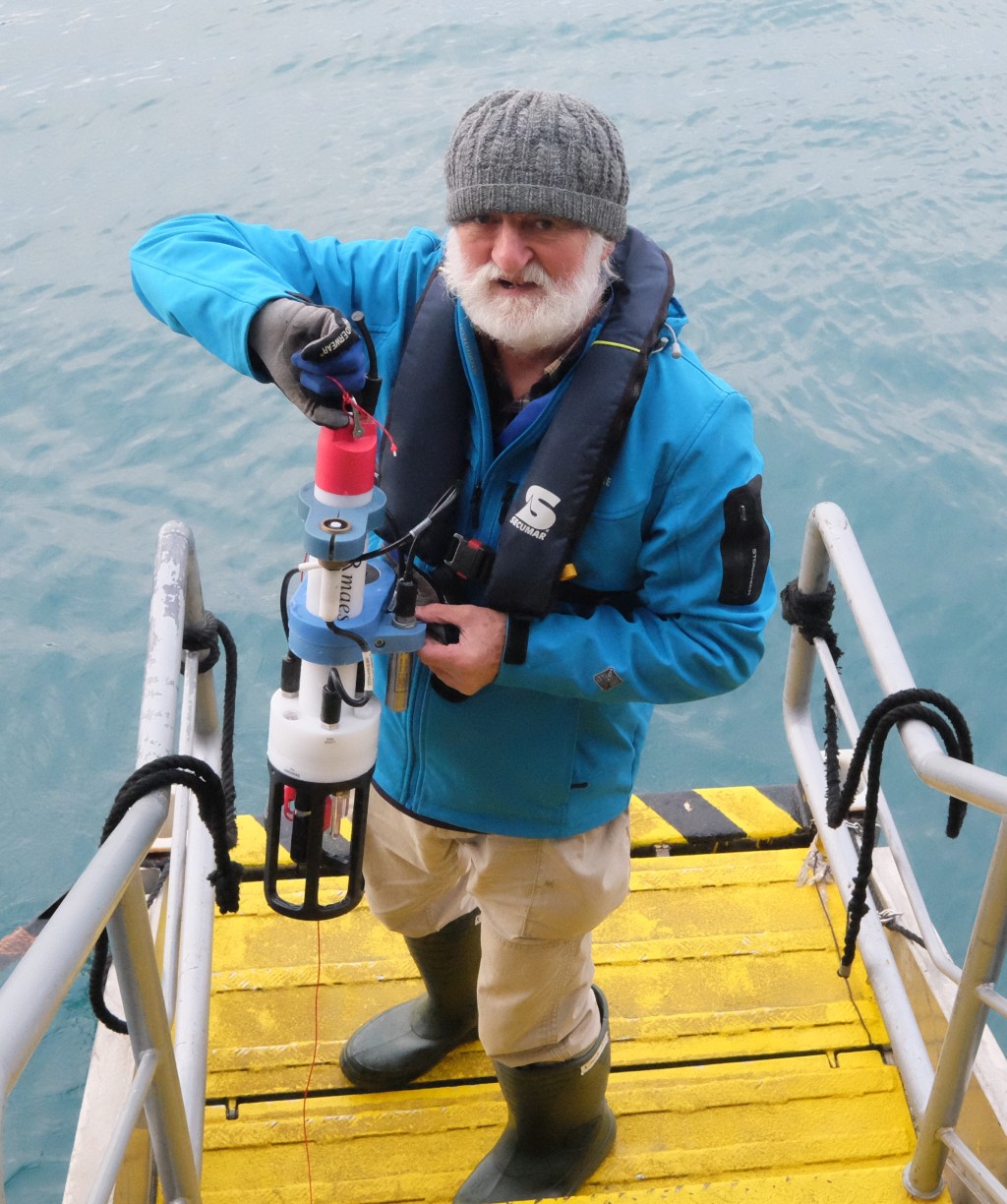
PLACE:
Rideau Canal Junior Ranks
Mess, 4 Queen Elizabeth Drive, Ottawa. Side entrance, Harmony
Room, 4th floor (elevator available)
MENU:
tba
COST: $25 non members; $20 members & their
spouses; students $10
TIME:
12:00 noon, Wednesday
23 January 2019
PARKING: On street parking in the vicinity, or at
Ottawa City Hall
RSVP: Please confirm your attendance
no later than Friday 18 January by using this Doodle link.  Non
members are asked to click the above Subscribe
link so that we may record their email addresses for this meeting only.
Non
members are asked to click the above Subscribe
link so that we may record their email addresses for this meeting only.
Alternatively, please contact any of the following to register if you
have problems with Doodle:
Dawn Conway 613-724-2954; email: DMConway1@gmail.com
Ann McMillan
613-831-5851; email:
mcmillan@storm.ca
Paul Pestieau 613-990-6855;
email: Paul.Pestieau@canada.ca
Bob Jones 613-820-6336;
email:
jonesb@ncf.ca
Daria Bradbury 613-949-9119; email: Daria.Bradbury@dfo-mpo.gc.ca
Hoy Chow 819-938-4429; email:
hoy.chow@canada.ca
Tom Zagon: 613-992-8431;
email: tom.zagon@canada.ca
CANCELLATION: If
you need to cancel, please change your Doodle information as soon as
possible or let a contact person know so we can cancel your food order.
Upcoming Luncheon Meeting - Tuesday 11 December 2018
We regret to advise that that David Grimes is no longer able to speak
at the CMOS luncheon as he will be travelling to attend the funeral of
a family member. However Mr. Michel Jean, Director General of the
Canadian Centre for Meteorological and Environmental Prediction of the
Meteorological Service of Canada, as well as the current President of
the World Meteorological Organization's Commission for Basic Systems,
will be pleased to give David's presentation.
SPEAKER: Michel
Jean, DG Canadian Centre for Meteorological and Environmental
Prediction ECCC, MSC; President Commission for Basic Systems WMO

SPEAKER BIO: Mr.
Michel Jean graduated from the Université du Québec
à Montréal (UQAM) in Physics in 1982 and obtained his
Masters degree in Meteorology from McGill University in 1987 after
working within the Atmospheric Environment Service (AES) as an
operational forecaster in various locations in Canada.
Mr Jean is currently the Director General of the Canadian Centre for
Meteorological and Environmental Prediction, whose objective is to
provide Canada with the best human, science and technology
infrastructure to analyze and predict atmospheric, ocean and ice
conditions for decision making. Over the years, he has led the
development of 'man-machine' interaction systems, including automated
translation systems. M. Jean is the senior executive responsible for
the entire weather and environmental prediction system in Canada, the
long term High Performance Computing strategy and the development and
implementation of the next generation integrated forecaster
workstation.
He has been coordinator to the WMO CBS Management Group on the Disaster
Risk Reduction program and the chair of an inter-commission task team
on Meteorological, Hydrological and Climate Services for Improved
Humanitarian Planning and Response and co-chair of a CBS ad-hoc working
group on the evolution of the Global Data Processing and Forecasting
System (GDPFS). He has been elected President of the WMO Commission for
Basic Systems in December 2016.
Mr. Jean is the recipient of several citations and awards within the
Public Service of Canada. He is also the 2002 recipient of the Andrew
Thomson prize in applied meteorology from the Canadian Meteorological
and Oceanographic Society.
TITLE: The Role of the Global Meteorological and
Hydrological Enterprise in Addressing Agenda 2030
ABSTRACT:
The Global Agenda 2030 is a plan for action that covers a wide range of
international policy, and scientific and societal issues. It is a
transformational agenda that encompasses multiple sectors, and requires
unprecedented collaboration at a global scale to implement it. The
agenda comprises the Sustainable Development Goals, the Paris Agreement
on Climate Change, and the Sendai Framework for Disaster Risk
Reduction.
The Hydro-Meteorological Enterprise has a major role to play in
supporting this agenda. This session will present and discuss the role
of the World Meteorological Organization, as a convening body, and all
National Weather and Hydrological Services, their vision and strategic
directions, and in particular, the requirements of seamless predictions
systems, underpinned by sound research throughout the value chain. In
addition, it will link it back to our national context by providing
insights on the implications for the Canadian Weather, Water and
Climate Enterprise.
PLACE:
Rideau Canal Junior Ranks
Mess, 4 Queen Elizabeth Drive, Ottawa. Side entrance, Harmony
Room, 4th floor (elevator available)
MENU:
Traditional Christmas turkey lunch with trimmings
COST: $25 non members; $20 members & their
spouses; students $10
TIME:
12:00 noon, Tuesday
11 December
PARKING: On street parking in the vicinity, or at
Ottawa City Hall
RSVP: Please confirm your attendance
no later than Friday 7 December by using this Doodle link.  Non
members are asked to click the Subscribe
link so that we may record their email addresses for this meeting only.
Non
members are asked to click the Subscribe
link so that we may record their email addresses for this meeting only.
Alternatively, please contact any of the following to register if you
have problems with Doodle:
Dawn Conway 613-724-2954; email: DMConway1@gmail.com
Ann McMillan
613-831-5851; email:
mcmillan@storm.ca
Paul Pestieau 613-990-6855;
email: Paul.Pestieau@canada.ca
Bob Jones 613-820-6336;
email:
jonesb@ncf.ca
Daria Bradbury 613-949-9119; email: Daria.Bradbury@dfo-mpo.gc.ca
Hoy Chow 819-938-4429; email:
hoy.chow@canada.ca
Tom Zagon: 613-992-8431;
email: tom.zagon@canada.ca
CANCELLATION: If
you need to cancel, please change your Doodle information as soon as
possible or let a contact person know so we can cancel your food order.
NEXT MEETING: Tuesday 23 January 2019, details TBA
SPEAKER: Peter
Kimbell, Warning Preparedness Meteorologist, Meteorological Service of
Canada, ECCC

TITLE: The Ottawa-Gatineau tornado outbreak of Sept 21,
2018; a recap of the event and ECCC's warning dissemination
ABSTRACT:
As the residents of the region know, the weather which struck Eastern
Ontario and Western Quebec on September 21 2018 was particularly
severe, spawning six tornadoes and causing extreme damage in the
region. This presentation by the Meteorological Service of Canada's
Weather Preparedness Meteorologist for the Ottawa Region, having first
hand view, will recap the event reviewing the weather and the damage.
This will also be an opportunity to explain ECCC's new (smartphone)
Weather Warning System, which many in the Region experienced for the
first time on that day.
Peter Kimbell will present a recap of the event and ECCC's warning
dissemination prior to the occurrences.
PLACE:
Rideau Canal Junior Ranks
Mess, 4 Queen Elizabeth Drive, Ottawa. Side entrance, Harmony
Room, 4th floor (elevator available)
COST:
$25 non
members; $20 members & their spouses; students $10
TIME:
12:00 noon, Thursday
15 November
PARKING: On street parking in the vicinity, or at
Ottawa City Hall
RSVP: Please confirm your attendance
no later than Friday 9 November by using this Doodle link
Alternatively, please contact any of the following to register if you
have problems with Doodle:
Dawn Conway 613-724-2954; email: DMConway1@gmail.com
Ann McMillan
613-831-5851; email:
mcmillan@storm.ca
Paul Pestieau 613-990-6855;
email: Paul.Pestieau@canada.ca
Bob Jones 613-820-6336;
email:
jonesb@ncf.ca
Daria Bradbury 613-949-9119; email: Daria.Bradbury@dfo-mpo.gc.ca
Hoy Chow 819-938-4429; email:
hoy.chow@canada.ca
Tom Zagon: 613-992-8431;
email: tom.zagon@canada.ca
CANCELLATION: If
you need to cancel, please change your Doodle information as soon as
possible or let a contact person know so we can cancel your food order.
NEXT MEETING: Tuesday,
11 December 2018, David Grimes will talk on
Science and Canada - Addressing Global Agenda 2030 Together
SPEAKER: Brian
T. Gray, Ph. D., Assistant Deputy Minister, Agriculture and Agri-Food
Canada
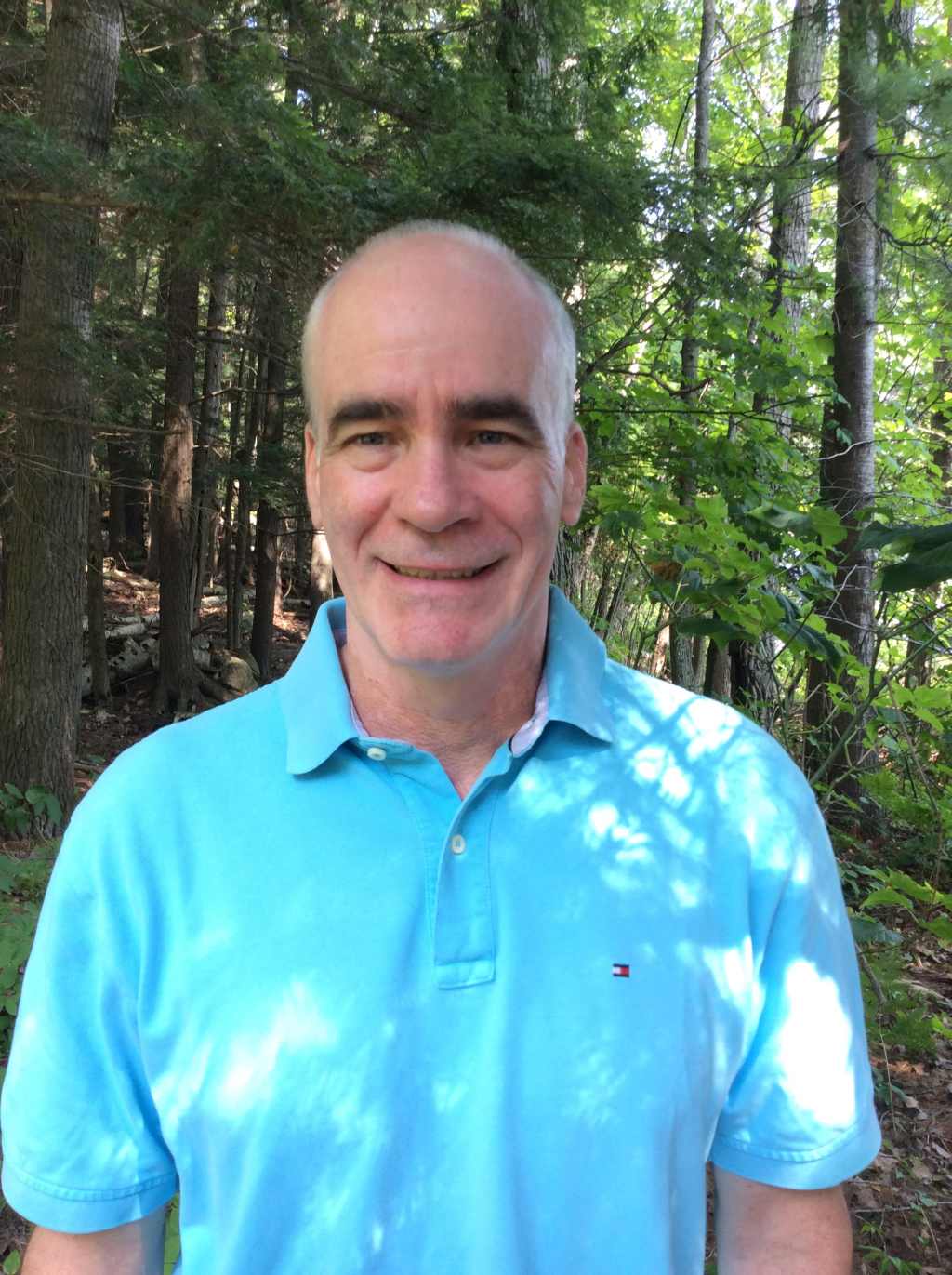
TITLE: Sustainable Intensification of Agriculture in
Canada
ABSTRACT:
Due to a growing and increasingly affluent global population, the
agriculture sector is continuously challenged to increase the
production of food, fiber and fuel to meet the world's needs.
Simultaneously, there is a need for the agricultural sector to improve
its environmental footprint, conserving soil, water and air quality,
while preserving biodiversity. Our ability to meet the growing need for
food, fiber and fuel while decreasing the environmental footprint is
likely to be negatively impacted in Canada and around the world by
climate change.
At Agriculture and Agri-Food Canada, we have a national research
network that is working to address these challenges, collaborating with
provinces, territories and other willing partners. Research that
focuses on improved breeding, incorporation of remote sensing and big
data into modeling crop yield and climate change impacts, as well as
ecosystem research is demonstrating that Canadian agriculture can
successfully adapt to climate change; increasing production while
improving the environmental sustainability of the sector.
Collaborative, interdisciplinary research will help to ensure that the
Canadian agricultural sector continues to be a world leader in the use
and development of clean and sustainable technologies and processes.
PLACE:
Rideau Canal Junior Ranks
Mess, 4 Queen Elizabeth Drive, Ottawa. Side entrance, Harmony
Room, 4th floor (elevator available)
COST:
$25 non
members; $20 members & their spouses; students $10
TIME:
12:00 noon, Thursday
27 September
PARKING: On street parking in the vicinity, or at
Ottawa City Hall
RSVP: Please confirm your attendance
no later than Friday 21 September by using this Doodle link
Alternatively, please contact any of the following to register if you
have problems with Doodle:
Dawn Conway 613-724-2954; email: DMConway1@gmail.com
Ann McMillan
613-831-5851; email:
mcmillan@storm.ca
Paul Pestieau 613-990-6855;
email: Paul.Pestieau@canada.ca
Bob Jones 613-820-6336;
email:
jonesb@ncf.ca
Daria Bradbury 613-949-9119; email: Daria.Bradbury@dfo-mpo.gc.ca
Hoy Chow 819-938-4429; email:
hoy.chow@canada.ca
Tom Zagon: 613-992-8431;
email: tom.zagon@canada.ca
CANCELLATION: If
you need to cancel, please change your Doodle information as soon as
possible or let a contact person know so we can cancel your food order.
NEXT MEETING: 25 October 2018, details and date TBD
Upcoming Luncheon Meeting - Wednesday 23 May 2018
SPEAKERS: John
Gilbert, CMOS Member (left). and Michel Labrecque, Ingenium - Canada's
Museums of Science and Innovation (right).
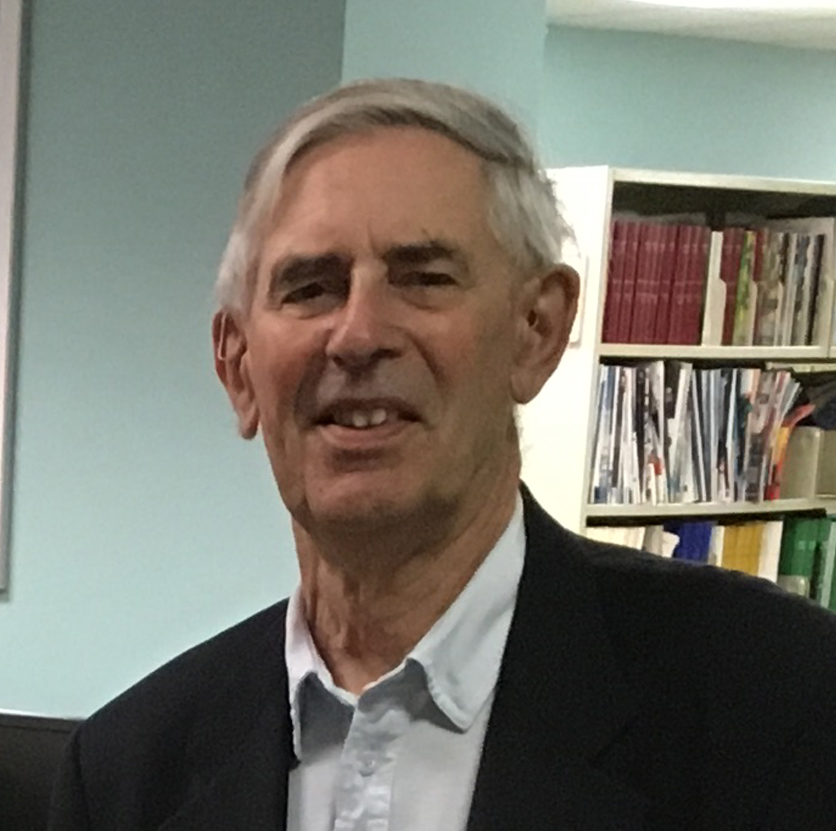
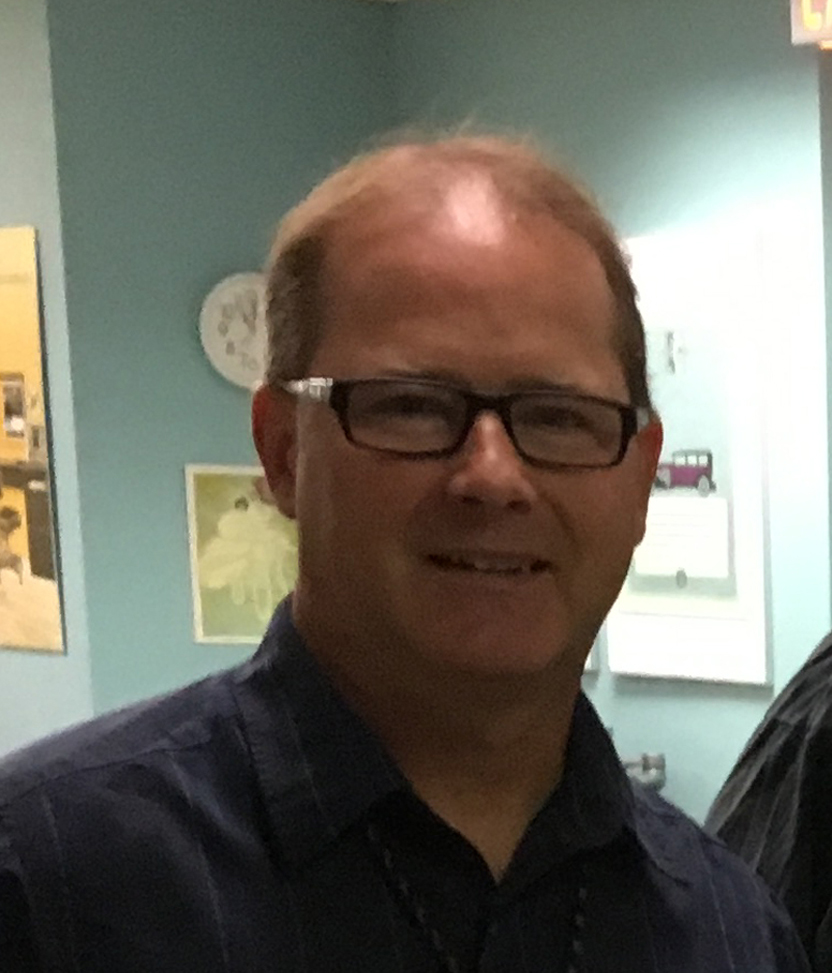
TITLE: The Search for Two Lost Meteorological Artifacts
ABSTRACT:
The CMOS committee to plan 50th anniversary commemorative events
identified liaison with the Canada Science and Technology Museum as one
of its action items. CMOS members John Reid and John Gilbert met with
NMST Curator Dr. David Pantalony and his colleagues to explore possible
joint areas of interest. The Museum was interested in two artifacts:
the thermometer that recorded Canada's coldest temperature at Snag,
Yukon in 1947 and the Canadian Snow Kit developed by NRC in 1949
PLACE:
Rideau Canal Junior Ranks
Mess, 4 Queen Elizabeth Drive, Ottawa. Side entrance, Harmony
Room, 4th floor (elevator available)
COST:
$25 non
members; $20 members & their spouses; students $10
TIME:
12:00 noon, Wednesday 23 May 2018
PARKING: On street parking in the vicinity
RSVP: Please confirm your attendance
no later than Friday 18 May by Doodle (click here)
Alternatively, please contact any of the following to register if you
have problems with Doodle:
Martin Gauthier 613-730 7608 ext 2520;
email: martin.gauthier@rwdi.com
Ann McMillan
613-831-5851; email:
mcmillan@storm.ca
Paul Pestieau 613-990-6855;
email: Paul.Pestieau@canada.ca
Bob Jones 613-820-6336;
email:
jonesb@ncf.ca
Daria Bradbury 613-949-9119; email: Daria.Bradbury@dfo-mpo.gc.ca
Hoy Chow 819-938-4429; email:
hoy.chow@canada.ca
Tom Zagon: 613-992-8431;
email: tom.zagon@canada.ca
CANCELLATION: If
you need to cancel, please change your Doodle information as soon as
possible or let a contact person know so we can cancel your food order.
NEXT MEETING: September
2018
Upcoming Luncheon Meeting - Wednesday 18 April 2018
SPEAKER: Prof. David Fisher, Adjunct Prof at University of Ottawa, Earth Sciences, Ottawa, Member of School of Graduate and Postdoctoral Studies.
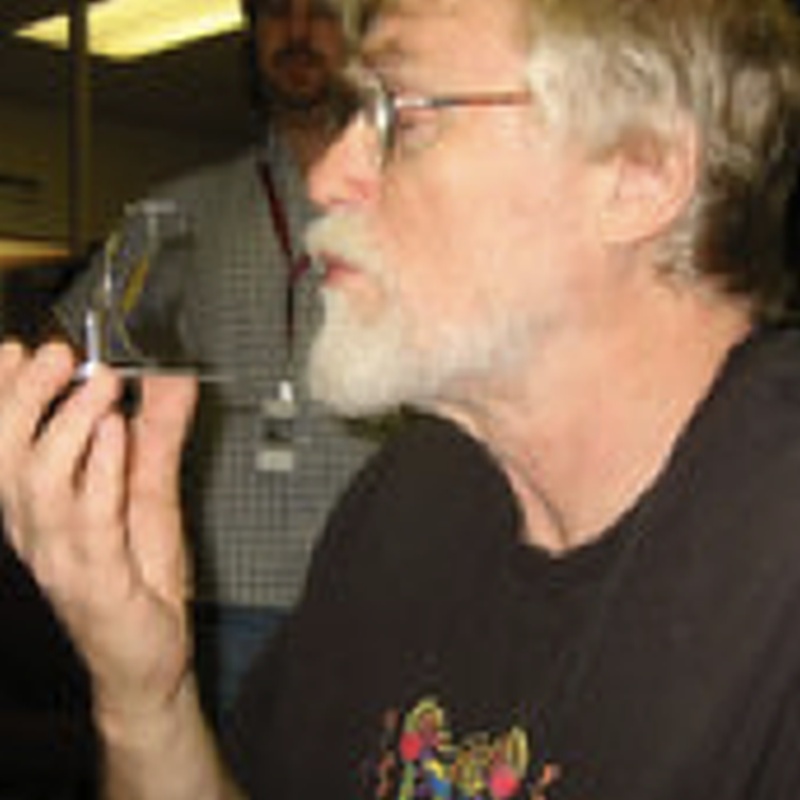
TITLE: Climate of The Holocene, From the End of the Ice Age (11750 years ago) to The Present as Derived From Ice Cores; Recent Sudden Changes and Those of the Past.
ABSTRACT: Ice cores from Greenland and Northern Canada tell a consistent story of changes in the climate over many millennium. This story is presented from the end of the last ice age 11750 years ago to the present and the major climate events related to examples of societal response.
PLACE: Army Officers' Mess, 149 Somerset Street West, Ottawa
COST: $25 non members; $20 members & their spouses; students $10
TIME: 12:00 noon, Wednesday 18 April 2018
PARKING: On street parking in the vicinity
RSVP: Please confirm your attendance no later than Friday 18 May by Doodle (click here)
Alternatively, please contact any of the following to register if you have problems with Doodle:
Martin Gauthier 613-730 7608 ext 2520; email: martin.gauthier@rwdi.com Ann McMillan 613-831-5851; email: mcmillan@storm.ca Paul Pestieau 613-990-6855; email: Paul.Pestieau@canada.ca Bob Jones 613-820-6336; email: jonesb@ncf.ca Daria Bradbury 613-949-9119; email: Daria.Bradbury@dfo-mpo.gc.ca Hoy Chow 819-938-4429; email: hoy.chow@canada.ca Tom Zagon: 613-992-8431; email: tom.zagon@canada.ca
CANCELLATION: If you need to cancel, please change your Doodle information as soon as possible or let a contact person know so we can cancel your food order.
NEXT MEETING: 23 May, details to be announced
Upcoming Luncheon Meeting - Wednesday 28 March 2018
SPEAKER:
Gilbert Brunet, MSC
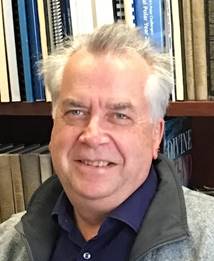
TITLE: On the Genesis and Intensification of Hurricanes.
ABSTRACT: In
general, observations indicate that only a small fraction in a fixed
framework (from 140° W to 20° E) covering African to the
eastern Pacific regions of the easterly waves that occur in a single
hurricane season contribute to tropical cyclogenesis. However, this
small fraction includes a large portion of named storms. In addition, a
study by Dunkerton et al. (2009) has shown that named storms in the
Atlantic and eastern Pacific basins are almost all associated with wave
breaking of tropical easterly waves.
Dr. Brunet will discuss fundamental dynamical and physical processes
related to hurricane genesis. The finding that coexistence of an
African easterly wave that is breaking and a region of weak meridional
potential vorticity (PV) gradient over several days might be a major
factor determining
whether or not tropical disturbances develop into hurricanes will be
discussed. This has answered the long-standing question of why only a
small fraction of African easterly waves contribute to hurricane
genesis.
Dr. Brunet will also review how well the prediction of hurricane and
tropical cyclones has improved in the last two decades.
PLACE :
Rideau Canal Junior Ranks Mess, 4 Queen Elizabeth Drive, Ottawa.
Side entrance, Harmony Room, 4th floor (elevator available)
COST
: $25 non members; $20 members & their
spouses; students $10
TIME
:
12:00 noon, Wednesday 28
March 2018
PARKING: On street parking in the vicinity
RSVP: Please confirm your attendance
no later than Friday 23 March by
Doodle (click here)
Alternatively, please contact any of the following to register if you
have problems with Doodle:
Martin Gauthier 613-730 7608 ext 2520;
email: martin.gauthier@rwdi.com
Ann McMillan
613-831-5851; email:
mcmillan@storm.ca
Paul Pestieau 613-990-6855;
email: Paul.Pestieau@canada.ca
Bob Jones 613-820-6336;
email:
jonesb@ncf.ca
Daria Bradbury 613-949-9119; email: Daria.Bradbury@dfo-mpo.gc.ca
Hoy Chow 819-938-4429; email:
hoy.chow@canada.ca
Tom Zagon: 613-992-8431;
email: tom.zagon@canada.ca
CANCELLATION:
If you need to cancel, please change your Doodle information as soon as
possible or let a contact person know so we can cancel your food order.
Upcoming Luncheon Meeting - Wednesday 28 February 2018
SPEAKER: Andrew Stewart, DFO
TITLE: Towards a Canadian Integrated Ocean Observation System
ABSTRACT: Canada's ocean science community which includes the federal government, academia, small businesses, not-for-profit organizations, and other research partners, collect and synthesize physical, chemical and biological ocean observations. This information is used for discovery research purposes, to model ocean changes and provide environmental assessment advice, support resource management decision-making, and establish baseline data for long-term monitoring.
Canada's ocean community collects large amounts of data but, aside from building comprehensive ocean observatories (Fisheries and Oceans Canada (DFO) et al. 2010), there is no easy mechanism to integrate data from various sources to allow the exploration of interrelationships among variables, and no coordination and collaboration mechanism for the ocean community as a whole to generate an efficient system (Ocean Science and Technology Partnership (OSTP), for Fisheries and Oceans Canada (DFO) 2011). Consequently, we observe fragmented and isolated data - which may never be used outside of a specific project because it is not discoverable by other potential end users.
Canada's ocean science community (Wallace et al. 2014), led and supported by Fisheries and Oceans Canada (DFO), is advancing the development of a Canadian Integrated Ocean Observation System (CIOOS) that brings together and leverages existing Canadian and international ocean observation data into a federated data system which will generate value for users. This integrated ocean observing system (Wilson et al. 2016) will improve coordination and collaboration among diverse data producers, improve access to information for decision making, and enable discovery and access to data to support a wide variety of applied and theoretical research efforts to better understand, monitor, and manage activities in Canada's oceans.
PLACE : Rideau Canal Junior Ranks Mess, 4 Queen Elizabeth Drive, Ottawa. Side entrance, Harmony Room, 4th floor (elevator available)
COST : $25 non members; $20 members & their spouses; students $10
TIME : 12:00 noon, Wednesday 28 February 2018
MENU: to be announced
PARKING: On street parking in the vicinity
RSVP: Please confirm your attendance no later than Friday 23 February by Doodle (click here)
Alternatively, please contact any of the following to be added to our list, or if you have problems with Doodle:
Martin Gauthier 613-730 7608 ext 2520; email: martin.gauthier@rwdi.com Ann McMillan 613-831-5851; email: mcmillan@storm.ca Paul Pestieau 613-990-6855; email: Paul.Pestieau@canada.ca Bob Jones 613-820-6336; email: jonesb@ncf.ca Daria Bradbury 613-949-9119; email: Daria.Bradbury@dfo-mpo.gc.ca Hoy Chow 819-938-4429; email: hoy.chow@canada.ca Tom Zagon: 613-992-8431; email: tom.zagon@canada.ca
CANCELLATION: If you need to cancel, please change your Doodle information as soon as possible or let a contact person know so we can cancel your food order.
NEXT MEETING: Wednesday 28 March, Gilbert Brunet (CMOS Tour Speaker)
Upcoming Luncheon Meeting - Wednesday 31 January 2018
SPEAKER: Karen Kohfeld, Professor, School of Resource and Environmental Management (REM), Simon Fraser University, Vancouver, BC. Karen is the CNC/SCOR Tour Speaker (going east)
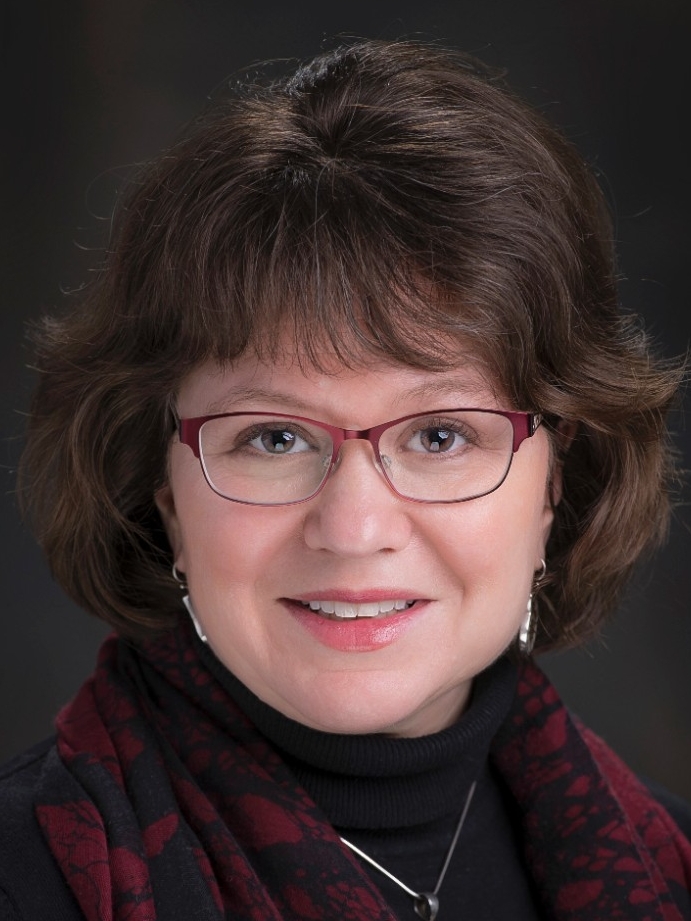
TITLE: The Oceans' Role in Atmospheric Carbon Dioxide Changes During Ice Age Cycles.
ABSTRACT: Ever since scientists discovered from polar ice cores that carbon dioxide levels were about 33% lower during ice ages compared to warm climate periods, they have been proposing theories to understand why. Since the ocean holds approximately 50 times more carbon than the atmosphere, oceanic processes are thought to be responsible. A range of physical and biological oceanic processes have been put forth to explain these fluctuations, and many can explain at least part of the total glacial-interglacial signal. However, Earth system models have yet to simulate carbon dioxide changes over a full ice-age cycle.
This presentation will show how the fossil record can be used to infer long-term changes in marine productivity, ocean temperatures, ocean circulation, westerly winds, and sea-ice cover, and how these data can be pieced together to understand the sequential timing of processes affecting atmospheric CO2 concentrations during the last full glacial cycle (130,000 years).
PLACE : Rideau Canal Junior Ranks Mess, 4 Queen Elizabeth Drive, Ottawa. Side entrance, Harmony Room, 4th floor (elevator available)
COST : $25 non members; $20 members & their spouses; students $10
TIME : 12:00 noon, Wednesday 31 January 2018
MENU: to be announced
PARKING: On street parking in the vicinity
RSVP: Please confirm your attendance no later than Friday 26 January by Doodle (click here)
Alternatively, please contact any of the following to be added to our list, or if you have problems with Doodle:
Martin Gauthier 613-730 7608 ext 2520; email: martin.gauthier@rwdi.com Ann McMillan 613-831-5851; email: mcmillan@storm.ca Paul Pestieau 613-990-6855; email: Paul.Pestieau@canada.ca Bob Jones 613-820-6336; email: jonesb@ncf.ca Daria Bradbury 613-949-9119; email: Daria.Bradbury@dfo-mpo.gc.ca Hoy Chow 819-938-4429; email: hoy.chow@canada.ca Tom Zagon: 613-992-8431; email: tom.zagon@canada.ca
CANCELLATION: If you need to cancel, please change your Doodle information as soon as possible or let a contact person know so we can cancel your food order.
NEXT MEETING: 28 February, Keith Lennon, DFO
The Canadian Association for the Club of Rome (CACOR) (collaborator with CMOS Ottawa)
View Ottawa CACOR Web Site
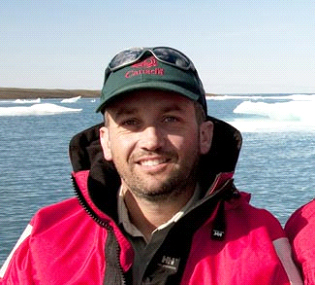
Note: Parks Canada is
sending an alternate speaker to Ryan Harris. Jonathan will
present the same material as described in the abstract.
TITLE:
The Underwater Archaeology of H. M. Ships Erebus and Terror -lost
vessels of the ill-fated Sir John Franklin Expedition of 1845.
ABSTRACT: This
lecture will include the search, eventual discovery, and ongoing
documentation of these two remarkable shipwreck sites. Detailed
investigation continues to shed light on the final days of the doomed
expedition, while revealing subtle aspects of shipboard life among the
imperilled crew, and the detailed manner in which the two discovery
ships were outfitted for Arctic Service.
PLACE
: Rideau Canal Junior Ranks Mess, 4 Queen
Elizabeth Drive, Ottawa. Side entrance, Harmony Room, 4th floor
(elevator available)
COST
: $25 non members; $20 members & their
spouses; students $10
TIME
:
12:00 noon, Tuesday 12
December 2017
MENU: Traditional Christmas turkey
lunch with trimmings
PARKING: On street parking in the vicinity
RSVP: Please confirm your attendance
no later than Friday 8 December by
Doodle
(click here)
Alternatively, please contact any of the following to be added to our
list, or if you have problems with Doodle:
Martin Gauthier 613-730 7608 ext 2520;
email: martin.gauthier@rwdi.com
Ann McMillan
613-831-5851; email:
mcmillan@storm.ca
Paul Pestieau 613-990-6855;
email: Paul.Pestieau@canada.ca
Bob Jones 613-820-6336;
email:
jonesb@ncf.ca
Daria Bradbury 613-949-9119; email: Daria.Bradbury@dfo-mpo.gc.ca
Hoy Chow 819-938-4429; email:
hoy.chow@canada.ca
Tom Zagon: 613-992-8431;
email: tom.zagon@canada.ca
CANCELLATION:
If you need to cancel, please change your Doodle information as soon as
possible or let a contact person know so we can cancel your food order.
Upcoming Luncheon Meeting - Thursday 16 November 2017
SPEAKER :
Alana Faber, VP Operations & HR, Adventure Canada
TITLE : The
Changing Arctic: Challenges and thrills of expedition planning in a
rapidly changing physical and political environment.
ABSTRACT
: Over the past 30 years, Adventure Canada
has run expeditions to the Canadian Arctic and Greenland, using small
expedition ships. As an operator it has faced many challenges and
thrills while planning and executing northern tours. The
complexities of navigation and of organizing itineraries in the face of
unpredictable ice and weather conditions are key factors in northern
tourism travel.
In order to deliver a safe and quality expedition, detailed planning,
along with ensuring a highly experienced team, is essential to all
northern tourism. In addition, the development of links and
relationships with northern communities is at the crux of all
sustainable northern tourism. Today, with a rapidly changing
climate and a highly political region, northern tourism requires
dialogue, expert logistics, and problem solving in order to meet the
needs of all involved stakeholders.
PLACE : Rideau Canal Junior Ranks Mess, 4 Queen
Elizabeth Drive, Ottawa. Side entrance, Harmony Room, 4th floor
(elevator available)
COST
: $25 non members; $20 members & their
spouses; students $10
TIME
:
12:00 noon, Thursday 16
November 2017
MENU: tba
PARKING: On street parking in the vicinity
RSVP: Please confirm your attendance
no later than Friday 10 November by
Doodle
(click here)
Alternatively, please contact any of the following to be added to our
list, or if you have problems with Doodle:
Martin Gauthier 613-730 7608 ext 2520;
email: martin.gauthier@rwdi.com
Ann McMillan
613-831-5851; email:
mcmillan@storm.ca
Paul Pestieau 613-990-6855;
email: Paul.Pestieau@canada.ca
Bob Jones 613-820-6336;
email:
jonesb@ncf.ca
Daria Bradbury 613-949-9119; email: Daria.Bradbury@dfo-mpo.gc.ca
Hoy Chow 819-938-4429; email:
hoy.chow@canada.ca
Tom Zagon: 613-992-8431;
email: tom.zagon@canada.ca
CANCELLATION:
If you need to cancel, please change your Doodle information as soon as
possible or let a contact person know so we can cancel your food order.
NEXT MEETING: Tuesday 12 December, details to be announced
|
Upcoming Luncheon Meeting - Tuesday 24 October 2017
ABSTRACT: While
Arctic regions have been warming faster than anywhere else on Earth,
the impacts of global warming have been most severe over the
sub-tropics where about half the human race lives. Most disturbing of
all is the desertification of the sub-tropics caused by the expansion
of Earth's great deserts, leading to severe prolonged droughts and
famines rivalling any in recorded history.
Martin Gauthier 613-730 7608 ext 2520;
email: martin.gauthier@rwdi.com CANCELLATION:
If you need to cancel, please change your Doodle information as soon as
possible or let a contact person know so we can cancel your food order. NEXT MEETING:
Thursday, November 16th, speaker Cedar Bradley-Swan, CEO of Adventure Canada, on
Arctic science tours |
++++++++++++++++++++++++++++++++++++++++++++++++++
Upcoming Luncheon Meeting - Wednesday 20 September 2017
SPEAKER: Ian
Black, CBC weather broadcaster

TITLE: Weather Information In the New Digital Age
PLACE:
Rideau
Canal Junior Ranks Mess, 4 Queen Elizabeth Drive, Ottawa.
Side entrance, Harmony Room, 4th floor (elevator available)
COST:
$25 non members; $20
members & their spouses; students $10
TIME:
12:00 noon
MENU: tba
PARKING: On street parking in the vicinity
RSVP: Please confirm your attendance by Doodle (click here)
Alternatively, please contact any of the following to be added to our
list, or if you have problems with Doodle:
Martin Gauthier 613-730 7608 ext 2520;
email: martin.gauthier@rwdi.com
Ann McMillan 613-831-5851;
email:
mcmillan@storm.ca
Paul Pestieau 613-990-6855;
email: Paul.Pestieau@canada.ca
Bob Jones 613-820-6336;
email:
jonesb@ncf.ca
Daria Bradbury 613-949-9119; email: Daria.Bradbury@dfo-mpo.gc.ca
Hoy Chow 819-938-4429; email: hoy.chow@canada.ca
Tom Zagon: 613-992-8431;
email: tom.zagon@canada.ca
CANCELLATION:
If you need to cancel, please change your Doodle information as soon as
possible or let a contact person know so we can cancel your food order.
Upcoming Luncheon Meeting - Wednesday 14
June 2017
Note: This is a joint presentation of CMOS/CACOR
SPEAKER: Gordon McBean, President, International Council for
Science (ICSU); Co-Chair, Governing Council, Future Earth: Research for
Global Sustainability Institute for Catastrophic Loss Reduction;
Professor, Emeritus & Adjunct Research - Department of Geography
Western University
TITLE: Transdisciplinary Science for a Sustainable Future Earth
ABSTRACT: Addressing the Global 2030 Agenda for climate change,
disaster risk reduction and sustainable development goals requires
understanding the interrelationships among the environment, economy,
society, cultures and beyond. These are complex and to "see the
future" we need to bring together transdisciplinary teams, across the
natural, social, humanitarian, engineering and health sciences, while
maintaining disciplinary excellence. These are challenges now
being addressed in international science.
The international research programs - Future Earth, Integrated Research
on Disaster Risk and Urban Health and Well Being - are moving ahead and
will be further linked. The International Council for Science and
the International Social Sciences Council are enroute to merger.
These issues and opportunities will be discussed.
PLACE: Rideau Canal Junior Ranks Mess, 4 Queen Elizabeth Drive,
Ottawa. Side entrance, Harmony Room, 4th floor (elevator
available)
COST: $25 non members; $20 members & their spouses; students
$10
TIME: 12:00 noon, Wednesday 14 June 2017
PARKING: On street parking in the vicinity
RSVP: Please confirm your attendance by Friday 10 June 2017 by
Doodle (click here)
Alternatively, please contact any of the following to be added to our
list, or if you have problems with Doodle:
Martin Gauthier 613-730 7608 ext 2520; email: martin.gauthier@rwdi.com
Ann McMillan 613-831-5851; email: mcmillan@storm.ca Paul Pestieau
613-990-6855; email: Paul.Pestieau@canada.ca Bob Jones
613-820-6336; email: jonesb@ncf.ca Daria Bradbury 613-949-9119;
email: Daria.Bradbury@dfo-mpo.gc.ca Hoy Chow 819-938-4429;
email: hoy.chow@canada.ca Tom Zagon: 613-992-8431; email:
tom.zagon@canada.ca
CANCELLATION: If you need to cancel, please change your Doodle
information as soon as possible or let a contact person know so we can
cancel your food order.
NEXT MEETING: September 2017, details to be announced
Upcoming Luncheon Meeting - Wednesday 17 May 2017
SPEAKER: Gilbert Brunet, Director,
Meteorological Research
Division (MRD), Environment and Climate Change Canada (ECCC)
TITLE: Toward Seamless
Weather and Climate Earth-system Prediction
ABSTRACT: Over the last
decade or so, predicting the weather, climate and atmospheric
composition has emerged as one of the most important areas of
scientific endeavour. This is partly because the remarkable increase in
skill of current weather forecasts has made society more and more
dependent on them day to day for a whole range of decision making. Also
it is partly because climate change is now widely accepted, and the
realization is growing rapidly that it will affect every person in the
world profoundly, either directly or indirectly.
One of the important
endeavours of our societies is to remain at the cutting-edge of
modelling and predicting the evolution of the fully coupled
environmental system: atmosphere (weather and composition), oceans,
land surface (physical and biological), and cryosphere. Some examples
of seamless modelling and prediction across a range of time scales will
be discussed.
PLACE: Rideau Canal
Junior Ranks Mess, 4 Queen Elizabeth Drive, Ottawa. Side
entrance, Palladium Room, 3rd floor (elevator available)
COST: $25 non members;
$20 members & their spouses; students $10
TIME: 12:00 noon,
Wednesday 17 May 2017
MENU: Roast chicken with
green beans and potatoes, lemon meringue pie for dessert
PARKING: On street
parking in the vicinity
RSVP: Please confirm
your attendance by Friday 12 May 2017 by Doodle (click here)
Alternatively, please contact
any of the following to be added to our list, or if you have problems
with Doodle:
Martin Gauthier 613-730 7608
ext 2520; email: martin.gauthier@rwdi.com Ann McMillan 613-831-5851;
email: mcmillan@storm.ca Paul Pestieau 613-990-6855; email:
Paul.Pestieau@canada.ca Bob Jones 613-820-6336; email:
jonesb@ncf.ca Daria Bradbury 613-949-9119; email:
Daria.Bradbury@dfo-mpo.gc.ca Hoy Chow 819-938-4429; email:
hoy.chow@canada.ca Tom Zagon: 613-992-8431; email:
tom.zagon@canada.ca
CANCELLATION: If you
need to cancel, please change your Doodle information as soon as
possible or let a contact person know so we can cancel your food order.
NEXT MEETING: Wednesday
14 June, Gordon McBean on "Transdisciplinary Science for a sustainable
future earth" (joint meeting with CACOR, hosted by CMOS Ottawa)
Upcoming Luncheon Meeting -
Wednesday 26 April 2017
SPEAKER: Dr. Richard
Dewey, Ocean Networks Canada, University of Victoria, CMOS Tour Speaker
TITLE:
Recent Pacific Anomalies: Oscillations, El Nino, and The Blob
ABSTRACT: The Pacific
Ocean has exhibited a number of major anomalies during the last few
years, generally responding to large scale atmospheric patterns. Some
of these patterns have been seen before, including the Pacific
Oscillation dating back over nearly a century. However, recent
occurrences have been detected under the shadow of climate change and
in the presence of enhanced observing and forecast systems. Our ability
to detect, characterize, and correlate these patterns continues to
advance, while our ability to predict and understand the causes and
linkages remains somewhat limited. In this overview of major events
dating from 2012 through to the end of 2016, we will piece together
some of the puzzle, or puzzles, peculiar to the northeast Pacific to
reveal what we know and don't know about this critical region.
PLACE: Rideau
Canal Junior Ranks Mess, 4 Queen Elizabeth Drive, Ottawa. Side
entrance, Harmony Room, 4th floor (elevator available)
COST: $25 non members;
$20 members & their spouses; students $10
TIME: 12:00 noon,
Wednesday 26 April 2017
MENU:
PARKING: On street
parking in the vicinity
RSVP: Please confirm
your attendance by Friday 21 April 2017 by Doodle (click here)
Alternatively, please contact
any of the following to be added to our list, or if you have problems
with Doodle:
Martin Gauthier 613-730 7608
ext 2520; email: martin.gauthier@rwdi.com Ann McMillan 613-831-5851;
email: mcmillan@storm.ca Paul Pestieau 613-990-6855; email:
Paul.Pestieau@canada.ca Bob Jones 613-820-6336; email:
jonesb@ncf.ca Daria Bradbury 613-949-9119; email:
Daria.Bradbury@dfo-mpo.gc.ca Tom Zagon: 613-992-8431; email:
tom.zagon@canada.ca
CANCELLATION: If you
need to cancel, please change your Doodle information as soon as
possible or let a contact person know so we can cancel your food order.
NEXT MEETING: 17 May
2017, Speaker Gilbert Brunet, Topic: Seamless climate and weather
forecasting
Upcoming Luncheon Meeting -
Wednesday 22 March 2017
SPEAKER: Mike Manore,
Monitoring and Data Services, Meteorological Service of Canada (MSC)
TITLE: Transformation of
MSC Monitoring Networks - Evolution or Revolution?
ABSTRACT: Observations
of known quality are the cornerstone of meteorological, climatological
and hydrological services and science. Providing accurate,
reliable and sustainable observations in a field where technologies and
requirements are constantly changing requires a strategic, modern and
integrated approach to monitoring. The MSC's monitoring networks
and data management systems are currently undergoing numerous
transformations to address these needs - some large, some small.
This talk will summarize the
current and planned changes to the MSC's monitoring networks, including
new approaches to network design, new observing systems, data quality,
and working more closely with provinces and territories and other
partners. The talk is preview of a more extensive session
scheduled for the CMOS Congress 2017.
PLACE: Rideau
Canal Junior Ranks Mess, 4 Queen Elizabeth Drive, Ottawa. Side
entrance, Harmony Room, 4th floor (elevator available)
COST: $25 non members;
$20 members & their spouses; students $10
TIME: 12:00 noon,
Wednesday 22 March 2017
MENU: salmon, green
beans and scalloped potatoes with lemon meringue pie for dessert
PARKING: On street
parking in the vicinity
RSVP: Please confirm
your attendance by Friday 17 March 2017 by Doodle (click here)
Alternatively, please contact
any of the following to be added to our list, or if you have problems
with Doodle:
Martin Gauthier 613-730 7608
ext 2520; email: martin.gauthier@rwdi.com Ann McMillan 613-831-5851;
email: mcmillan@storm.ca Paul Pestieau 613-990-6855; email:
Paul.Pestieau@canada.ca Bob Jones 613-820-6336; email:
jonesb@ncf.ca Daria Bradbury 613-949-9119; email:
Daria.Bradbury@dfo-mpo.gc.ca Tom Zagon: 613-992-8431; email:
tom.zagon@canada.ca
CANCELLATION: If you
need to cancel, please change your Doodle information as soon as
possible or let a contact person know so we can cancel your food order.
NEXT MEETING: 26 April
2017, CMOS Tour speaker, Dr. Richard Dewey, Ocean Networks Canada,
University of Victoria, on 'Recent Pacific Anomalies: Oscillations, El
Nino, and The Blob'.
Upcoming Luncheon Meeting - Thursday 26 January 2017
SPEAKER:
Dr. David Scott, President & CEO of Polar Knowledge Canada
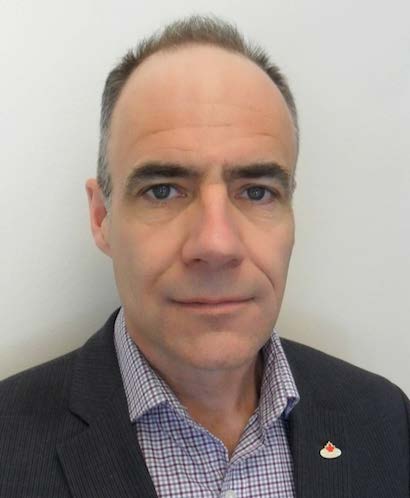
TITLE: Polar Knowledge Canada (POLAR) -
Arctic science sustainability - Enhancing cooperation and advancing
knowledge for a stronger future
ABSTRACT: Since its establishment in June
2015, POLAR has made great strides to advance Canadian leadership in
Arctic science and technology, and to mobilize knowledge of the polar
regions, including Antarctica. Its engagement and partnerships with
federal, territorial, Indigenous, national and international networks
of interest promise to leverage collective resources to enhance Arctic
and Antarctic research. The opening of the Canadian High Arctic
Research Station in Cambridge Bay in 2018 will provide a northern-based
world-class hub for science and technology research. Through advancing
innovation in northern monitoring and modeling science and technology,
as well as promoting collaborative integrative approaches, POLAR aims
to improve economic opportunities, environmental stewardship and
quality of life for Northerners and other Canadians. Dr. Dave Scott,
President, Polar Knowledge Canada, will discuss the importance of
POLAR's work to northerners and the polar regions, as well as discuss
how collaboration and knowledge will ensure resilient northern
communities.
PLACE: Rideau Canal
Junior Ranks Mess, 4 Queen Elizabeth Drive, Ottawa. Side
entrance, Harmony Room, 4th floor (elevator available)
COST:
$25 non
members; $20 members & their spouses; students $10
TIME: 12:00 noon,
Thursday 26 January 2017
MENU: tba
PARKING: On street
parking in the vicinity
RSVP: Please confirm your
attendance by Monday 23 January by Doodle (click
here)
Alternatively, please
contact any of the following to be added to our list, or if you have
problems with Doodle:
Martin Gauthier
613-730 7608 ext 2520; email: martin.gauthier@rwdi.com
Ann McMillan
613-831-5851; email:
mcmillan@storm.ca
Paul Pestieau
613-990-6855; email:
Paul.Pestieau@canada.ca
Bob Jones
613-820-6336; email:
jonesb@ncf.ca
Daria Bradbury
613-949-9119; email:
Daria.Bradbury@dfo-mpo.gc.ca
Tom Zagon:
613-992-8431; email:
tom.zagon@canada.ca
CANCELLATION:
If you need to cancel, please
change your Doodle information as soon as
possible or let a contact person know so we can cancel your food order.
Return
to Ottawa Centre Archives
Retour
au archives du Centre d'Ottawa
